






















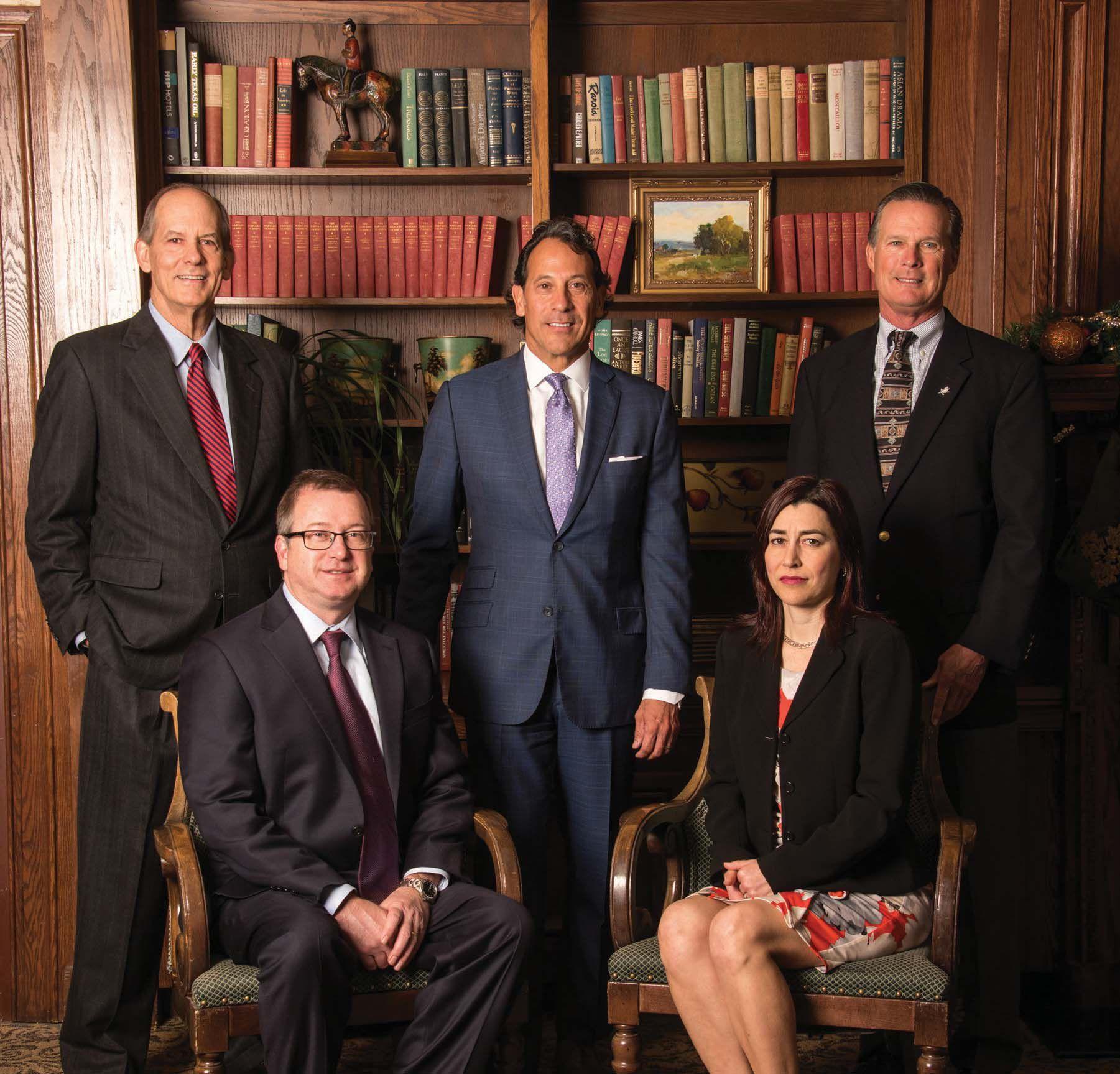





























( JANUARY/FEBRUARY 2018 )
Entrepreneurs of Excellence: Being an entrepreneur takes guts. Take it from these folks — our 2018 Entrepreneurs of Excellence. An independent panel of judges evaluated nominees’ sales and profit growth, ethical business practices, innovation, perseverance and community involvement to come up with 38 finalists worthy of the award. But these EOEs are not all sales and success. They’re people — with dreams, smarts and a whole lotta gumption.
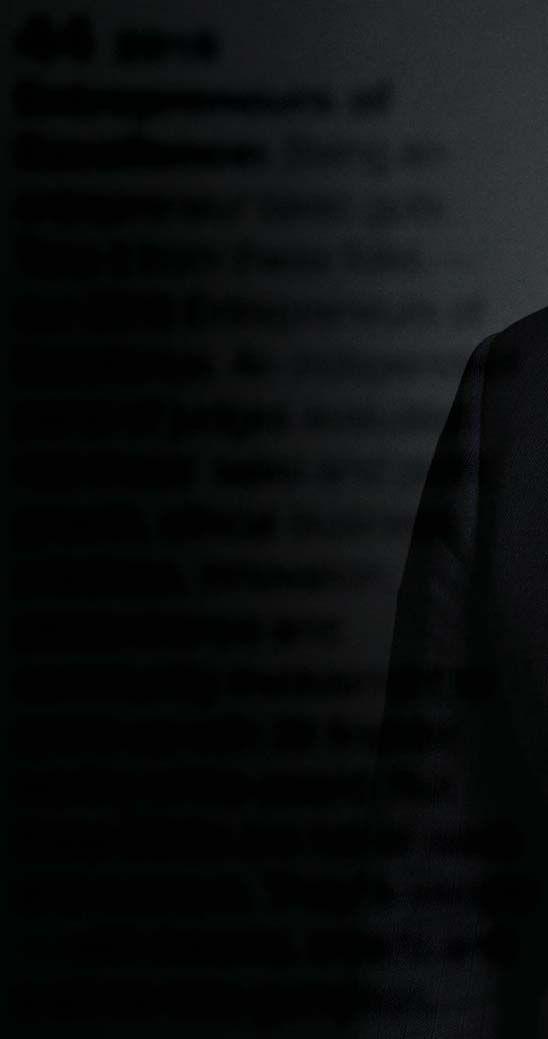
81 Top Attorneys: Need a lawyer? Here are the city’s best.


















9 Bizz Buzz: Athleisure with a purpose and Dee Kelly Jr.’s secret life.
14 Comings and Goings: A new business-minded rec center and the skinny on the city’s economic development plan.
16 Stay Informed: Art murals — good for Instagram, but also good for business.
18 Face Time: Fixture’s chef talks about his gutsy move on East Rosedale.
20 Around Cowtown: The Top Attorneys and Best Companies to Work For in Fort Worth.
( EXECUTIVE LIFE & STYLE )
24 Distinctive Style: A local attorney — and wife to a famous country musician — looks for a creative outlet, then turns it into a business.
26 Off the Clock: A tour through San Francisco’s best whiskey bars, as told by a TCU whiskey professor.





30 Office Space: Old materials meet new construction at the Fort Capital headquarters.
36 Wine & Dine: How to eat like an EOE.
38 Gadgets: Here’s one way to avoid being “hangry” on a business trip.
40 Health & Fitness: Men’s grooming is booming. ( COLUMNS / DEPARTMENTS )
122 EO Spotlight: Before doing marketing for clients like Nike, Tara Wilson’s career began with Girl Scout Cookies.
126 Business Strategy/Running Toward the Roar: Don’t get comfortable.
130 Analyze This/FW Chamber Report: The Chamber’s three goals for small business and entrepreneurial support.
132 Analyze This/Legal and Tax: Legal “home field advantage” may not be what it used to be.
134 Analyze This/Commercial Real Estate Report: What Fort Worth’s new economic plan means for real estate.
136 Analyze This/Wealth: Making America great again (yup), and helping pay off student debt.
138 Business Leadership/ Management Tips and Best Practices: Advice for young CPAs.
140 Business Leadership/ Successful Entrepreneurship: What our Entrepreneurs of Excellence taught us about entrepreneurial passion.
142 Business Leadership/ Startups: Healthy treats go big, thanks to a few students at Texas Wesleyan.
144 Day in the Life: “Have a Six Flags day.” Steve Martindale knows what that’s all about.





you want to leave something to your family, leave them land. I’ve never forgotten that. It was great advice but I couldn’t have done it without the financing and the friendship of Heritage Land Bank.”


















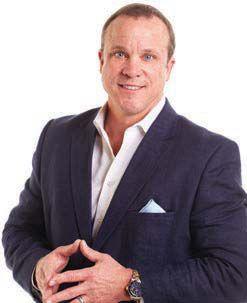
This month’s issue of FW Inc. is devoted to our second annual Entrepreneur of Excellence competition.
We’re recognizing 38 entrepreneurs and 11 winners.
The group is led by David Wesson, CEO of the energy services firm GEODynamics, who was having an exceptionally good December when he showed up at our West Fort Worth offices for his interview and photo shoot. Days later, he sold his company for $525 million.
Wesson learned how to weld growing up on a farm near Waxahachie. As a teenager he roughed-out horse trailers for $100 a piece as an employee. He says, on “Saturday, I could rough out two at $100 per trailer. So, I turned myself from employee to contractor at 16.”
Wesson epitomizes the quality of this year’s class of entrepreneurs. Thirtythree of the 38 entrepreneurs represented in this issue founded their companies, while five took existing companies to the next level.
Gus Stewart Bates, CEO of Gus Bates Insurance and Investments, represents the latter. After graduating TCU, Gus Stewart took a pay cut from his job at Joe T. Garcia’s to go to work for his dad, the senior Gus and namesake of the company he started in 1966. Over the years, under the younger Gus’s leadership, the company added retirement plan services and commercial and personal property and casualty to its offerings. Today, it is one of the leading insurance and invest-
ment companies in the region.
There’s Brent Tipps, who improvised on the fly when presented with an opportunity to open a restaurant at Fort Worth Montgomery Plaza – something other than the wing joints he was running at the time – and now has 12 BoomerJack ’ s.
And, take Matt Johnson, whose entrepreneurial story contains more begats than Genesis, leading him from selling Chevys, to Fords, powersports, police vehicles and firearms totaling more than $250 million in annual sales today. And, with all of this, he finds the time to play tennis most mornings before most of us have finished our first cup of coffee. Kevin Lackey is one of 13 members of this year’s EOE class who has just a high school diploma. He sold powersports for 14 years before he summoned the courage to try and buy the store he was working in. Today, Lackey’s Freedom Powersports has 14 dealerships and 330 employees.
If you’re like me and enjoy reading, as the great Paul Harvey would say, “ the rest of the story,” then get comfortable, you’re going to enjoy getting to know these entrepreneurs’ stories.

Hal A. Brown owner/publisher


When it comes to North Texas, we’re all in. We don’t just work here, our leaders and employees make their home here too. And as one of the nation’s largest nonprofit health systems, Texas Health delivers the care and compassion North Texans deserve, including hundreds of millions of dollars in charity care and community benefit last year alone.
We are proud to say more North Texans choose Texas Health hospitals for their care than any other system in the area. We are successful in effectively managing the total cost of care. And, with more than 350 locations – from hospitals and physicians’ offices to surgery and imaging centers – we offer the care you need, where you need it.
Our commitment to North Texas goes far beyond health care. In fact, Texas Health is also among the area’s top five largest employers. Plus, we have been nationally recognized as an exceptional workplace for culture, as well as for diversity, women and millennials.













Former TCU football players draw from personal experience to tackle socio-economic issues across North Texas.
BY KAT BARCLAY
Tim and Terrence Maiden could never pull off the identical twin tricks while playing football at TCU. They differed too much in size for that. Tim, a wide receiver, was a lot smaller compared to his younger brother by 30 minutes, Terrence, who played linebacker. “As we’ve
gotten older, we’ve started to look more alike, but back then we had about a 30-40 pound weight difference,” says Terrence.
The Maidens excelled as student athletes at TCU from 1996 to 2000, where they played alongside LaDainian Tomlinson. Their efforts on the field turned a 1-10 team their freshman year into a 10-1 team their senior season, while collecting a pair of Western Athletic Conference championships along the way.
But rather than pursuing football at the next level, the Maidens decided to pursue professional careers in business. Tim is the vice president of lending at First National Bank, and Terrence is vice president at Corinth Properties, a commercial real estate firm involved in several projects across North Texas. They also own and run an athleisure-wear business, RISE Clothing Co., which opened at the Duncanville Fieldhouse in January, as a means to fund their education and mentorship organization, the Two-Wins Foundation.

Two-Wins — which “sounds like twins if you say it fast,” Tim says — was founded in 2005 and provides school supplies and other necessities to urban communities across North Texas. The organization also offers creative programs for students in order to open their eyes to greater opportunities in higher education and career building. The Road to Success program enables and encourages students to consider education and career choices that match their personal interests, skills and passions. In the past, students have had the opportunity to tour several businesses in Dallas-Fort Worth, including Frost Bank, the Dallas Omni Convention Center Hotel, and the global headquarters of Hunt Oil, while connecting them with young professionals in those industries. The Maidens are also hoping to add more tours of businesses located in the Fort Worth area in the future. The organization also tours college campuses like TCU and the University of North Texas at Dallas. Originally based out of Cincinnati, Ohio, the Maidens
bought RISE Clothing Co. in 2015 in order to better support the foundation after struggling to tap the same sponsors over the past few years. Since Two-Wins is a nonprofit organization, it is solely funded either through donations or sponsorships, and the Maidens knew they would need a more sustainable resource. “We thought it would be a good investment,” Terrence says. “We really liked the name RISE because it goes along with how we’re trying to elevate kids to be better.”
Along with giving 11 percent of its proceeds to charitable causes, RISE also paved the way for Two-Wins’ new male leadership and entrepreneurship academy, Elevate, which offers a select group of 10th and 11th grade students, typically from urban communities, the opportunity to learn different leadership skills through mentorship of different male leaders in various industries. The academy’s curriculum is based on five core leadership skills: challenge, connectivity, creativity, communication and confidence. The program also focuses on preparing students for a life outside of their communities — whether that’s by going to college or finding a job. “College is not for everyone,” Terrence says. “But having soft skills like being able to interview and communicate with employers is something that we really want to focus on.”
Two-Wins has a deeply personal meaning to both Tim and Terrence because, similar to the students they work with, the Maidens also came from humble beginnings growing up in Oak Cliff. According to neighborhood analytics site Niche.com, 52 percent of the Oak Cliff’s highest education level is lower than high school. The twins were an exception to that statistic, however, graduating from David W. Carter High School in 1996. There, they played football under Coach Freddie James, who was an influential figure in encouraging the Maidens to attend TCU after then-head coach Pat Sullivan offered both of them full scholarships.
“Being at TCU opened our eyes to a much different world. There was a lot more diversity, a lot more wealth — a lot more emphasis on education,” Terrence says. “Those are some of the things that we saw lacking in the community we grew up in, and it puzzled us how we could connect those dots. We felt that was really through education and career exposure — if we could gain traction in those areas, we could begin to uplift the community.”
The investment also turned out to be better than anticipated — several of last summer’s Elevate participants were able to showcase their newly acquired skills as employees at RISE’s temporary pop-up store, hosted by Hillside Village in Cedar Hill, over the holidays.
“[The Two-Wins Foundation] has always been about mentoring,” Tim says. “We hope RISE can give us a bigger platform to encourage students to rise above their circumstances — and provide them some cool gear as well.”





























At Gus Bates Insurance, our clients rely on us to help guide them through the complex world of insurance and investments. But t before






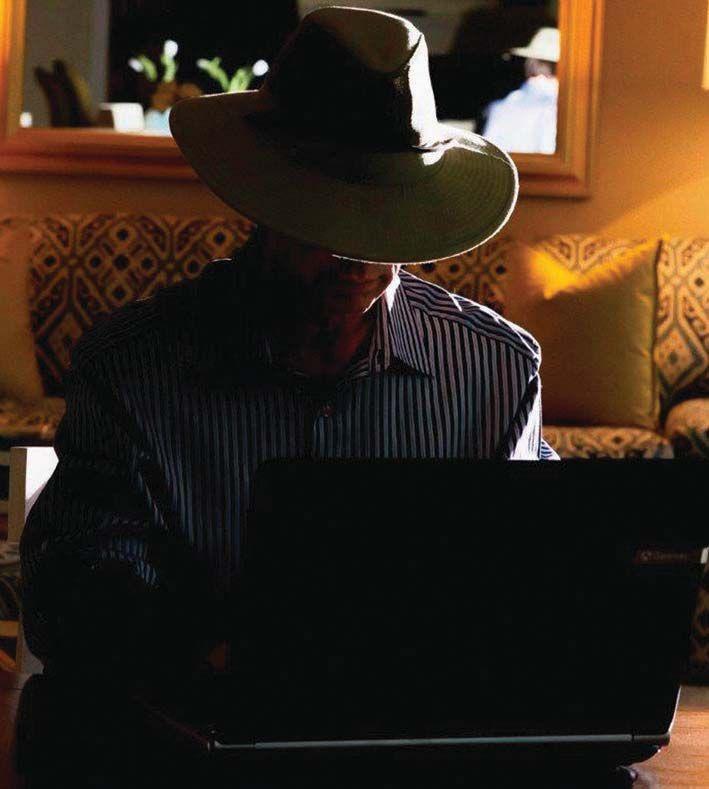
Kelly steps out from behind his pseudonym, Landon Wallace, and releases a second novel, “The Election,” a romance set against a Texas political backdrop.
BY SCOTT NISHIMURA
The evite went out quietly to some of Fort Worth’s most prominent West Siders: Come to a private book signing in December by the unknown Fort Worth novelist Landon Wallace, just releasing his second book, “The Election,” a romance set against a Texas political backdrop. If any of the guests wondered who Wallace was, they certainly recognized the hosts: Fort Worth lawyer Dee Kelly Jr. and his wife Dana.
Of course, there’s more. It turns out Wallace is a pseudonym. And Kelly – a partner at Kelly Hart & Hallman, the Fort Worth law firm co-founded by his dad, Dee Kelly Sr., who died in 2015 – is the real Wallace. With “The Election,” published by a Fort Worth collective called Trinity River Press, an imprint for Landon Wallace books, Kelly acknowledged he’s the man beneath the wide-brimmed hat in the author’s bio on both books. “I couldn’t control it,” Kelly, 56, says. “People just started finding out.”
Kelly, a University of Texas-educated lawyer with a long love of history, in 2015 published his first Landon Wallace novel, “Come and Take It: Search for the Treasure of the Alamo,” a piece of historical fiction.
“I told no one, no one, that I published it,” Kelly says. “It went to the various online distributors. Then I went to see my parents one night, and both of them had the book out at dinner. I’d forgotten I told my sister, and she went and told my parents.” Word leaked out among some of his friends after that, but few people knew Landon Wallace’s real identity until December.
He did little publicity for the first book, doing one interview as Landon Wallace with an out-of-state radio station after it ran across an online review. The hosts didn’t ask about his vague bio.
Kelly says he made no push for the book because he was Kelly Hart’s managing partner at the time – he stepped down in 2016 after serving as managing partner since 2005. “Frankly, I just didn’t have the time. And I didn’t want to detract” from the firm. He’s also in the enviable position of not having to worry about sales. Both books are available for sale online, including at Amazon. So, how, when and where was Landon Wallace born?
“I was a history major in college, and I actually entertained thoughts of doing something in the writing field for a career,” he says. “But that all changed when I went to law school. And I took a job, and then life took over.”
The approach to his 50th birthday spurred renewed interest. The idea for a pseudonym surfaced when Kelly was preparing for a trial with a paralegal, and both revealed they like to write; the paralegal suggested a pseudonym. A friend and Kelly came up with the author's name by putting 10 individual names in a hat; the first two drawn produced the full name.
Kelly is at work on his next book called “The Next Election,” a sequel to “The Election.” “You have to read that one, then you’ll know” what happens in “The Next Election,” Kelly says.

The Corporate Employees Recreation Association – the former Lockheed Martin Recreation Association – is celebrating the opening Jan. 19-20 of its newly renovated recreation complex, adjacent to the Trinity River and Waterside development in southwest Fort Worth. Ribbon-cutting is 1 p.m., Jan. 19, 3300 Bryant Irvin Road. Grand opening is 10 a.m.-4 p.m., Jan. 20.
CERA renovated the center after selling a large piece of its site for the development of Waterside, anchored by Whole Foods and REI. CERA has also made substantial improvements to its Squaw Creek Golf Course in Willow Park.
CERA facilities are open to employee families of Lockheed Martin and other companies that have signed on as members: Acme Brick, the Aledo Independent School District, Apex Capital, Baylor Scott & White, Center for Cancer and Blood Disorders, DP Engineering, First Tee of Fort Worth, Fort Worth Country Day School, Fort Worth public schools, Huckabee, Interconnect Wiring, Muckleroy & Falls, Simpli.fi, and Whole Foods. CERA is accepting a limited number of new member employers.
The recreation complex is the site of a 70,000-square-foot health, wellness and fitness center, with activity and meeting rooms, basketball gyms, volleyball, racquetball, co-ed fitness and exercise, and weightlifting. Outdoor spaces include softball fields, sand volleyball, picnic area and river access.
That’s the question posed by Fort Worth’s new economic development plan, rolled out in December by the city and its consultant TIP Strategies. The challenges laid out in the report: The city, Fort Worth Chamber of Commerce and “other partners have not embraced the need for a narrowly focused economic development program that aggressively pursues the most promising opportunities,” it said. “Without a focused business development effort, Fort Worth has fallen behind its competition.
“The city’s growth in recent years has largely been defined by expansion of single-family residential development driven by employment growth in other cities. The threats facing the city may not always be apparent, but they are very real. Recent business relocations, an increase in population not matched by an increase in wages, an out-of-balance tax base, and persistent difficulties in attracting skilled and educated young people — these issues risk engulfing Fort Worth. These challenges put Fort Worth in an increasingly weak position toward the city of Dallas and aggressive suburbs throughout the metro area.”
The city can take lessons from the intensively planned Alliance and Sundance Square private developments, the report says, but it called them “outliers.”
Goals outlined by the plan:
• High-wage job growth
• More sustainable tax base, driven by commercial and industrial investment, and less by residential
• Economy that capitalizes on highgrowth businesses and “the creative
individuals who fuel them”
• Commitment to “quality of place” throughout the community
“The time has come for Fort Worth to embrace its status as a major U.S. city and compete on the national and international stage,” the report says.
Key strategies:
• Competitive edge: Launch a national strategy to generate interest in Fort Worth among major real estate firms; expand the Chamber’s role in marketing Fort Worth for international business development; redesign Fort Worth’s business retention and expansion program to better address the needs of major employers and key industries; and expand employer-led sector partnerships to address critical workforce issues
• Become a hub for creative businesses: Formally designate the Near Southside as a “medical innovation district”; expand reach of entrepreneur networking among the city’s startup and tech communities; raise the profile of the Main St. Fort Worth Arts Festival for national and international visibility; and create a “Futures Forum” at the city
• Ensure community vitality: Rapidly increase the density of residential development in downtown and surrounding urban districts such as Panther Island; focus city investments along specific corridors and at nodes of existing business activity; and conduct an audit of the small business support mechanisms available in Fort Worth.
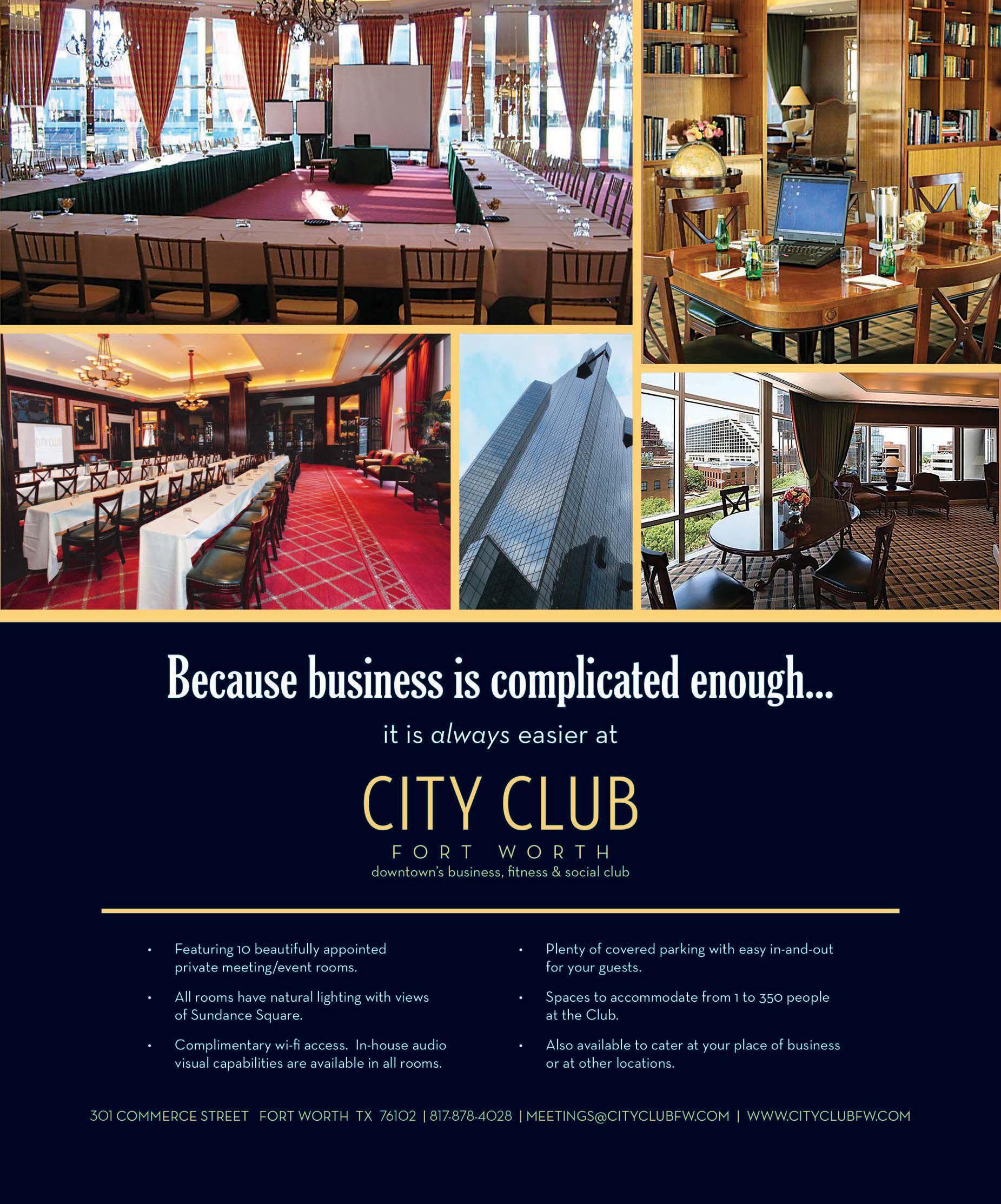
The murals that mark M2G Ventures’ developments aren’t just for looking pretty. They’re good for business too.
BY SAMANTHA CALIMBAHIN

It started with “Dream on Dreamer,” when local artist Katie Murray collaborated with real estate company M2G Ventures to paint the mural at The Crossing at Camp Bowie in 2016. As the number of M2G’s developments began to grow, so did the art projects — to the point that co-presidents (and twin sisters) Susan Gruppi and Jessica Worman decided last year to hire Murray as chief creative officer.
But Murray’s role encompasses more than just painting murals. Murray, who has a graphic design degree, is also in charge of designing marketing materials, as well as curating the art that goes onto each building.
Aside from making a development more meaningful and giving local artists more exposure, the art plays a business purpose too. According to Worman, it’s a national trend — as today’s consumers are leaning toward experiential retail, developers are utilizing art to create that experience.
Worman says much of M2G’s work is inspired by the Wynwood development in Miami, which similarly features public art alongside stylish boutiques and other businesses. Locally, companies like Trademark Property Company have also put an emphasis on art, as seen at places like Waterside and WestBend.
It helps bring in tenants too, Worman says.
“We’ve never been able to underwrite the public art in our developments because we can’t tell our investors, ‘Hey, if I do this, people will come,’” Worman says. “We do know that the art creates a narrative for our projects, we know that it helps get the development jump-started, and we know that it has helped sustain energy in areas that aren't completely developed. So, by investing in art, we are tying everything together and creating a brand before it's fully filled with tenants. We’ve been able to bridge the gap with art because tenants see the story and fall in love with the brand, which allows us to actually get things under construction.”

Doing art for a living isn’t impossible. Take it from Katie Murray, who describes her job with one word: “Perfection.” Here are her tips for turning art into a career.
1. DECIDE WHETHER TO GO TO SCHOOL. “For me, it was a confidence builder to go to school [Murray has a master’s degree in painting from Texas Woman’s University] and to get that encouragement and the knowledge that I needed from a scholastic environment, as opposed to just doing it on my own.”
2. GET INVOLVED IN THE LOCAL ART COMMUNITY. “Staying connected, going to events, going to every single art opening you can, going to all of the workshops and the lectures, staying current, making sure you’re visiting the museums — you will run into the same people over and over again if you continue to do that, at least in Fort Worth, because Fort Worth is so small. The art community is growing, but it is still easy enough to access right now.”
3. GO FOR THE PAYING JOB. “Artists are constantly downplaying their work ... If you continually ask and make yourself worthy of a paycheck, you’ll get it.”


SHELBY BRUHN President
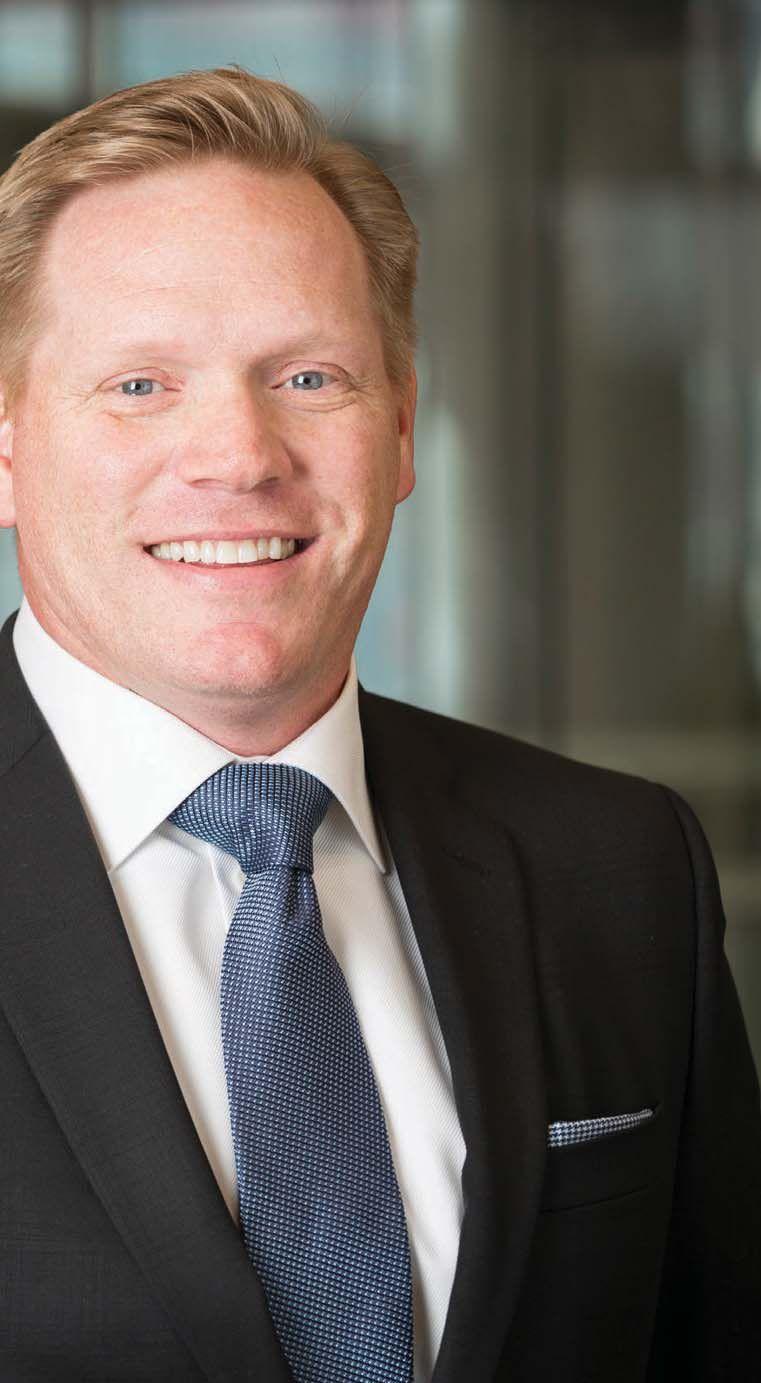
Fixture’s chef surprises restaurant community with a café in the heart of the Rosedale Renaissance.
BY SCOTT NISHIMURA
If Chef Ben Merritt’s decision to open a restaurant this year in the heart of East Rosedale Street at Texas Wesleyan University surprised many (the university even included an exclamation point at the end of the headline announcing the news), Merritt thinks it makes perfect sense.
Texas Wesleyan is investing heavily in its campus and the “Rosedale Renaissance,” the revitalization of its East Rosedale Street front yard, and the city has kicked in with street-front improvements. Texas Wesleyan cut Merritt a deal on the lease and found federal urban development grant money it will use to restore the building shell.
Merritt, who opened his Fixture –Kitchen and Social Lounge on the Near Southside’s West Magnolia Avenue two and half years ago, began looking for the location of a second restaurant after year one on West Magnolia. He considered West Magnolia, but didn’t like the rents. He drove Riverside’s emerging Race Street, but didn’t think it ready. Then he drove East Rosedale and sat in the lot of a car wash one day, watching traffic.
“There was so much traffic and no restaurants,” Merritt said one recent afternoon, finishing off a sandwich at the Subway in the same strip at East Rosedale and Wesleyan Street where he’ll open the 3,400-square-foot Ben’s Triple B: Biscuits, Burgers and Brews this spring.
“It is a risk, but I feel with the lease and the whole project, I’m going to do OK,” says Merritt, who's already pitch-

ing restaurant friends on moving into the remaining 4,000 square feet available in the strip.
A week after he drove the street, Merritt ran into Todd Miller, a Wesleyan backer, at the Near Southside’s Friday on the Green and mentioned an interest in East Rosedale. Miller made an introduction to Fred Slabach, Texas Wesleyan’s president.
The university has secured $570,000 in federal money it will use to revitalize the center, including Merritt’s space. Merritt and the university agreed to a five-year lease, with a five-year renewal option.
The restaurant will have a rear deck. The university is paving two parking lots – one behind the strip with Merritt’s restaurant and the second on the west end of the center.
When he first saw it, Merritt noticed the building sits on a high spot. He plans a second-phase rooftop patio, with views overlooking the downtown skyline.
The restaurant will be open for breakfast, lunch and dinner, and have a casual vibe, with a full bar, TVs for sports fans, strong Wi-Fi, copious power outlets, and a menu featuring breakfast items, biscuit concoctions, salads and “old-fashioned burgers done right,” Merritt says.
Having a nonprofit landlord helped bring Merritt over. Slabach says securing the federal money to bring the storefronts back to “white box” condition was a big win. “We knew that was the biggest impediment to getting retailers in.”




The 25 Best Companies to Work For in Fort Worth were honored at a luncheon Nov. 9 at the Fort Worth Club.
5. Scott Nishimura, Mark Nurdin, President and CEO, Bank of Texas, and Hal Brown
6. Scott Nishimura and Hal Brown with winning company, Koddi
7. Lisa Maddux, Cindy McDaniel
8. Winning company, Forte Benfits
9. Aaron Rocamontes, Greg Hobson, Jennifer Tutt

Fort Worth Magazine's Top Attorneys
Fort Worth Magazine celebrated its 2017
Top Attorneys with a reception at the Fort Worth Club on Nov. 28.
1. Christina Sherwood, Mary Helen Alvarez
2. Cynthia Hill, Phil Mccory
3. Stacie Burgess, Brad Parker
4. Jody & Kristee Walker

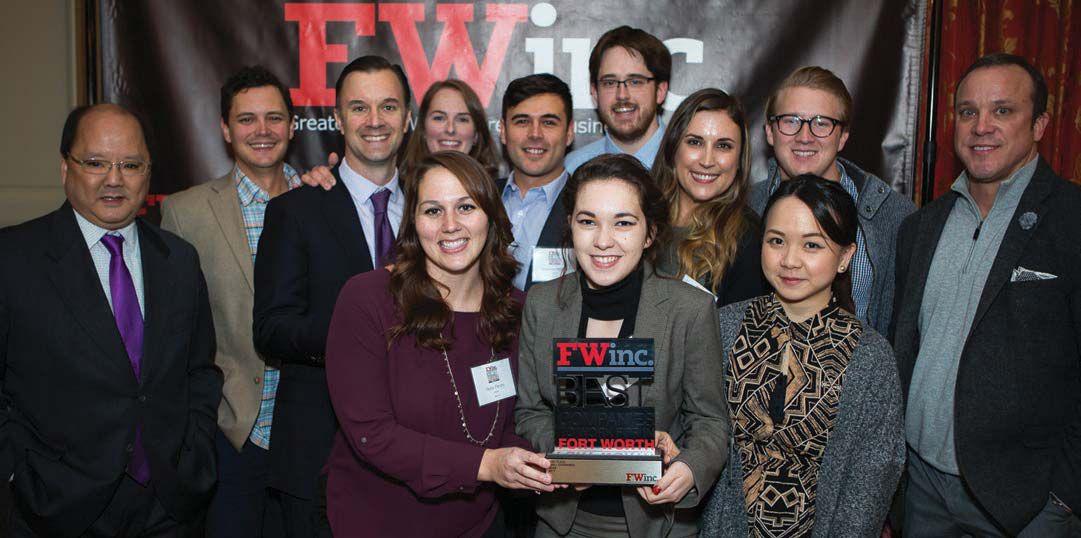




Think with Krys Boyd on KERA 90.1 features in-depth interviews on topics ranging from history, politics and technology to food and wine, travel and entertainment. Go for the compelling guests. Go for the engaging conversation. Go to listen, learn, engage and think. Go Public.


THINK WITH KRYS BOYD
MONDAY-THURSDAY, 12-2 PM
FRIDAY, 1-2 PM







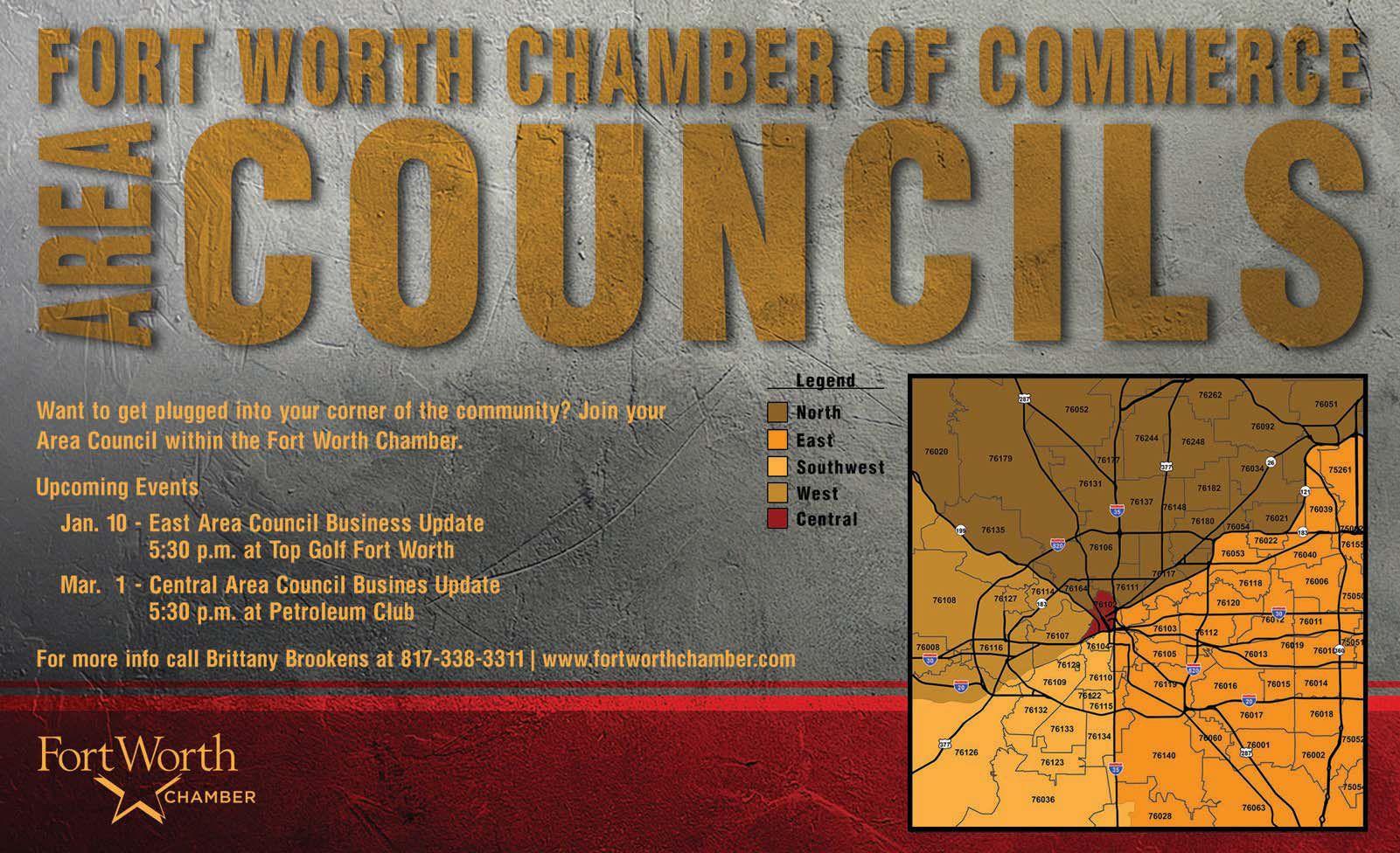

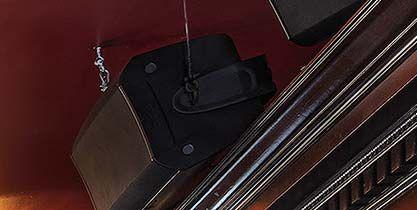
San Francisco doesn't exactly scream “whiskey town,” but one TCU professsor's tour of the area might change your mind. Read his story on page 26.
A look at the personal style of attorney-turned-entrepreneur
BY SAMANTHA CALIMBAHIN
Kori Green is an attorney.
But she craved a creative outlet, so about a month after taking the bar exam in 2002, she learned how to make jewelry through a friend of a friend. After going through the basics — crimping beads, wrapping wire, putting on a clasp — she purchased her own beads and got to work.
“I was so starved to be creative,” she said. “I didn’t get up from that table for days.”
She’d sell her creations alongside practicing law at Fort Worth firm Cotten, Schmidt & Abbott, making her jewelry at home and showcasing her products at various trunk shows and local shops like You Are Here. But it wasn’t until accessories showroom Julie Hall Inc. reached out to Green three years ago to show her products

at Dallas Market Center, that Green realized her business was really taking off.
So she shifted her focus from law to Kori Green Designs, her jewelry company, which now has products in about 25 boutiques around Texas, Oklahoma and Louisiana (she’s still of counsel at Cotten, Schmidt & Abbott). Last October, Green opened a studio and showroom at LOCAL Design Studios and Gallery on West Vickery Boulevard, sharing the space with children’s boutique Lila + Hayes, hair bow and bow tie company The Bow Next Door, home furnishing shop Ro Rynd Interiors, and paper type and printing company Wabash Road.
Green describes her jewelry as “funky but still polished,” much like her personal style. She’s a fan of clean lines with a “wink,” such as a ruffled sleeve, citing You Are Here, Esther Penn, Zara and Elements in Dallas as favorite shops.
While she mostly wears her own jewelry, she also wears anything given to her by her husband — musician Pat Green.
According to Kori, he has pretty good taste in accessories — one of her favorite pieces he bought for her is a chain necklace with mixed stones, which inspired the design for her Y necklaces.
“He buys things that I would never buy for myself, and I always end up loving them,” she says.
Green has been running her business for about 16 years now, and yet, she says she still sometimes feels like she’s flying by the seat of her pants. Her advice to those who want to enter the creative industry: Make it personal.
“If you just make things you really like, and it’s personal to you, people will just naturally be drawn to it.”





Blue Zones Project® is a well-being improvement initiative designed to make healthier choices easier in Fort Worth. A vital part of Fort Worth’s Healthiest City initiative, Blue Zones Project encourages changes to our community that lead to healthier options. When our entire community participates, the small changes contribute to big benefits for all of us: lowered healthcare costs, improved productivity, and ultimately a higher quality of life. With more than 260 Blue Zones Project Approved™ worksites, schools, restaurants, grocery stores, and organizations, Fort Worth is well on its way to becoming a certified Blue Zones Community. Join the movement and make a commitment to your own well-being by participating in a Blue Zones Project activity and taking the Blue Zones® Personal Pledge. Learn more at: LiveLongFortWorth.com









A TCU chemistry professor with a passion for whiskey journals his experience as he visits San Francisco’s most notable purveyors.
BY ERIC SIMANEK

The goal was simple: Identify San Francisco’s best whiskey bars and a strategy to enjoy them. I polled bartenders at 20 bars, and 11 establishments emerged as the city’s finest for whiskey.
Day 1 Any whiskey adventure to San Francisco should start with an Irish coffee at The Buena Vista, a venerable cafe at the end of the Powell-Hyde cable car line at Fisherman's Wharf. First,
hot water emptied from the clear glass. Then, two lumps of sugar. Black coffee and the Irish whiskey of the day (today, Tullamore DEW) follow. Finally, thick cream spooned on top.
Hard Water, on Pier 3 near the Ferry Building Marketplace, opens at 11 a.m. The clean, sleek space sports a wall of whiskey, and each of the six shelves holds multiple bottles of well over 100 different offerings. I meet bar director Erik Adkins, who shares his enthusiasm for bourbon and the process that yields it. From Hard Water, a several-block walk

to the Financial District will land you at Rickhouse. Some of the best cocktails are not on the menu. I had heard rumors of one called Penicillin, a perfect concoction of Scotch blended whiskey, an Islay malt (ideally Laphroaig 10 year), citrus, ginger and honey. It is relatively laborious to prepare, so do not ask for one if the bar is hopping.
After a short hotel stop, it's time to head south to the lively and emerging Mission District and several bars on our tour. First stop is the Nihon Whiskey Lounge (NWL), which lives in an

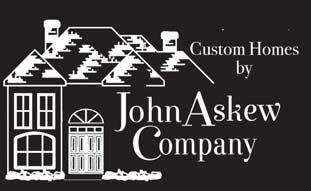



unassuming, gray building on the corner of Folsom and 14th streets.
NWL offers what is commonly described as the most complete collection of single malts in the city. As I sit at the bar and consider a malt list that readily numbers in the hundreds, my eyes dance between a host of 3/4-ounce tastes. While many start at $7, others reach a few hundred dollars.
From NWL, the Mission also is home to Trick Dog, which tends to attract a younger crowd. The menu, a photobook of recipes, is itself a work of art. Proceeds from its sale support the local art community through ongoing efforts. Currently, Trick Dog is sponsoring 14 local artists to paint murals around the city, including the collaboration that appears on the outside face of the bar. The murals inspire cocktails of similar names.
Grab a ride and head over to the Mission’s ABV and Elixir, separated by 243 feet and one busy street. ABV leverages its role as a gathering place to advance worthy causes. On the immediate horizon is a family spaghetti dinner with negroni cocktails to benefit a local cancer support group. While ABV does not take reservations, a bar upstairs, aptly named Over Proof, does.
Elixir is a classic corner bar run by “H.” Joseph Ehrmann, a pioneer of the San Francisco scene. While his interests are not monogamously focused on the brown spirit whiskey, his knowledge of scotch, bourbon and blends is exhaustive. On this day, Teelings Whiskey is pouring. Hang out and one might meet Camper English, a famed blogger and experimentalist currently consumed with ice.
Day 2 Perched in North Beach on Pacific Avenue at Columbus, Comstock Saloon anchors what was once the Barbary Coast. Comstock Saloon has been lovingly restored by hand by co-owner Jonny Raglin to reflect a history tracing back to before the San Francisco fire of 1906. We visited over a shot of Four Roses


Yellow Label (the only liquid authorized to be served in the glass cowboy boot shooter) and a steam beer chaser.
I head next to Alembic, which resides in the storied Haight-Ashbury, where the vibe still lives. The Mount Aso captures my attention — Iwai whiskey, mirin (a type of rice wine), kabocha spice, lemon, and smoked carrot dashi. The hint of carrot is a surprisingly delicious contributor to taste. Music from the ’60s offers a backdrop for a crowd engaged in intimate banter around the bar.
A drive back downtown to Union Square puts me at Tradition, which is large in comparison to other spots. Behind the bar, I find another wonder (and perhaps traitor, by some standards): Kelly, a self-proclaimed gin-oisseur. She offers this label as justification for her personal collection of 400 bottles, which exceeds that of Whitechapel, the gin house she selects for. I guess somebody has to do it. Kelly walks me through the menu leading me to the signature drink, aptly named the

The List
Hard Water Pier 3, Embarcadero hardwaterbar.com
Rickhouse 246 Kearny St. rickhousesf.com
Bourbon & Branch 501 Jones St. bourbonandbranch.com
Nihon Whiskey Lounge 1779 Folsom St. dajanigroup.net
Comstock Saloon 155 Columbus
Ave. comstocksaloon.com
Trick Dog 3010 20th St. trickdogbar.com
Elixir 3200 16th St. elixirsf.com
ABV 3174 16th St. abvsf.com
Alembic 1725 Haight St. alembicsf.com
Tradition 441 Jones St. tradbar.com
Rye 688 Geary St. ryesf.com

Tradition. Delicious.
The next stop on the whiskey tour is Bourbon & Branch, just across the street. Make a reservation. Get the password. Look for the sign for the Anti-Saloon League (a group that advocated prohibition during the late 1800s). Under the sign, one is likely to find a well-dressed gentleman who neither threatens, nor seems readily willing to offer a hug. There is no conversation until I deliver the password to this speakeasy. Then, after a delay where the hostess appears at a knock, confirms my name, and all too abruptly shuts the door in my face, I am ushered into what is a very dark barroom. The bar is divided into four rooms — three rooms take reservations, the dark bar and two better-lit rooms. Each reservation provides a monitored window of time. When time expires, patrons are ushered to the last room, the library, where libations can be finished.
To end the adventure, head around the block to Rye, but keep your eyes open. Rye is almost as well hidden as Bourbon & Branch, although a sign marks it. Of the choices, start with a Pimm's Cup. Atop this frothy glass of rye and house-created
Pimm's No. 5 is a cucumber slice and mint sprig. Lemon, ginger and seltzer complete the mix. The approach — that is, the smell of vapor before the sip, when the nose and lips move in toward the glass — is a critical part of the experience.
Research complete, it is overtime to grab a lift to the airport.

Eric Simanek is Robert A. Welch Professor of Chemistry at TCU and department chair, organic and biological chemistry, materials chemistry and drug delivery. His lab pioneered a new class of tree-shaped molecules that showed promise as vehicles for fighting prostate cancer and building blocks for new materials. He founded the TCU IdeaFactory to engage students in entrepreneurship. Simanek teaches a class on whiskey and enjoys writing about, and sampling, it.
The new, state-of-the-art, 60,000-square-foot ROGER WILLIAMS AUTO DEALERSHIP in Weatherford, Texas







Vintage materials create a modern office space for River District developer Fort Capital.
BY SAMANTHA CALIMBAHIN
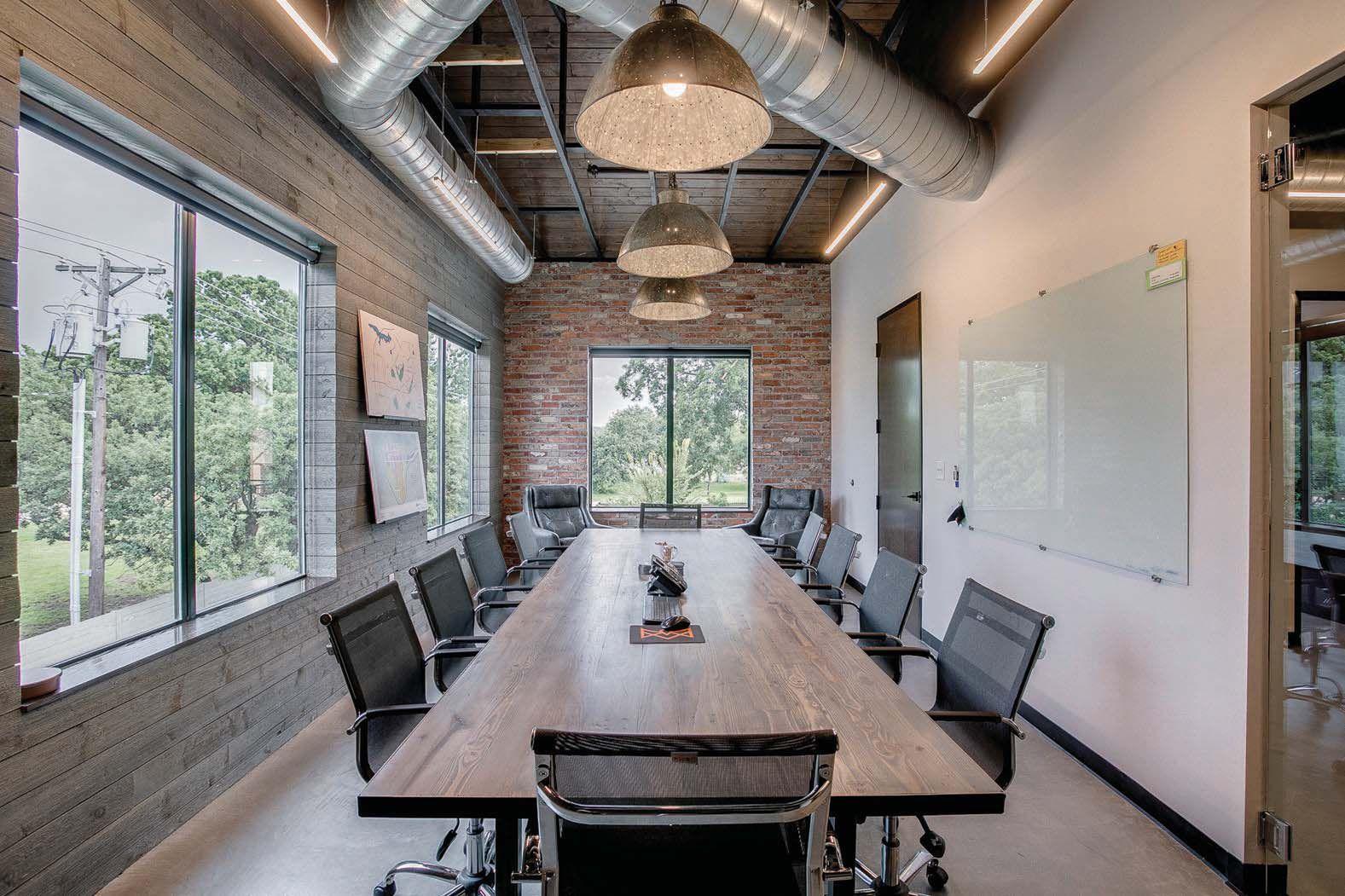
White Settlement Road is the quirky street that runs through the middle of The River District.
Auto shops in old buildings mix with new construction, restaurant Lettuce
Cook displays a monkey mural for the Instagram-types, and the swanky new Elan River District Apartments stand directly across from Salsa Limón — a modern taco joint in an old diner, built in the 1940s, that was literally picked up and moved from University Drive to
White Settlement Road in 2016. Then there’s Fort Capital, the company spurring the development in the up-andcoming district. About nine months ago, the developer moved from a temporary office in The Foundry District (another up-and-coming development near West


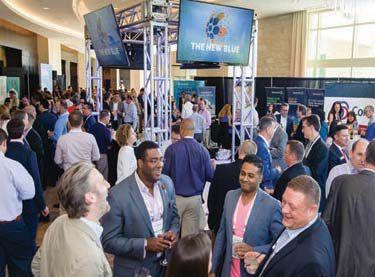

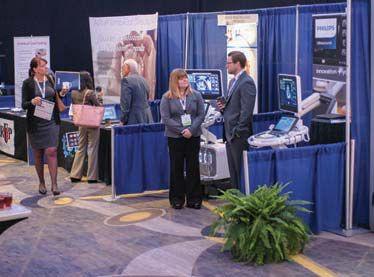
Seventh Street) to The River District. Located at 105 Nursery Lane, just south of White Settlement, the building stands two stories at 16,500 square feet. Fort Capital built the space to be its headquarters, but the building is also shared by other companies like RRIG Energy, Jetstream Oil & Gas, and Panther City Rental. Fort Capital occupies about 5,500 square feet, with the main office upstairs and construction office downstairs.
As a whole, the farmhouse-style building takes on the same old-meets-new style as the rest of the street.
“The rustic vibe very much speaks to who we are as a company and the designs of our projects in that we are in the business of often taking what’s old and finding new meaning and purpose within it,” says Sarah Beth Shapleigh, Fort Capital’s marketing director and project designer, who was also heavily involved in the design of the space. “A
perfect example of this is the work we are doing in The River District.”
The space evokes an industrial yet minimalist feel with gray, brown, black and white dominating the color palette. Blank white walls are interrupted by rustic wood paneling or exposed brick — the brick, in particular, has its own story.
The brick was originally part of the Avondale Mill Building, a structure built in 1895 in Walhalla, South Carolina. The building was occupied by multiple businesses manufacturing everything from diapers to denim until the mill shut down in the late 1990s. Fort Capital worked with local company Legacy Timber, which specializes in reclaimed materials, to source the brick and have it shipped to Fort Worth.
So, the building, or at least the brick, found new life at Fort Capital’s headquarters. Other elements in the space nod to the old days as well, thanks in
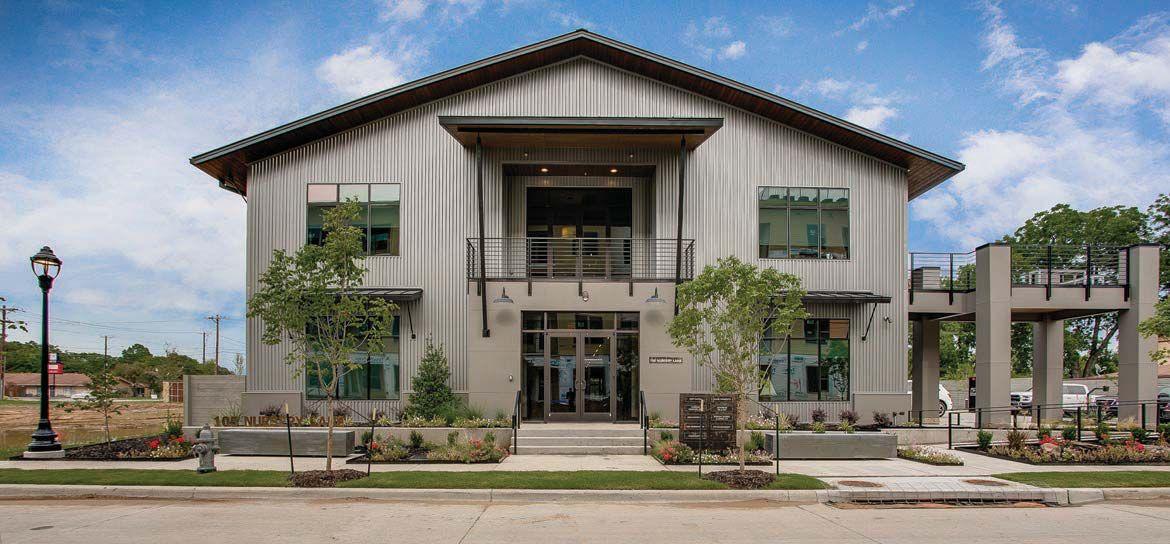


part to Daniel Wright of W Durable Goods. He built one of the most prominent pieces, found hanging above the staircase connecting the first and second floors — a massive chandelier-like light fixture constructed with a vintage shade and with large Edison globes in the center. He also built the honeycomb-esque light fixture in a downstairs conference room, which Shapleigh says reflects the “busy bees” working in the building. In addition, signs from the Sunset RV Park that once existed nearby decorate the downstairs construction office.
Fort Capital’s main office has a simple layout. A reception area leads to a hallway lined with individual office spaces, then opens to a common area and conference room.
All desks, along with the conference table, receptionist desk and kitchen table, were built by PalletSmart, a recycled furniture shop just down the street from Fort
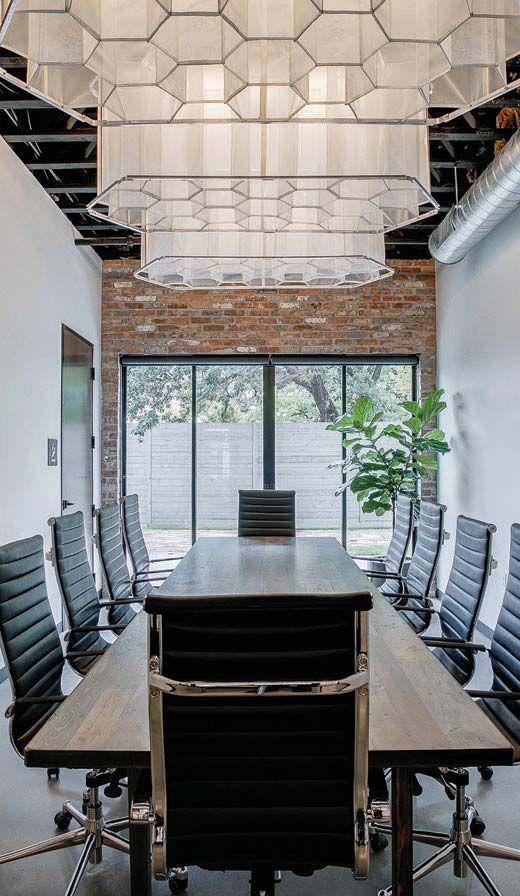

“Thank you to our outstanding team members, valued clients, and appreciated partners who helped us grow to 2 locations and become the authority in men’s grooming. I’m honored to represent Boardroom as a 2018 FWinc. Entreprenuer of Excellence finalist.”



Capital. PalletSmart used wooden pallets and raw steel framing to build the tables, using a wood stain chosen by Shapleigh. She also designed the steel reception desk, which PalletSmart brought to life.
“They use a technique to further enhance the look of the raw steel where they pour acid on it, creating a marbled exterior, which is just gorgeous,” Shapleigh says.
PalletSmart also helped create much of the signage around the building.
With so much metal, concrete and brick dominating the design, Shapleigh wanted to avoid the space looking “cold,” which is why glass is also used as a main wall in each employee office space.
“We countered this by inserting as much glass as possible so the space felt warmer, brighter, and more welcoming,”

she says. But the glass serves a functional purpose too. “It allows much more transparency within the office. We really pride ourselves on being open with one another as a team. Having a large piece of glass serve as a main wall in your private office allows for better communication and approachability with others.”
The informal common area incorporates touches of leather and a cowhide rug that “speaks to our love of Fort Worth culture and adds an organic element of surprise in an office where the color scheme hardly varied and lines are clean,” Shapleigh says.
Another homage to Fort Worth is found downstairs with a laser-cut wooden map of the city, created by CutMaps.
It makes sense for a company that has its foot planted firmly in Fort Worth


real estate. Fort Capital, named one of FW Inc.’s Best Companies to Work For in 2017, is involved in multiple projects throughout the area, including the Park 7 boutique apartment in the West Seventh Street area, the Magnolia West neighborhood in Westworth Village, and the Suffolk Business Park south of TCU.
But The River District is arguably one of the company’s most-buzzed-about projects — one that Fort Capital is happy to not just work on, but work in.
“This area had not seen new construction in many, many years,” Shapleigh says. “With a vision for ‘what could be’ and being perfectly situated on the beautiful Trinity River, we knew this area could be something incredibly special.”
THE RIVER DISTRICT is a 276-acre development along the Trinity River in west Fort Worth, located at White Settlement and Roberts Cut Off roads. At press time, the development had more than 700 residences, 10 businesses and over 10 restaurant and retail shops, including Salsa Limón, Flowers on the Square, and Abundio’s Fit Society. Eventually, The River District will be home to Crystal Springs on the River, an outdoor entertainment venue, and Truck Yard, a 15,000-square-foot outdoor food truck park and beer garden.


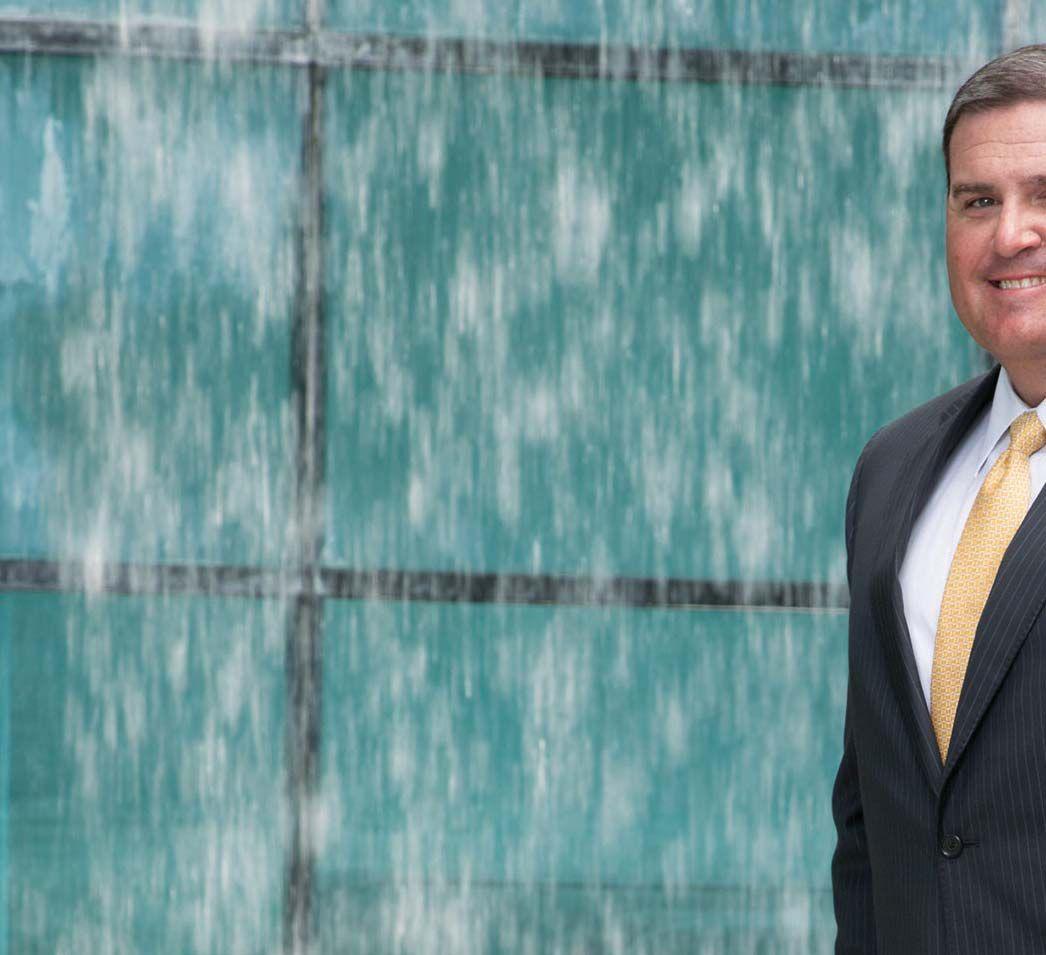
Craig Rogers President & CEO




Two restaurateurs made this year’s list of Entrepreneurs of Excellence. (And get this: They’re both named Brent.) Neither claims to be foodies, but here, they dish on their favorite Fort Worth foods.
BY SAMANTHA CALIMBAHIN
Brent Johnson, CEO of Rio Mambo, Inc.
Favorite dish at your restaurant? The Holbrooks — two cheese enchiladas topped with salsa (spicy molcajete is recommended) and layered with two over-easy eggs, strips of tender beef fajita and sliced avocado.
Go-to Fort Worth restaurants that are not your own? Michael’s. I always get the Pepper Crusted Beef Tenderloin with ancho chile-bourbon sauce.
I also love this restaurant in Willow Park called Fish Creek. I always get Gasowski's Seafood Sampler (brochette, shrimp salad stuffed avocado, crab cake and fondue) and Billy's Chicken Fried Steak.
Brent Tipps, CEO of BoomerJack’s Grill & Bar
Favorite dish at your restaurant? In our stores, I absolutely love our wings and loaded skillet queso to start with. Our Triple B burger is killer. It’s got beef, brisket and bacon topped with onion strings on a pretzel roll. It’s awesome! Go-to Fort Worth restaurants that are not your own? Has to be The Capital Grille. Gloria [Starling] is an amazing operator, and the staff is incredible. I love the lobster bisque to start and ahi tuna for lunch, served rare. Sitting at the bar for lunch and having a glass of wine, reading the paper and seeing friends come and go is something I really enjoy. Felicia is a great bartender and times my lunch just perfect every time.

A Recipe From Brent Tipps’ Fiancée, Kimberly: Tagliatelle With a Rich Meat Sauce
•4 tablespoons olive oil
•3 ounces pancetta
•1 onion, chopped
•1 garlic clove, chopped
•1 carrot, chopped
•1 celery stalk, chopped
•8 ounces ground beef
•4 ounces chicken livers, chopped
•2 tablespoons pureed canned tomatoes
•1/2 cup dry white wine
•1 cup beef stock
•1 tablespoon chopped fresh oregano
•1 bay leaf
•1 pound tagliatelle
•Salt and pepper
•Grated Parmesan cheese, to serve
1. Heat oil in a large, heavy bottom saucepan. Add the pancetta and cook over medium heat, stirring occasionally for 3-5 minutes until it is just turning brown.
2. Add the onion, carrot, and celery and cook, stirring occasionally, for an additional 5 minutes.
3. Add the beef and cook over high heat, breaking up the meat with a wooden spoon for 5 minutes until browned.
4. Stir in the chicken livers and cook, stirring occasionally, for an additional 2-3 minutes.
5. Add the pureed tomatoes, wine, stock, oregano, and bay leaf, and season with salt and pepper to taste. Bring to a boil, reduce heat, cover, and simmer for 30-35 minutes.
6. Meanwhile, bring a large saucepan of lightly salted water to a boil. Add the pasta, bring back to a boil, and cook for 8-10 minutes, or according to the package directions, until tender but still firm to the bite.
7. Drain the pasta and transfer to a warmed serving dish. Drizzle with a little oil and toss well.
8. Remove and discard the bay leaf from the sauce, then pour the sauce over the pasta and toss again. Serve immediately with grated Parmesan.
•5 pounds pork shoulder (pork butt), skinless, bone-in (4 pounds without bone)
•1 onion, chopped
•1 jalapeño, deseeded, chopped
•2 1/2 teaspoons salt
•1 teaspoon black pepper
•4 cloves garlic, minced
•2 oranges, juice only (or sub with 3/4 cup fresh orange juice)
•1/2 can chipotle en adobo
Rub
•1 tablespoon dried oregano
•2 teaspoons ground cumin
•1 tablespoon olive oil
1. Rinse and dry the pork shoulder, rub in salt (liberally) and pepper.
2. Combine the rub ingredients, then rub all over the pork.
3. Place the pork in a slow cooker (fat cap up).
4. Spread chipotle en adobo on top, top with the onion, jalapeño, minced garlic (don't worry about spreading it) and squeeze over the juice of the orange.
5. Cook on high for 6 hours and then low for 2 hours. The meat should be tender and falling off the bone. Remove from the slow cooker and let cool slightly. Then shred the pork using two forks.
6. Skim off the fat from the juices remaining in the slow cooker and discard the fat. If you are left with a lot more than 1 1/2 to 2 cups of juice, reduce it (either in the slow cooker on the sauté setting with the lid off or in a saucepan). The liquid will be salty; it is the seasoning for the pork. Set aside.
To serve:
1. Heat 1 tablespoon of oil in a large nonstick pan over high heat. Place shredded pork into the pan; drizzle over some juices. Wait until the juices evaporate and the bottom side is golden brown and crusty. Turn and just briefly sear the other side — you don't want to make it brown all over because then it's too crispy. You’d want tender, juicy bits.
2. Remove pork from skillet. Drizzle over more juices and serve immediately.

“We





No time to eat at the airport? This app developed by a TCU grad might make it easier.
BY SAMANTHA CALIMBAHIN
The “hurry up and wait” game is perhaps best played at the airport.
A lot of times, there’s a lot more hurrying up than waiting, especially when you’re a busy business traveler rushing to your next connecting flight.
It’s a lot harder to deal with on an empty stomach. Thus, Grab was born — an ecommerce platform that includes a mobile app which allows travelers to or-
der food from an airport restaurant, then pick it up quickly in between flights.
“We say, ‘Don’t get hangry,’” said Jeff Livney, a 2010 TCU graduate and chief experience officer at Grab. “If you’re starving, that can certainly change your experience throughout the day.”
Here’s how it works: You browse a list of restaurants available at the airport (the app also has a map function that can show you the restaurants between your current location and the gate), place your order, and the order will be ready for pickup at the restaurant. You can also browse restaurants before you reach the airport and put a hold on your order; then once you get there, Grab will sense your location and send you a push notification reminding you to place the order.

It’s almost like Uber — but not really.
“We don’t let you say, ‘I want to pick up at 3 p.m.,’ as what we’ve learned in airport environments is you’ll never be where you think you will be at an exact time,” Livney said. “Security will take longer, there was traffic on the way to the airport, your flight was delayed getting in for your connection — we find it far easier to let you browse ahead of time and put the order in at the right point.”
Grab, launched in 2015 at Atlanta Hartsfield-Jackson International Airport and Austin Bergstrom International Airport, has since grown to more than 25 airports, including DFW and Dallas Love Field. It also expanded to the U.K. and is available at London Heathrow, Manchester Airport and Birmingham International. Grab is also integrated with apps hosted by the

If you’re searching for the Grab app on the App Store, don’t just search “Grab” — that’ll take you to a ridehailing service that’s not the same as the foodordering app. Instead, search “Grab - Airport Food Ordering.”
airlines themselves, such as the American Airlines app. In addition to the app, Grab also develops self-order kiosk platforms for restaurants.
Grab is primarily used for ordering from restaurants, but Livney said the company is working to add retailers to the mix, as well as additional airports.
“Airports are just hectic environments,” Livney said. “They create anxiety for a lot of people. It’s one way out of many to try to reduce anxiety and make it an easier travel experience.”

The men’s grooming industry is growing like crazy. Here are a few ways to take advantage of services right here in the Fort.
BY SAMANTHA CALIMBAHIN
Going to the spa, getting a facial, getting your hair done — sounds like girl stuff, right? Well, not so much anymore. Business owners have been cashing in lately on grooming services with a more masculine take, giving care to things like haircuts, shaves and skin care that caters specifically to men’s skin. In fact, it’s an industry valued in the billions. Fort Worth, in particular, has a growing list of businesses and grooming services catered toward the dudes. Here are a few to check out.
Men’s Executive Facial
Mokara Spa at the Omni Fort Worth Hotel
$120 FOR 50 MIN.
Deep cleansing, exfoliating treatment that includes hydrating mask and steamed towel barber wrap.
1300 Houston St. 817.535.6664 omnihotels.com/hotels/fortworth/spa/mokara-men
Cut/Shave
Fort Worth Barber Shop
$55

A straightforward fullservice haircut and hot towel shave.
Original Location 3529 Lovell Ave.
The Lathery
200 Carroll St., Ste. 170 817.731.5252 fortworthbarbershop.com
The Presidential Package Boardroom Salon for Men
$165
Includes four services: Benchmark (haircut, hand dip, shampoo/conditioning, scalp and hand massage and other services), Hand Grooming, Foot Grooming, and a Traditional Hot Lather Shave.
Alliance Town Center
9405 Sage Meadow Trail, Ste. 113
817.741.0770
Crockett Row at West 7th
820 Currie St. 817.882.8806 boardroomsalon.com
Men’s Fitness Facial
Daired’s
$90
A professional skin analysis followed by cleansing, exfoliation, extractions and moisturizing.
2400 W. Interstate 20, Arlington 817.465.9797 daireds.com

The popularity of men’s grooming has no doubt increased in Fort Worth — especially with the recent growth of businesses like the Fort Worth Barber Shop, whose owner, Jonathan Morris, opened another location and retail store, The Lathery, last March, and Boardroom Salon for Men, which plans to open a third Fort Worth location at the The Shops at Clearfork in May.
As it turns out, the “groom boom” is a global thing. According to market research firm Euromonitor, the global male-grooming market was valued at $47.2 billion in 2015 and is expected to reach $60.7 billion by 2020. Male-grooming products are mostly sold via brick and mortar, accounting for 81 percent of total sales in 2015.
“The men's grooming industry is finally starting to take flight in Fort Worth,” Morris says. “Guys are starting to discover their own personal style and realizing the confidence that it brings.”
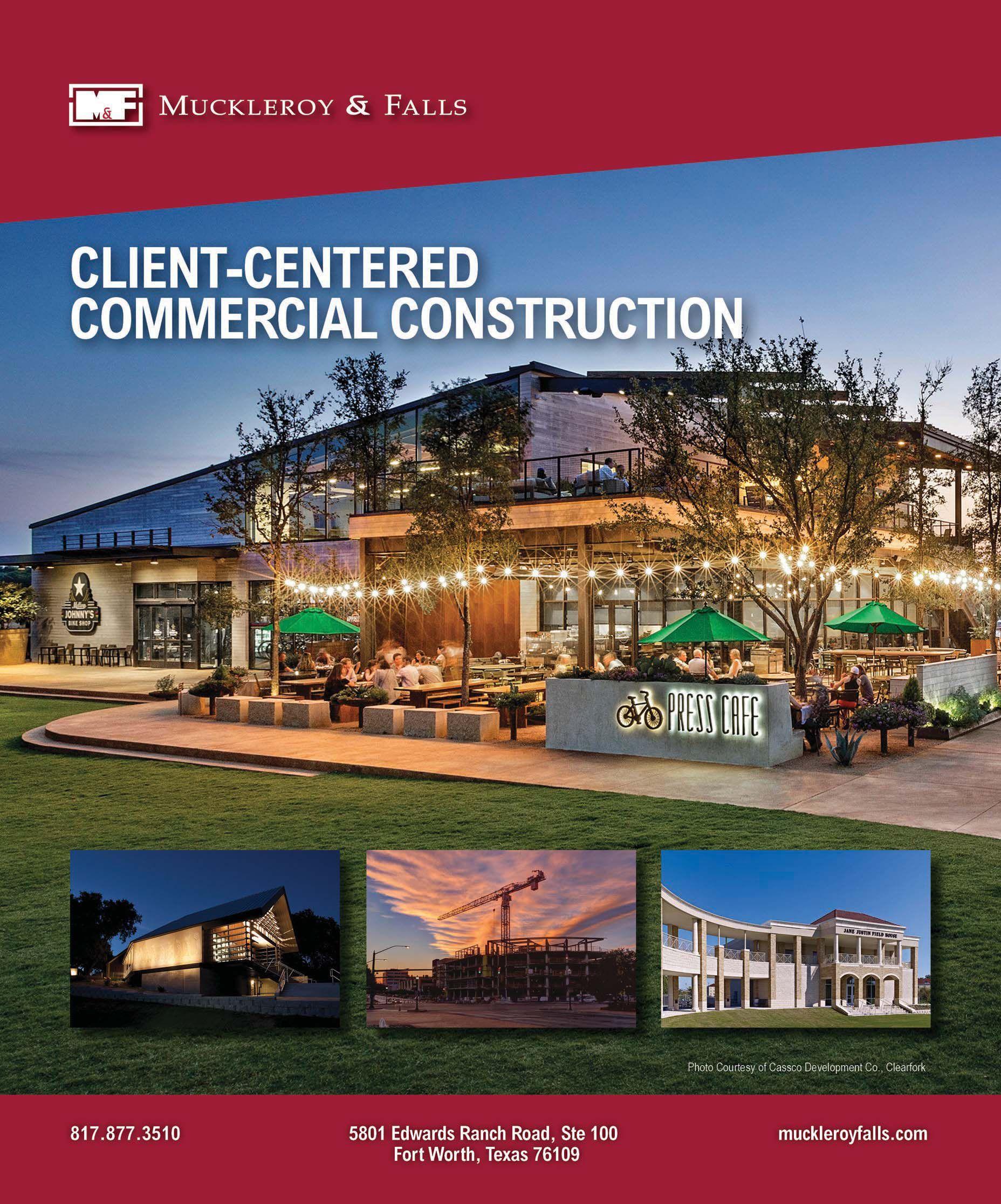
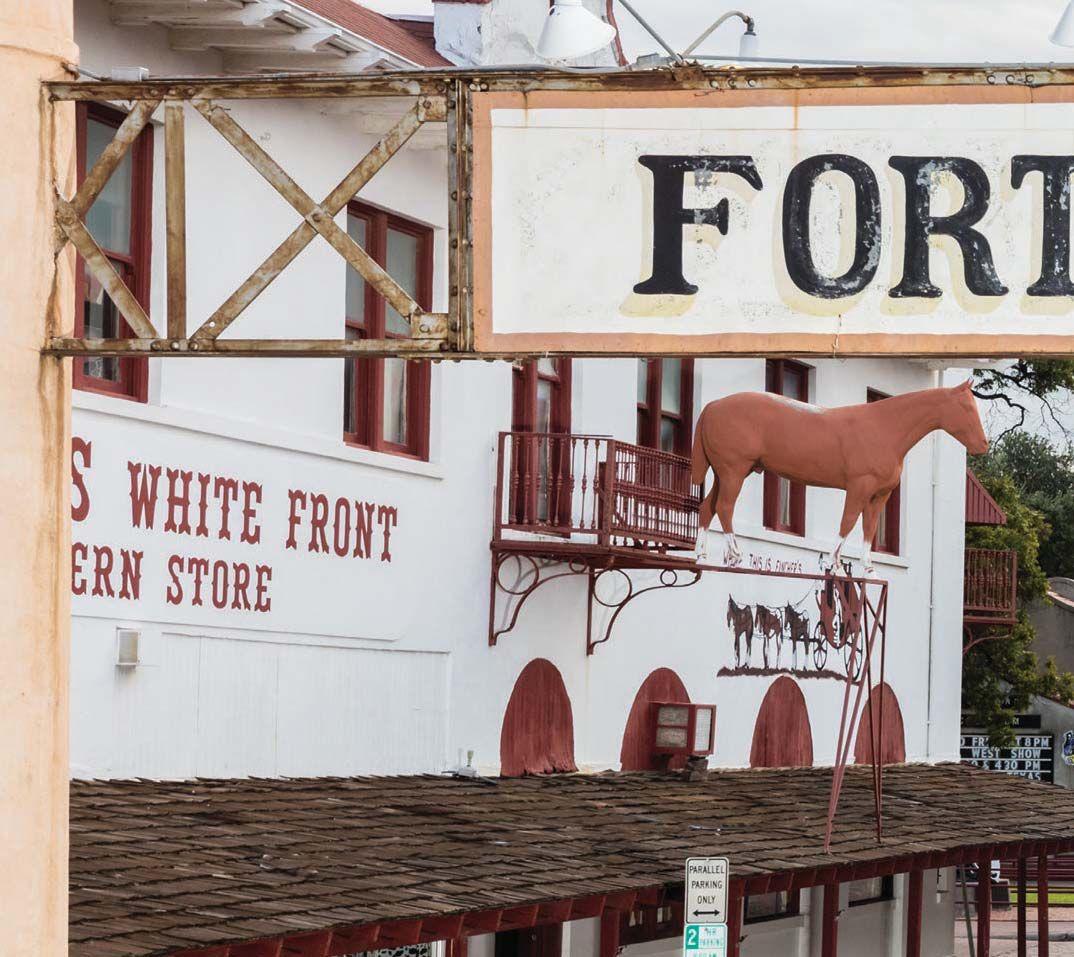



A BIG Rodeo THANK YOU to our amazing Roadies Team Members, Doctors and all the incredible patients that we serve in our communities. We appreciate the opportunity in ‘Bringing It’ every day to see you smile. On behalf of all of us at Rodeo, Thank You!
— Dr. Saam Zarrabi, Co-Founder & 2018 EOE finalist





Thirty-eight Fort Worth entrepreneurs set themselves apart from competitors in FW Inc.’s second annual EOE competition.
BY SCOTT NISHIMURA / PHOTOGRAPHY BY CHARLES LAMBERT
Here they are: FW Inc.’s 2018 Entrepreneur of Excellence class, 38 Fort Worth-area entrepreneurs who have distinguished themselves from competitors by sales and profit growth, ethical business practices, innovation, perseverance and community involvement.
It’s the magazine’s second annual EOE competition. A panel of judges independent from the magazine’s ownership and staff chose the finalists and winners in each of 11 categories, all of whom you’ll find profiled in this issue. The 38 finalists represented 33 companies and organizations.
Tony Ford, CEO of Success Fort Worth and a former Ernst & Young Entrepreneur of the Year, was the contest’s program director for the second straight year. The judges all Fort Worth business leaders — made their selections in late October and early November. Winners in each of the categories were kept secret until they were announced Jan. 11 in a gala at the Fort Worth Club.
The contest took in more than 350 nominations. Among the criteria to enter, eligible candidates must own and lead a private company based in the greater Fort Worth area; have been in business for at least two years; and have at least $1 million in annual revenue. There was no cost to nominate someone, complete an application, or
be considered for the award. The revenue requirement did not apply to the Supporter of Entrepreneurship category.
Although the entrants submitted financial data for the judging, this data was not provided to the magazine’s editorial staff for inclusion in these stories about the finalists. Any financial data included in these reports was disclosed during interviews by the entrants or through our independent, verifiable reporting. For example, several of the companies disclosed sales and growth data for inclusion on the 2017 Inc. 5000 list of fastest-growing U.S. companies.
Entrants must be CEOs. Dual nominees for a specific company were allowed if each has half ownership. In the Supporter of Entrepreneurship category, two honorees per company or organization were allowed.
This year’s categories: Commercial construction; health care and life sciences; hospitality; manufacturing and distribution; media, communications and public relations; professional services; real estate; residential construction; retail services; transportation and logistics; and supporter of entrepreneurship.
Sponsors of this year’s competition: Whitley Penn, presenting sponsor; Origin Bank, supporting sponsor; and Frank Kent Cadillac, automobile sponsor.
COMPANY: GEODynamics
HQ: Millsap
EMPLOYEES: 375
WHAT THEY DO: Global technology and manufacturing provider of solutions for perforating, downhole completion, intervention, and wireline solutions for oil and gas wells
David Wesson’s December to remember: Oil and gas entrepreneur sells a leader in downhole solutions for more than $500 million.

DAVID WESSON WAS HAVING A GOOD WEEK WHEN HE VISITED OUR FORT WORTH OFFICES FOR HIS ENTREPRENEUR OF EXCELLENCE INTERVIEW. Days later, he agreed to sell his GEODynamics, a leader in solutions for downhole oil and gas well completion, for $525 million.
Wesson and his investors, including Lime Rock Partners and Shell Oil, sold to Oil States Industries. His first partners came on board a year after Wesson founded GEODynamics in 2004, and Wesson and his wife held 20 percent of it at the sale announcement.
“We had some unique technology (Shell) wanted to help develop,” Wesson, 57, an engineer, said, calling the technology a “game-changer.”
Last year was a “barnburner year,” Wesson
said. In 2015 and 2016, the company shrunk, but aggressively re-invested in R&D.
“We are an engineering company,” Wesson said. “We are a bunch of geeks. We doubled down on R&D; we managed the company purely on cash flow. In 2015 and ‘16, all we really worried about was cash in the bank.” In 2017, GEODynamics doubled its workforce to about 375 from about 200 in 2016, Wesson said.
“The rig count is not the real key to our growth. They started drilling longer laterals and were more efficient around those lower completions. Our technology helps.”
The company’s U.S. business does about $20 million revenue per month, and its international business about $1 million, Wesson said.
Wesson grew up on a farm near Waxahachie. “I learned how to weld and do most
anything required at a really young age,” he says. At 16, he roughed out horse trailers for $100. “Saturdays, I could rough out two at $100 per trailer. I turned myself from employee to contractor at 16.”
Wesson holds an engineering degree from Texas A&M and an MBA from SMU. An inventor, he holds eight patents.
He wrote the business plan for GEODynamics while waiting out a noncompete agreement.
The sale terms include $300 million cash, issuance of 8.66 million Oil States common shares valued at $200 million, and a $25 million, 18-month unsecured promissory note payable to the sellers. GEODynamics owners will repay $24 million in debt at closing. The transaction is expected to close during the first quarter of 2018.


COMPANY: Southwest Office Systems HQ: Fort Worth EMPLOYEES: 52 WHAT THEY DO: Document technology
Buddy and Vince Puente, sons of Southwest Office Systems founder Victor Puente, move the decades-old, cash-heavy company forward into next-generation technology.
VINCE PUENTE WAS 18, AND HIS BROTHER, BUDDY PUENTE, 20, WHEN THEY JOINED THEIR FATHER’S SOUTHWEST OFFICE SYSTEMS IN 1972. “Back then, we started selling electronic calculators,” Buddy Puente says. “Fifty pounds. Add, subtract, multiply and divide. $4,000.”
Victor Puente Sr., who died in 2015, founded the business in Fort Worth in 1964 as a typewriter repair company. The two boys grew it into what the company bills as the largest minority-owned, independent office equipment dealer in the Southwest. The company today does about $15 million in sales annually, with several consecutive years of double-digit growth, the Puentes say. “We love growth, but it’s a controlled growth,” Vince Puente says.
The family has followed the technology through the years. “My dad was willing to try everything,” Buddy Puente says. “We make mistakes, we learn from mistakes, we move on,” Vince Puente says.
The company is following smart office trends and figure to play

strongly in that business. Smart office technology has facial recognition and knows, for example, who’s in a meeting and is capable of making introductions.
“Once we break into 5G, that’s what’s going to be the gamechanger in our area,” Vince Puente says. “Our core products are going to continue to advance.”
Sharp MFD copiers, SOS’ primary product line, has developed the Skywell Atmospheric Water Generator, which produces pure drinking water from humidity by plugging it into the wall. “We’ve been researching it for the past six months, and we’re probably ready to go on that one,” Vince Puente says. SOS would lease the device for a monthly fee to its business clients.
The company is debt-free and has a large cash reserve, the Puentes say. “If you’re a company and you have debt out the wazoo, then you’re selling from a pressure position,” Vince Puente says.
COMPANY: Victory Awning HQ: Fort Worth
EMPLOYEES: 50
WHAT THEY DO: Manufacturer and installer of fabric and metal awnings; clients include Starbucks, La Madeleine, Chili’s.
Larry Buck grew up poor, but he parlayed opportunities into a strong awning business.
LARRY BUCK’S TIMING COULDN’T BE BETTER. GROWING UP POOR IN FORT WORTH, HE WAS INSTALLING A SKIRT AROUND HIS FAMILY’S MOBILE HOME WHEN A MAN HIRED BUCK TO DO THE SAME FOR HIS HOME. That put Buck into metal skirts, which led to awnings, which led to an ex-lawnmowing client writing him a $10,000 check so he could buy a commercial building.
“I borrowed $8,000 against it,” he says. He built his installation business, which led to manufacturing and wholesaling, which led to mobile gutters, which led to fabric awnings to go with his metal, which led to Buck’s sale of his company in 1985 to a Chicago firm. Which could have meant Buck’s retirement from awnings — “I bought rent homes and mobile home parks” — if the new owner hadn’t mismanaged what Buck sold it.
A decade ago, Buck went back into awnings with partner Earl Gauntt, a childhood friend who was Buck’s first employee in the old firm. They went into hock on a building for $1.6 million and built a promising backlog after one week back together. “Lo and behold, the Barnett Shale came along,” Buck, 68, says.
That meant insulation blankets for urban drill sites. A customer ordered $250,000 in blankets for a client. Victory Awning took a $125,000 deposit and delivered that product. “Then

they balked on the second” piece, Buck says. Chesapeake Energy, end user, gave Victory the deal.
Victory bought two 18-wheelers for the contract. “We were on 70 drill sites. We paid every debt off.”
The shale started slowing, but a buyer took Victory’s blanket business equipment off its hands. The timely sale — natural gas prices dropped months later — “flushed us with cash” as awnings grew, Buck says.
Victory installs awnings in 15 states and sends pre-packaged ones to end users in 20. Starbucks, La Madeleine, and Chili’s are clients. Victory does $7 million in annual sales, off its $12 million Barnett peak, but is debt-free, Buck says.
Victory's health plan pays for employees' prescriptions and doctor visits. Victory buys back-to-school clothes and supplies for employees' kids, and pays vendors within 10 days of invoice and subs a day after invoice. “We got God in our life; we're about our employees,” Buck says. Victory also hires people with felony backgrounds. “We’ve got a couple of guys who would die for us."
Buck owns 52 percent of Victory, Gauntt, 48 percent. Buck’s daughter, Chandry, is COO. “I suspect what will happen at some point is my daughter will end up owning my stock,” Buck says. “I’ll take a lesser buyout, and that will allow the company to absorb Earl’s stock.”
COMPANY: The Good Contractors List HQ: Mansfield
EMPLOYEES: 6
WHAT THEY DO: Consumer site that sells listings to contractors who have been vetted and determined reliable by the company
Entrepreneur comes back from near death to build a consumer site that promotes vetted contractors and backs it with a $10,000 guarantee.
HERE’S AN UNUSUAL TAKE ON FINDING AND HIRING A CONTRACTOR, GETTING THE WORK DONE, AND ENJOYING EFFECTIVE RECOURSE AND A GUARANTEE IF THERE’S A PROBLEM.
That’s what The Good Contractors List sells. You find and hire a contractor through its gclist.com site and have the work done to your satisfaction. Good Contractors List takes it a step further: If you have an unresolved problem, go through the company to get it solved. If the company still can’t fix the problem, it guarantees a fix up to $10,000.
“We get into the middle of something just about every day,” Hill says. “And we stand tall for that money. The only thing we ask is that they follow through our process.”
The Good Contractors List vets contractors before it sells them membership on its site and supports contractors with an ample advertising budget. It’s got about 250 contractors signed up, who pay $350$750 a month for the placement on a one-year contract. Pricing varies by how many areas and service headings a contractor wants to appear under.
The site gets about 10,000 visits a month today and does about $2 million in annual revenue, Hill says. He estimates he’s had to pay less than
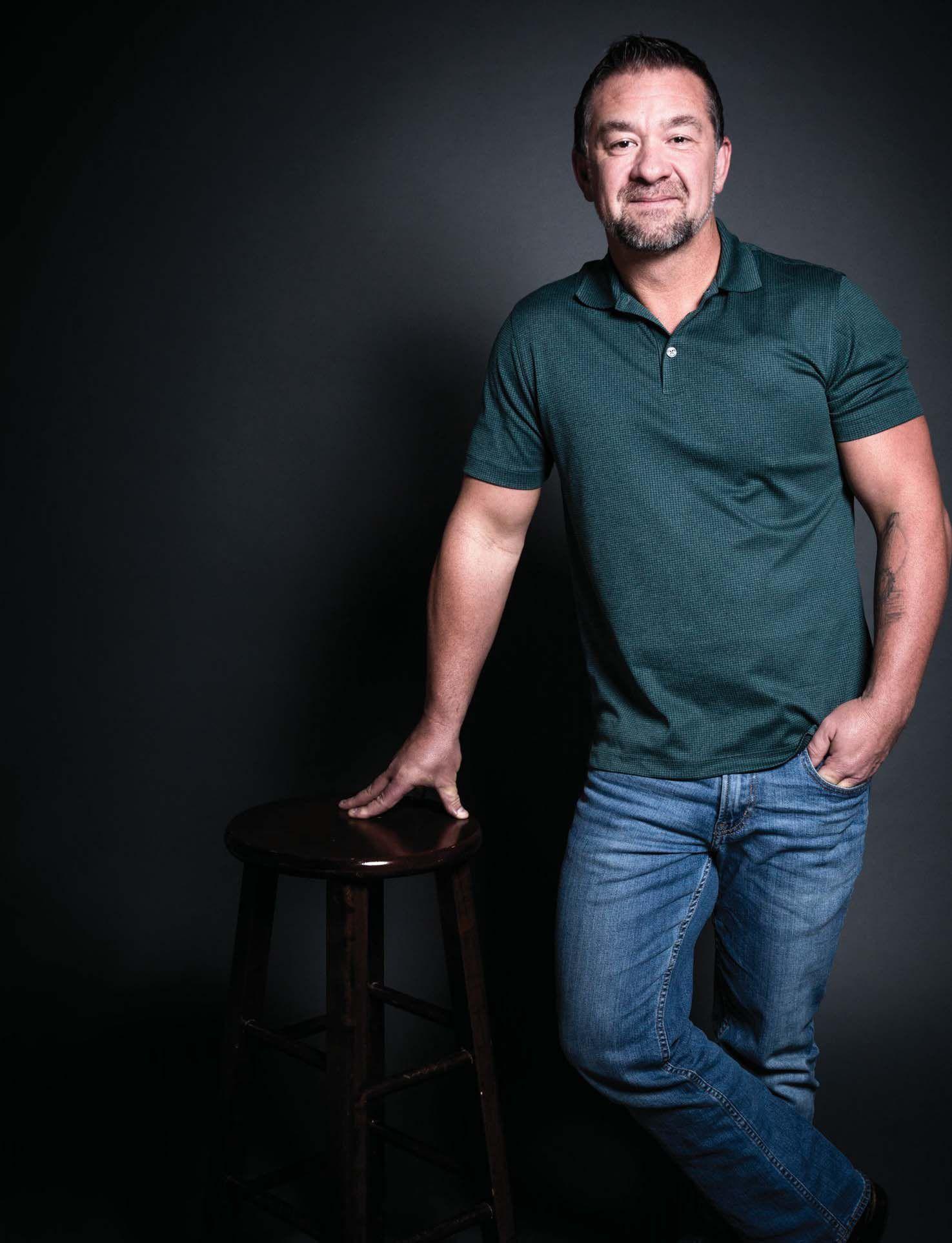
$50,000 against the guarantee over the company’s life.
That’s a big step up from meager beginnings in 2011, when Hill suffered a near-fatal heart attack and left his job several months later to start the Good Contractors List. His heart was 100 percent blocked in one artery and 99 percent blocked in the other; several stents, pacemaker, and a big weight loss later, Hill is back and his company is growing.
“God did some incredible miraculous things and basically gave me the option of staying or going,” Hill, 49, whose heart is functioning at about 25 percent today, says.
Hill says he thinks the site can handle 750-1,000 DFW-area contractors. He wants to limit the number of contractors he lets in. “I want it to be valuable” to the contractors, and he also has to limit his exposure to the guarantee, he says.
Good Contractors’ guarantee sets the company apart from competitors who offer digital access to lists of contractors, Hill says.
Contractors whom the company lets onto the list fall between uninsured handymen Hill calls “buck in a truck” and big contractors whom Hill feels spend too much time upselling. “We shoot for that middle guy that’s honest, that wants to have his name on it,” Hill says.
John and Linda Askew, in their fourth decade of building homes, keep their fine-tuned model moving.
JOHN AND LINDA ASKEW STARTED BUILDING HOMES 35 YEARS AGO, AND THEY LIKE TO SAY EACH IS ONE OF A KIND. “Every house we build is a prototype,” John Askew says. “We’ve never built this house before.”
These days, the Askews — John is 60, and Linda, 61 — are beginning to build in the Edwards Ranch development off of the Chisholm Trail Parkway and Bryant Irvin Road, with price points ranging between $1.2 million and $1.5 million.
“Everybody wants to be near Bryant Irvin Road,” John Askew says.
The company has also been chosen as one of the builders in the custom section of the emerging Walsh Ranch development in far west Fort Worth. Askew also has been chosen by 7-R Ranch in Palo Pinto as its
official builder.
The Askews build about 20 homes per year and have racked up an average $17$19 million in sales the last two years, the Askews say.
The company’s service begins when the prospective customer is looking at land, and Askew often helps clients select their sites.
Then the company takes clients through the design process, ensuring the builder and customer agree on plans for a home that can be brought in on budget without significant change orders.
“We prefer to work with our clients and the plan designer or architect,” John Askew says. “We hold their hand all the way through the entire plan design, selection and build process. It’s part of our service.”
The company pays its vendors every
COMPANY: The John Askew Company HQ: Aledo
OWNERS: John and Linda Askew
EMPLOYEES: 19
WHAT THEY DO: Custom luxury homebuilder

Friday. “We have great subcontractors and suppliers that we have developed relationships with over the years and, since we pay our suppliers every week, they can pay their people timely too,” Askew says.
“We seldom have a problem finding good subs to work for us, due to the way we treat them and the reputation we have built.”
The couple began building homes in 1983 and took a short break for a few years before resuming 19 years ago.
The company also has a generous warranty and one employee who’s dedicated to warranty service and other post-construction work.
“We believe this is part of what helps us have so many repeat and three-peat customers, as well as many referrals,” Askew says. “We love making customers happy. It hurts my feelings if we can’t.”
COMPANY: Magnolia Fence & Patio HQ: Fort Worth
EMPLOYEES: 82
WHAT THEY DO: Fence, patio, and landscaping

Robert Whittaker leaves a good lawn and landscape business in Lubbock to join his twin brother, Michael, in Fort Worth, and the two build a thriving construction and landscape business.
ROBERT WHITTAKER HAD AN 85-EMPLOYEE LAWNMOWING AND LANDSCAPE BUSINESS IN LUBBOCK AND $3 MILLION IN ANNUAL SALES WHEN HE LEFT TO JOIN HIS TWIN BROTHER AT THEIR LANDSCAPE BUSINESS IN FORT WORTH SIX YEARS AGO.
Together Robert and Michael Whittaker had $400,000 and six employees their first year in business. They added fence and patio to the landscape business. And they ended 2017 with $8.5 million in sales and 82 fulltime employees.
At 33, Whittaker says he’s enjoying the entrepreneur’s life. “I’ve never taken a paycheck from anybody in my life,” he says.
The brothers are equal partners in both the construction and landscape companies. Magnolia Fence and Patio specializes in custom wood and iron fences, iron fabrication, drive gates, stone work and pergolas. Their Mean Green Lawn and Landscape specializes in property maintenance and landscape installations. The companies serve customers within 60 minutes of their Fort Worth base.
Whittaker says the companies’ use of full-time employees instead of subcontractors is key in their growth. “The experience is what we are selling,” he says. “The customer can control the final look of the product, but it’s up to our processes and ultimately our team to execute an experience that will outlast any product or service we offer. We could not achieve this with subcontractors.”
The companies also combine some of their processes for efficiency. “Profit will always take care of itself if you take care of the people,” he says.
Robert Whittaker runs the fence business and Michael Whittaker, the landscape business. Fence and landscape are roughly equal parts of the combined business, Robert Whittaker says.
The companies cross-train their employees so they can take up the slack in both businesses. “When you hire on with us, we want it to be your career and your place of retirement. This is why we have families and friends on our team that have grown with us since day one.”
Nolan
NOLAN BRADSHAW’S ENTREPRENEURIAL JOURNEY HAS MOVED ALONG QUICKLY SINCE HE STARTED A LANDSCAPE BUSINESS IN EIGHTH GRADE. “I had my parents trail around my equipment because I couldn’t drive,” he says.
Bradshaw hit a few bumps after graduating from Texas Tech University with a master’s in architecture and an MBA. Laid off from his first two jobs during the recession – “I was young, hardly employable,” he says – he landed at the Fort Worth development firm Trinity Works for five years. While there, he started Cornerstone as a consulting business. Cassco, developer of Clearfork on the former Edwards Ranch, became a Cornerstone
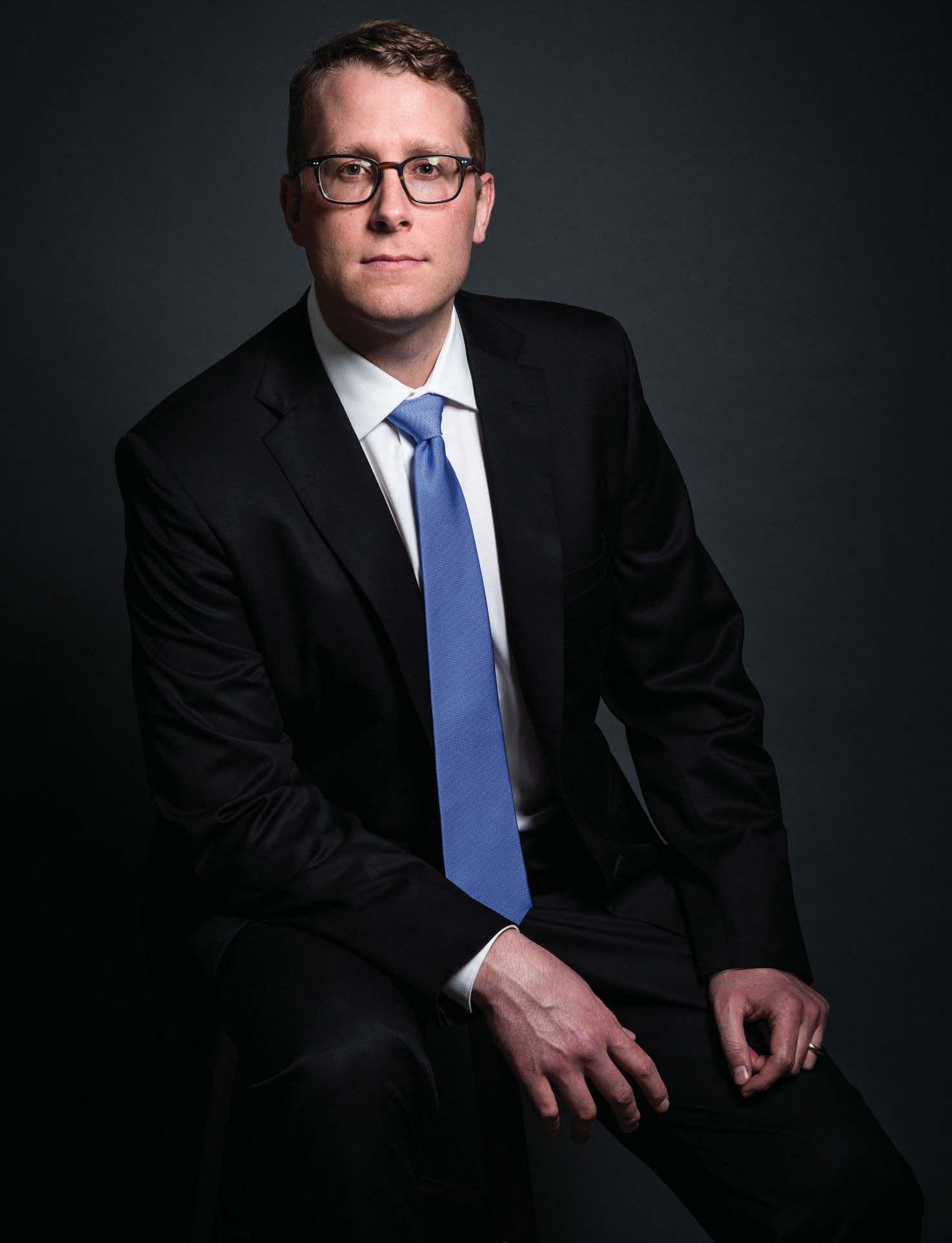
client in 2014; Bradshaw worked on financial modelling and design review. Finally, Bradshaw went off on his own.
Today, Cornerstone’s clients include Clearfork, the Viridian development in Arlington, and Huffman Builders of Plano. Cornerstone takes the lead in the development, architecture and construction of its clients’ projects, and it specializes in urban villages.
“We can control construction costs from the process from Day One, from the napkin,” Bradshaw, 33, says. He builds incentives into his agreements to come in under budget. “My favorite part is talking to investors, ownermanagers, and figuring out what they need. Getting this project to work in the market scenario so they can be in the return business and the real estate business.”
COMPANY: Cornerstone Projects Group HQ: Fort Worth
EMPLOYEES: 8
WHAT THEY DO: Development, architecture and construction of real estate investments
Bradshaw has eight employees, including himself. They include a director of architecture, director of construction, three project managers, an associate project manager, and director of marketing and business development. He recently expanded his office to allow up to 15 employees. “We have a staff that’s amazing, because they’re all designers and builders,” he says.
North Texas’ strong economy means a lot of growth potential for Cornerstone. “North Texas is easy because it’s so hot,” Bradshaw says. “Everyone from California to Boston is looking to put more money into Texas.”
The hot economy also means it’s tough to find people. “You can’t find someone,” he says. “If I lose someone, it’s because they’re being paid 30 percent more.”
COMPANY: Byrne Construction Services HQ: Fort Worth
WHAT THEY DO: General contractor

More than 20 years into owning Byrne Construction Services, John Avila still relishes the work.
JOHN AVILA REMEMBERS THE MOMENTS WHERE HE FIGURED OUT HOW TO COME UP WITH A $1 MILLION DOWN PAYMENT TO BUY THE THOS. S. BYRNE CO. MORE THAN 20 YEARS AGO. “We had just taken everything we had and cashed it in, but we were still $250,000 short,” he says. Avila, then an executive vice president at Manhattan Construction, revisited three subcontractors who he’d had lunch with about his interest in buying Byrne, a decades-old company that had declined.
“They threw it in,” he says. “No equity. As a loan. When that happens to you, you learn to give back. We retired all debt in three years.”
Avila, now 70, entered construction after five years in the Army, including a tour of Vietnam, where he was promoted to captain at 20. (He later served in the National Guard, and was promoted to brigadier general.) His first job was for Linbeck, building the South Texas College of Law in Houston, where a boss named him project manager. “He said, ‘You’re an officer, you must know something about leadership,’” says Avila, who became vice president of operations and accumulated shares he cashed out to buy Byrne.
Avila was looking to move on from Manhattan when his subcontractor friends alerted him to the possibility that Byrne might come up for sale. Founded in 1923, the company’s volume had dropped off. “If it had continued, it probably was going to go into the ground,” he says.
Avila bought Byrne in 1995 and put military esprit de corps to work.
“We have goals, like the military,” he says. “We get there, then we celebrate. We’ve had little turnover.” Five executives have ownership positions.
Avila put a shot of energy into Byrne’s sluggish marketing and looked to revitalize relationships with old clients. “People loyal to us, like Tandy, American Airlines, said we’ll give you a shot,” he says.
He got the company certified as a minority-owned enterprise. “We did not really want to flaunt that,” he says. “But it was an extra arrow.” It worked. Texas Instruments, who he’d courted for years at Manhattan, invited him over.
The company’s growth shot up over five years. In the late 1990s, Byrne was selected as a construction manager at DFW Airport. Through downcycles, Avila kept Byrne focused on staying midsized, not overreaching. “That helped us through the recessions.”
Byrne has about $450 million in contracts and $200 million in annual revenue. Avila has served on numerous community boards and engaged employees in building Habitat for Humanity homes and playhouses for Child Advocates of Tarrant County.
In recent years, he let his son Matthew Avila take over as CEO. Son Paul Avila is COO. “They were shocked at how easily I let go,” says Avila, who remains active in business development and mentoring the company's executives.
Harold Muckleroy, 38 years into his real estate career, kicks Muckleroy & Falls into a higher gear.
HAROLD MUCKLEROY AND HIS BUSINESS PARTNER, MAX FALLS, STARTED REEVALUATING THEIR CONSTRUCTION COMPANY’S FUTURE IN 2012. With 10 employees and $10 million in revenue, they faced a question: “Are we going to ride this to the sunset?” Muckleroy recalls. “Or are we going to re-invigorate this company?”
The answer: Door No. 2. Son Zach Muckleroy, 38, was in the company and interested in assuming the helm at some point. And construction companies aren’t easy to sell. “You have a lot of goodwill” on the books, Muckleroy says. “We needed some contracts.”
The company closed out 2017 at about $80 million in sales and $80 million backlog. It’s pitching larger projects now: Its typical project is $7-$8 million, Muckleroy says, compared to $1-$2 million five years ago. Muckleroy &
Falls now has 50 employees. Two other senior managers – Taylor Hale, 34, and Ben Austin, 38 – have joined Zach Muckleroy as owners.
Muckleroy and Falls diluted their shares to create equity positions for Zach Muckleroy, Hale and Austin, Muckleroy says. At some point, the company will conduct a valuation, then decide “what is a fair purchase price for the next owners," Muckleroy, 65, says.
The company’s 2018 expectations: up to $105 million in sales. “We are in the conversation for virtually every major job in the area, and we are on track to achieve top-five general contractor in Tarrant County vision,” the company says.
Muckleroy’s introduction to Fort Worth’s business network began while in college at TCU. Friend Larry Lydick connected him to TCU alum and legendary oil and gas wildcatter Dick Lowe, who gave Muckleroy a summer job.
COMPANY: Muckleroy & Falls HQ: Fort Worth EMPLOYEES: 50
WHAT THEY DO: General contractor

After TCU, Muckleroy went to work for Lowe in marketing and sales. “I had to write reports to investors on their investment results."
In 1979, Muckleroy moved out on his own, into real estate development. His father suggested combining that and contracting. “You’re in a position to control your costs,” he says.
His first deal: a 40,000-square-foot multitenant, light industrial warehouse. He arranged financing at 12 percent interest and rates on the loan grew to 21 percent during construction. Lowe was an investor. It was fully leased in six months. The group kept it for five years and sold it at a significant return.
What he learned from Lowe: “He’s a determined man, unbelievably strong work ethic, an eternal optimist. You can’t go drill a bunch of dry holes and still go drill the next well unless you’re an optimist."







COMPANY: Boardroom Salon for Men HQ: Southlake
EMPLOYEES: 260 corporate, 100 franchise
WHAT THEY DO: Operators of 27 men’s grooming salons across Texas, Tennessee, Oklahoma and Georgia
BRUCE SCHULTZ EXPECTS HIS BOARDROOM SALON FOR MEN, A SOUTHLAKE CHAIN OF UPSCALE SALONS, TO OPEN SIX OR SEVEN NEW STORES THIS YEAR ON TOP OF THE 27 IT HAS NOW. That’ll be the front end of about 25 stores Schultz plans to open over the next three years, focusing on the Southeastern United States and Phoenix.
potential opportunities beyond one store.”
The company had a busy 2017, opening four salons and the Brighton Barber Institute, a barber school that offers the Barber Cross Over program to all interested cosmetologists.








one to three months, Schultz says. Average five-year return on investment exceeds 45 percent, Schultz, 52, says.
“The growth from one salon to 35 corporate-owned locations will be achieved through operating cash flow and low-interest bank debt,” the company says.
Schultz’s model: corporate stores, no franchises. “We are focused on corporate growth,” he says. “We are not looking at new franchises. We’re selling an experience. We want to keep the client experience consistent and provide opportunity for our team. It makes us much more attractive to a potential team member when there are
Boardroom touts its experience as combining the “community and nostalgia of old-time barbershop, outstanding service and professionalism, and a 1920s country club environment.”
Its salons deliver haircuts, shaves and spa services in dark wood-paneled environs, with plush leather chairs, pool table, chess board, and complimentary beverages. Men can pay one price and enjoy unlimited haircuts for a year or six months.

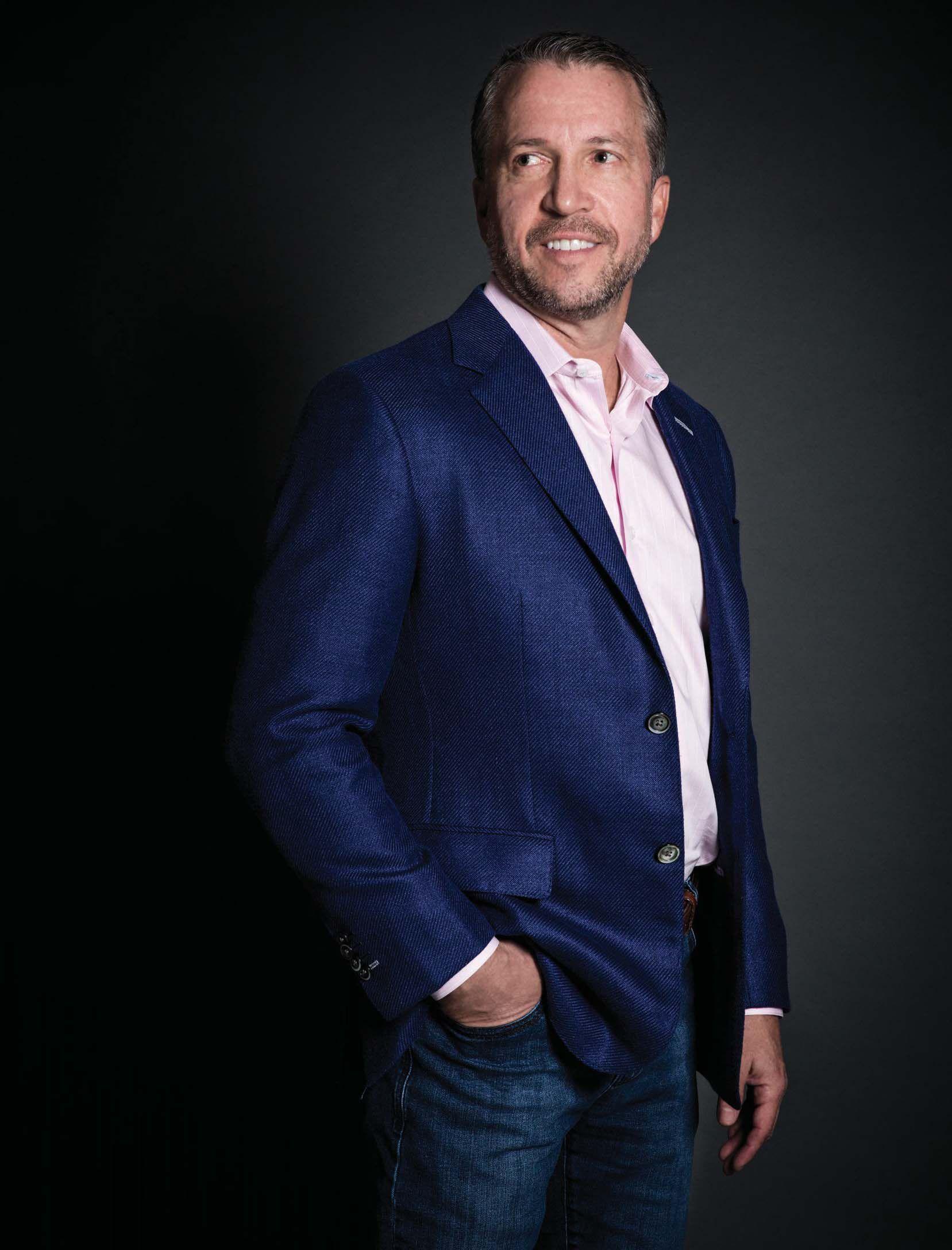
Most salons reach positive cash flow in
To attract the best employees, Boardroom’s business doesn’t call for commissiononly barbers or booth rentals. It provides a “stable” combination of base pay, commissions, bonuses, health insurance, paid time off, and opportunity to advance into management. The Boardroom is also actively involved in charity, reporting it gave more than $400,000 in complimentary services to local and national charity in 2016.
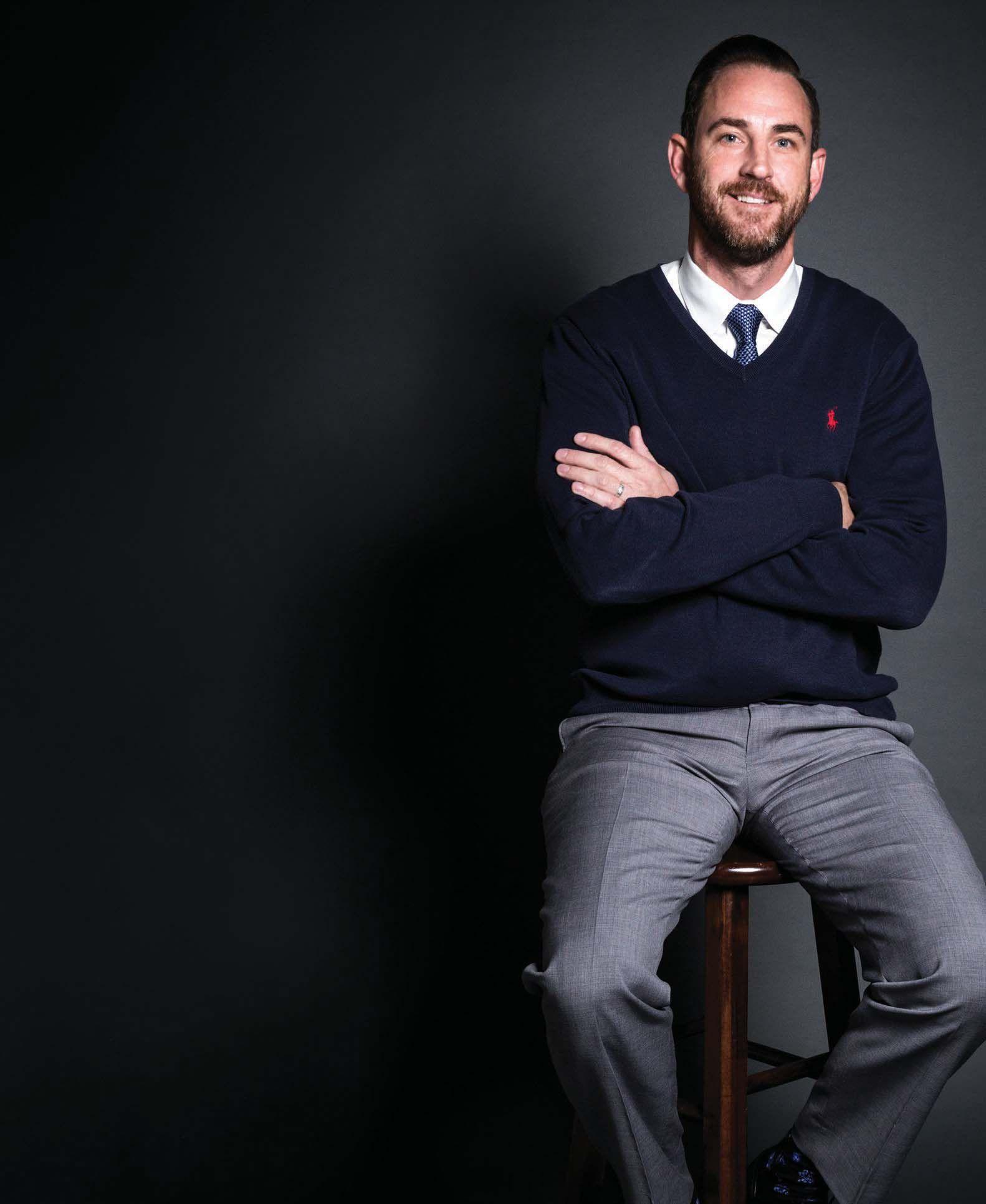
COMPANY: Freedom Powersports HQ: Fort Worth
EMPLOYEES: 330
WHAT THEY DO: Sell powersports equipment, parts, accessories and service through 14 dealerships in North Texas, Georgia and Alabama
Kevin Lackey taps the brakes on growth to reload on managers, build operational capacity, and make his existing powersports stores more profitable.
IT WAS EASY FOR KEVIN LACKEY TO IMAGINE OWNING AND RUNNING SIX POWERSPORTS STORES. He was running six for another owner when he decided it was time to try and buy the man’s Weatherford store.
“I went to him and told him he needed to sell me that dealership, or I had to leave the company,” says Lackey, who’d worked for the company 14 years out of high school. “I got very emotional and told him it was my dream.”
The owner agreed, but only if Lackey also agreed to buy his Hurst store, too. Lackey and his wife mortgaged their home and drew down lines of credit to come up with $250,000 of the $500,000 in equity they needed. Through a lender, he found investors who came up with the other half. “We risked everything,” Lackey, 39, says of that moment five years ago.
Lackey quickly grew the company opportunistically, adding a store by taking over the departing owner’s inventory and equipment; buying two more from an owner exiting because of divorce; taking on his former boss’s McKinney store; and, finally, closing on a group of stores in Georgia and Alabama brought to him by a broker. “My partner said, let’s do it,” Lackey says.
The company rocketed up to $150 million in sales by the end of 2015, and then Lackey stopped buying more stores to refill his management pipeline, build an accounting staff, and establish processes and cost controls. “We did all that growth with no CFO,” says Lackey, who has a new CFO.
To develop new managers, Lackey zeroed in on his “middle 60 performers,” the group below his top 20 percent. He’s layered on reviews and accountability. And he’s looking outside the company.
Lackey’s strengthened employee training and focused on making existing operations more profitable. “As far as cost controls and managing waste and making mistakes, we have that dialed in."
For 2018, Freedom is buying two powersports companies in Johnson County and Farmers Branch and merging them into existing stores. He’s building a new dealership in McKinney and will consolidate his two stores there.
Lackey says he tries to imbue the company with what he believes is his greatest strength.
“I believe in people,” he says. “I’m patient. I wake up every day humble and with a desire to win. God's blessed me with this incredible ability to connect with people.”
COMPANY: University Car Wash EMPLOYEES: 35
WHAT THEY DO: Full-service car wash

A physician who owns a car wash? No, we didn’t ask if this was a “Breaking Bad” thing.
AS AN EMERGENCY PHYSICIAN IN FORT WORTH, KARIM JAMAL MUST HAVE HIS HANDS FULL WHEN HE’S ON DUTY. So, of course, Jamal, in search of an entrepreneurial jolt, bought the University Car Wash in Fort Worth three years ago.
“I saw this beautiful piece of property behind the Apple Store” at University Park Village, Jamal, 53, says. “They sold me the car wash for the value of the business, and they had no idea that they were sitting on $50 [per-squarefoot] dirt. I bought it for the land.”
Jamal says he paid $3.25 million — $1 million of his own and $2.25 million in an SBA loan.
During his due diligence, Jamal took the deal to a consultant, who estimated it would cost $3-$4 million to build a similar facility, without the lube shop that the University Car Wash has. Taking into account land value, barriers to entry, location and lack of competition, Jamal took the leap. He says he thinks the car wash is the best use for the property long term. “It’s been washing cars for 25 years; car washes are local monopolies,” he says.
After he closed the purchase, Jamal added one service indicator: At 1 p.m. each day, the cashier approaches one customer and checks his ticket to see how long he’s been waiting.
Employees make at least $10
per hour, and the general manager has a bonus pool, he says. Jamal dumped the sales commissions that ticket writers made and made sure 17- or 18-year-old girls manned those positions, believing they’d be most welcoming and – without the commissions – wouldn’t be worried about upselling. Jamal also made the rounds of business organizations, introducing himself and handing out coupons.
The car wash was processing 80 cars per day at about $80,000 in monthly revenue, Jamal says. Today, it’s processing about 200 cars per day and generating about $200,000 in monthly revenue.
You won’t see Jamal hanging around the car wash. “I have great management; I just set up processes,” says Jamal, who promoted his general manager out of the lube shop.
Jamal, who wants 10 percent return on investment, says he’s happy “if they pay the note, which they do, and I’m able to take my 10 percent out.”
It wasn’t Jamal’s first deal. He earlier assembled two pieces near Montgomery Plaza and groundleased them for what became Blue Mesa Grill's new location.
Jamal says he’s not looking for other deals. He recently accepted a faculty position at the new TCU-UNT Medical School. “I’m focusing on medicine,” he says.
COMPANY: Ensemble Coworking HQ: Fort Worth WHAT THEY DO: Near Southside coworking space for entrepreneurs, freelancers, small business and telecommuters

Two ope

Two solo entrepreneurs look to expand Fort Worth’s assets for entrepreneurs, opening a coworking space on Fort Worth’s Near Southside.



TAMARA PAYNE AND DAWN SHANNON, SOLO BUSINESS OWNERS, KNEW SOMETHING OF THE ISOLATION SMALL BUSINESSPEOPLE CAN FEEL. That led them to a search for a coworking space they could launch in Fort Worth for entrepreneurs, freelancers, small businesses, and telecommuters.








range up to $300 for a dedicated desk and $750-$850 for dedicated offices. A media room also is available for rent. Ensemble’s goal is to help entrepreneurs get ahead – faster – by networking and collaborating. Fort Worth benefits by adding more coworking capacity to its inventory of assets for entrepreneurs, Payne and Shannon say.
“There was a major gap between pre-startup and midgrowth,” in Fort Worth, Payne, a former associate TV news producer who sold Mary Kay Cosmetics on the side and then opened a marketing company called Payne Free Marketing, says. “There was no place to land.”
“Fort Worth deeply needed that space,” Shannon, a life coach, says. Entrepreneurs need to “be around other people.”
The pair’s startup costs were $125,000, which they managed through their own money, an SBA loan, rent abatement from the landlord Quarles Lumber, and help in finish-out from Quarles. On an operating basis, “we are profitable,” Payne says. “We are barely profitable.”

In April 2016, they launched Ensemble Coworking in a neighborhood strip shopping center at 1617 Park Place Ave. on Fort Worth’s Near Southside. The 5,748-square-foot space, a former physicians’ office, was in disrepair, but it set up well for coworking, with a patio and large training room, 12 offices, and parking. Payne and Shannon kept that setup, offering open-space coworking for up to 75 people, three conference rooms, and dedicated offices for varying monthto-month rents. Other amenities: virtual and traditional mailboxes and member events like monthly happy hours. Ensemble also hosts weekly Wednesday public meetings of 1 Million Cups, where budding entrepreneurs pitch their startups to a peer network.
Rents start at $150 per month for part-time open coworking and

Their 2018 goal: Open a second space in the suburbs. “We really want to serve the entrepreneurs that are in the suburbs,” Payne says.

ENTITY: Idea Works FW HQ: Fort Worth
WHAT THEY DO: Green and Spinner, entrepreneurs, are volunteers who are helping run Idea Works as its board redefines the organization’s mission.
Idea Works’ mission is unclear, but two entrepreneurs are doing everything they can to keep the incubator moving while the board debates its future.
SHERRY GREEN AND ALLEN SPINNER HAVE THEIR OWN GROWING BUSINESS TO RUN, BUT THEY’VE MADE THE TIME TO KEEP FORT WORTH’S IDEA WORKS INCUBATOR GOING WHILE THE ORGANIZATION’S BOARD DEBATES ITS MISSION. “We’re team players, so we pick up the slack,” Sherry Green says.
Green and Spinner, who are married, own Technology Team, a Fort Worth company they founded in 2003 that assists firms in coordinating relocations of digital assets. They’re also starting up a company called Computer Maids that will sanitize desktops, laptops, keyboards, and mice. When Idea Works launched in 2014 to help entrepreneurs and small business owners find and navigate paths to success, Green and Spinner moved their business onto the incubator’s South Side campus and have been in the thick as volunteer entrepreneurs in residence.
“We are very community-oriented,” Green says. “That is a core value of Technology Team. “It helps fund us to be involved in the community. It’s really easy to write a check. But when you give of your time, it’s a lot more important.”
Idea Works offers workshops, training programs, networking
events, access to mentors and coaches, and introductions to capital sources, and it’s incubated such growing companies as Modern Lantern and Mel/Arch the Architectural Studio. But its board is reexamining its mission and hasn’t yet hired a new executive director; the post opened a year ago when Hayden Blackburn left to join the TECH Fort Worth incubator on the same city-owned campus.
“We’ve stepped up our game quite a bit just to fill the hole,” Green says.
Green and Spinner ran their own assortment of businesses for years before Spinner ended up at a Dallas company and met Green there. “I needed some help, and Sherry ended up working for me,” Spinner says. They decided to start Technology Team after first spending a year examining whether they had enough capital and ensuring they were debt-free except for their mortgages.
The company today has three full-time employees and 17 part-timers.
At Idea Works, they mentor budding or would-be entrepreneurs and students in a range of areas such as writing, payroll, collections, business model, and networking. Sometimes, Green and Spinner help make introductions. “We just help them with everyday business,” Green says.
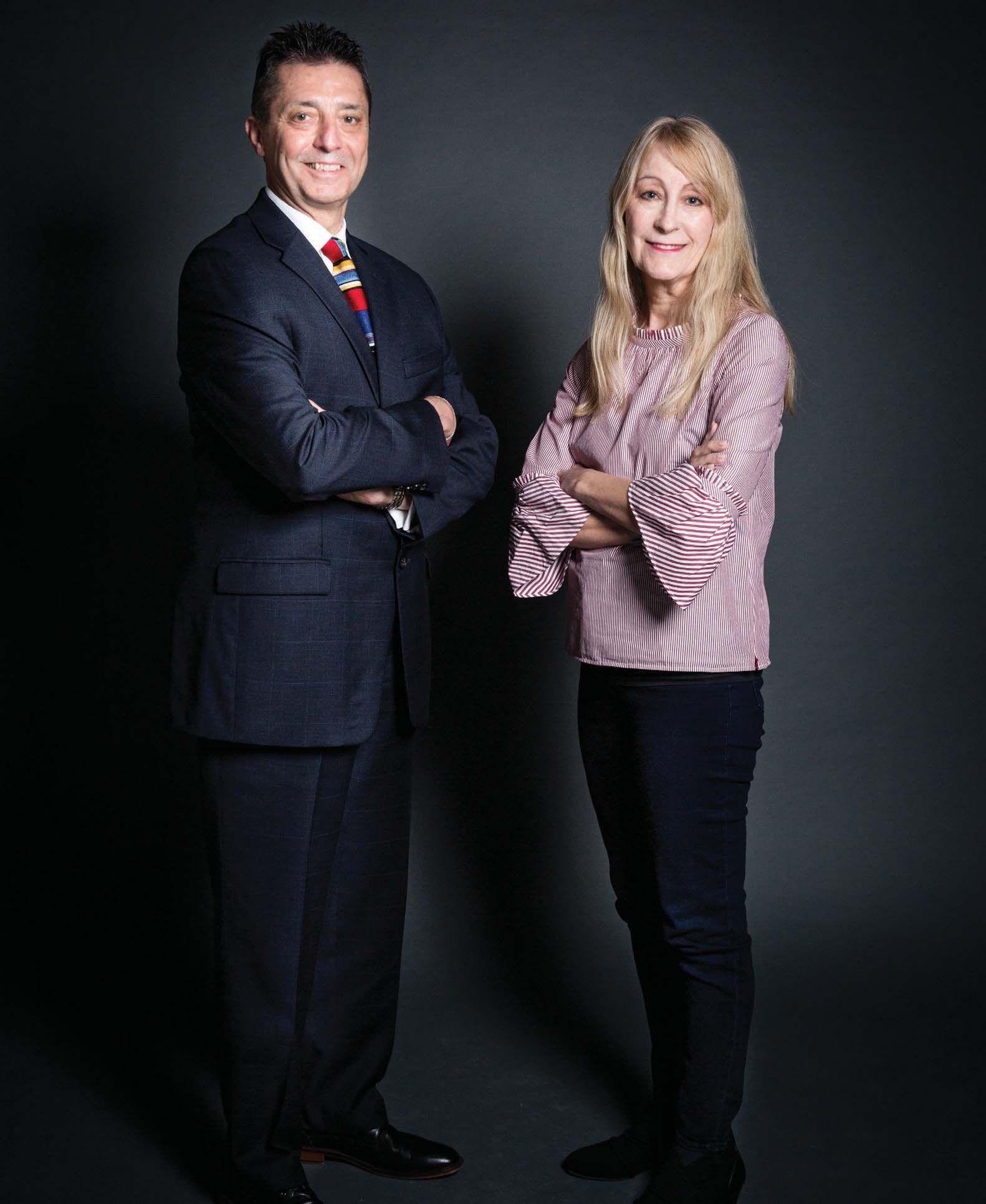
COMPANIES: ROI Associates, The Alternative Board Fort Worth HQ: Fort Worth WHAT THEY DO: Small business consulting
Two years in the Peace Corps as small business consultants turn out to be a springboard into helping others for entrepreneurs Ed and Valerie Riefenstahl.
ED AND VALERIE RIEFENSTAHL WERE IN THEIR LATE 20S WHEN THEY DECIDED TO TAKE LEAVE FROM THEIR CORPORATE JOBS AND GO INTO THE PEACE CORPS AS SMALL BUSINESS CONSULTANTS IN THE DOMINICAN REPUBLIC. “We both wanted to go international,” Valerie Riefenstahl says.
The experience – the Riefenstahls helped artisans, for one, improve their business models – changed their direction. After their two years there, Ed Riefenstahl went to work for the American Heart Association in Dallas, back where he met Valerie while the two were taking a class at SMU.
The two in 1992 launched ROI Associates to consult nonprofits and small business. In 2006, they took on the Fort Worth franchise
of The Alternative Board, where business owners are accepted as members and join an existing board of directors comprising other owners. Ed Riefenstahl also started a consulting program within the MBA at TCU’s Neeley School of Business and is on the full-time professional staff and adjunct faculty there.
Ed Riefenstahl estimates he’s racked up 13,000 hours of coaching since 2006. At TAB, the Riefenstahls have formed strong partnerships with Whitley Penn for tax and accounting help; Bourland, Wall & Wenzel for legal assistance; B2B CFO for CFO help; and Capital One Bank and SBDC Tarrant for access to potential capital. TAB holds a monthly TAB Business Bites education series and collaborates with the Fort Worth
Business Assistance Center’s Business Plan Competition. TAB also refers clients to the Cowtown Angels angel investment group for funding if there’s a potential fit.
Ed Riefenstahl is chairman of the board of the Fort Worth BAC Education Foundation, which runs numerous programs through the city-owned incubation complex in South Fort Worth, including the Idea Works FW small business incubator.
Riefenstahl recommended launching the BAC’s annual Fort Worth Business Plan Competition, now in its seventh year, and TAB offers membership on an existing peer board and coaching to the winner for one year. The Riefenstahls also provide volunteer coaching to BAC clients.
COMPANIES: Safety Seal Piston, Wesco Valve & Manufacturing Co., Baker Aviation HQ: Fort Worth
EMPLOYEES: 200
WHAT THEY DO: Manufacturing for oil and gas and other industries, air charter services

From manufacturing to air charters, Stanley Baker has had a great ride. Just don’t ask him about the Dairy Queens he owned.

ASK STANLEY BAKER JR. WHICH OF HIS COMPANIES HE’S MOST PASSIONATE ABOUT, AND HIS ANSWER MIGHT SURPRISE YOU.







and watching planes fly overhead.
“I won’t tell you about the Dairy Queens I owned once.”
After graduating from TCU, Baker joined Safety Seal in the East Texas town of Marshall and worked his way to head of marketing and engineering.

There are the manufacturing companies: Safety Seal Piston Ring Co. and Wesco Valve & Manufacturing Co. Baker’s father, uncle, and grandfather founded Safety Seal in 1951, and the company, which Baker still owns, marked his entry into business.














In 1973, Baker, by then a private pilot, negotiated the purchase of Wesco from a man he was ferrying to Dallas from Kansas. That company, which Baker also still owns, was a small repair shop and is now the leading manufacturer of engine valves in the country. Then there’s Baker Aviation, which Baker and his family started during the recession in 2008 after the charter company that leased their King Air turboprop went out of business. Baker Aviation is now a charter and aircraft management and maintenance company at Fort Worth’s Meacham Airport.



Baker estimates his enterprises together generate more than $27 million in annual sales and have 200 employees.




In 1970, Baker convinced his dad it would be easier to serve their far-flung oil and gas customers by airplane than car, so Safety Seal bought a single-engine plane, and Baker got his pilot’s license.
The Wesco purchase happened after a man Baker knew knocked on his hotel room door at a convention in Liberal, Kansas. The man needed to fly as quickly as possible back to Dallas Love Field, where he'd parked his car. Baker volunteered to fly the man, who owned Wesco and volunteered he was drawing interest from potential buyers.
“I said, ‘I don’t have a lot of money, but I’ve got good credit’,” Baker, then 33, recalls. “I knew the company. I knew the product. I knew the potential.”

“I’m most passionate about my manufacturing companies,” says Baker, 78, who dreamed of becoming a pilot while lying on the lawn of his boyhood home in Corpus Christi
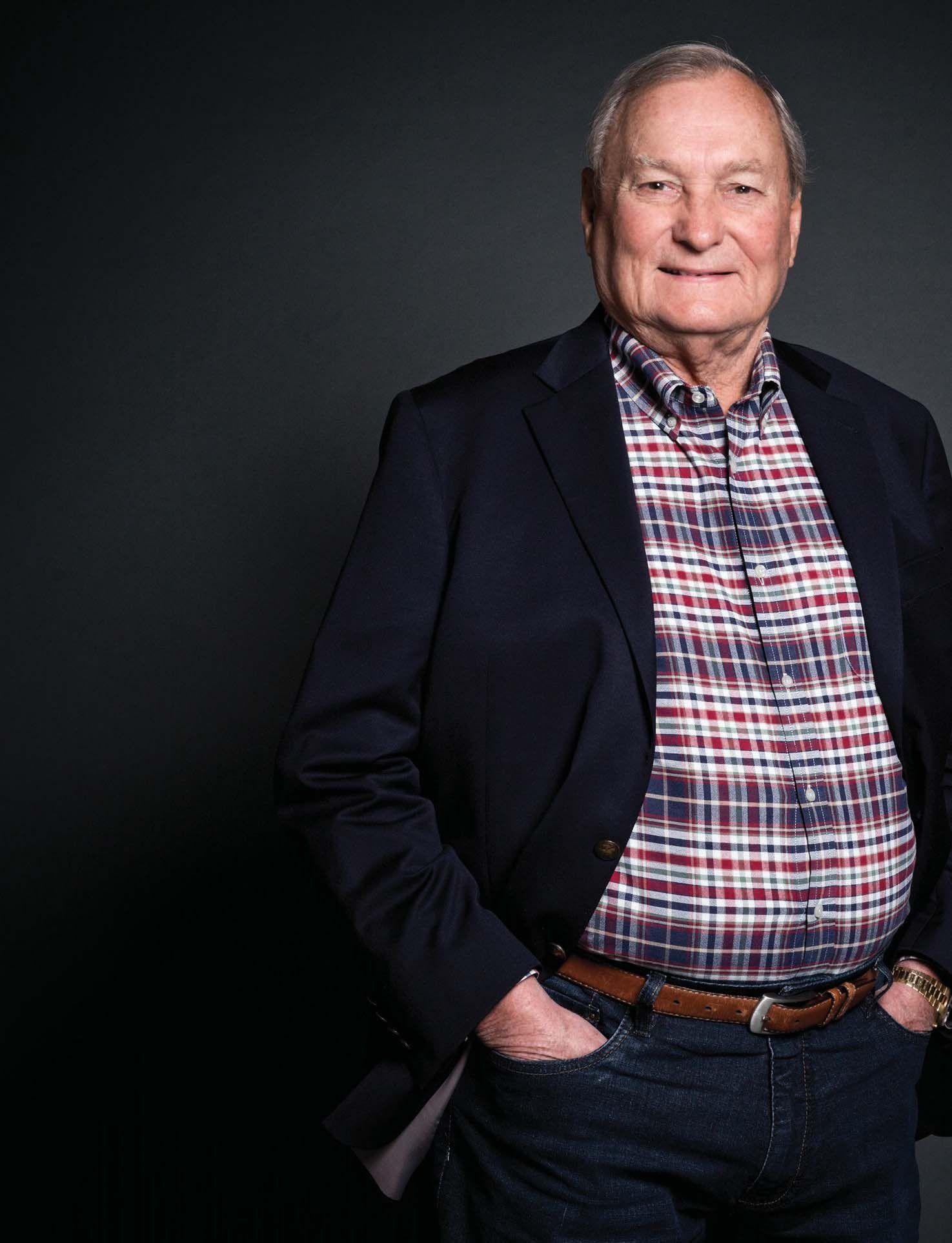
Baker’s father didn’t like the idea but helped his son buy the company. Baker and his children, Angela Baker Kocher and Stan Baker, started Baker Aviation. Stan Baker is president of Baker Aviation, and Angela Baker Kocher is GM. “It’s been an interesting ride,” Baker says. “It wasn’t something I laid out."
Matt Johnson draws on 10 years of working for an auto dealership, and a mentorship under its owner, and builds a $250 million business in cars, ATVs, and guns.
MATT JOHNSON’S ENTREPRENEURIAL CAREER – HE SELLS EVERYTHING FROM AUTOS, TO ALL-TERRAIN VEHICLES, POLICE EQUIPMENT, GUNS AND SPECIALTY TRUCK BEDS – HAS FEATURED SOME CONTINUOUS THREADS. One thing has led to another. “Every time somebody needs something, we don’t just get them what they need; we get into that business,” he says.
And Johnson is all about exceeding customers’ expectations. His Chevy and Ford dealerships in Grayson County run sales expectancy of nearly 600 percent, meaning he’s beating his manufacturers’ sales goals by six times. Johnson likes to call his approach to customer service “shock and awe.”
“If you’re on vacation in Colorado and you have trouble with your car, I’m going to bring you what you have,” says Johnson, retelling a story where this occurred.
Today, Johnson estimates his businesses
run about $250 million annually in sales. Not bad for a guy who got his start in college at TCU working as a porter for the auto dealer Jerry Durant in Weatherford.
“Jerry was a good mentor,” says Johnson, 45, who worked 10 years for Durant. “He worked me in every aspect of the dealership.”
Johnson bought Holiday Chevrolet in Whitesboro in 2003, tapping his home equity and briefly taking on a partner.
Johnson bought the Ford dealership in Whitesboro in 2009. The dealership sold 10 cars a month. The Chevy store sold 200 cars a year when Johnson bought it. Today, the two dealerships sell more than 5,000 vehicles annually.
Johnson bought a lagging powersports store in Sherman when a friend pointed him to it. He got into specialty beds for trucks – 3B Upfits – when customers asked him about it. Johnson got into police cars and equip-
COMPANY: Holiday Chevrolet, Holiday Powersports, Holiday Ford, Defender Supply, Defender Logistics, Defender Outdoors, 3B Upfits
HQ: Fort Worth
EMPLOYEES: 312
WHAT THEY DO: Auto sales; powersports; police cars and equipment; guns, accessories and training; specialty beds for oilfield trucks

ment – Defender Supply - after General Motors announced in 2008 it would close its smallest dealerships.
Johnson reviewed his contract and found GM wouldn’t shut him down if he had a large government contract. So, he pursued and won a State of Texas Chevy Tahoe police contract. He moved next into the guts of the police car — computer, radio, partition, lights. “I became a national distributor."
Cities then asked him to sell guns, gun racks, and ammo. This is how he and partner Eric Hove became dealers of guns, ammo and accessories and servicers. Finally, Johnson, Hove and a third partner Will James came up with the idea for Defender Outdoors, an allin-one store. Defender Outdoors now has two locations. With driverless cars attracting mega players like Google, Johnson sees no such competition in guns. “Nobody from Palo Alto, California, wants to be in the gun business.”

COMPANY: Reeder Distributors HQ: Fort Worth
EMPLOYEES: 105
WHAT THEY DO: Wholesale fuel, lubricants and shop equipment in Texas, Louisiana and Oklahoma
Fuel wholesaler Gary Reeder started with little but worked day and night to build his business.
GARY REEDER WAS WORKING FOR HIS UNCLE’S REFINERY OUT OF TCU WHEN HE DECIDED TO START HIS OWN BUSINESS IN 1973, SELLING AND DISTRIBUTING FUEL. He borrowed $5,000 to start the business. “I’d broker during the day and deliver in the afternoon and at night,” Reeder says. “My initial office was an engineer’s shack. I had to dig the ditch to run the electrical and phone lines to the shack.”
Reeder’s employees know the story well. “They know I had nothing when I started and that I would drive, load trucks, dispatch, do manual labor, or whatever needed to be done,” Reeder, 68, says.
Reeder Distributors has grown conservatively since then, diversifying where it sees opportunity. “In our 45 years in business, we’ve had one year in which we declared a loss,” he says.
Reeder attributes the company’s results to his conservative nature and a cornerstone value of honesty. The company’s mission statement says it’s a Christian-owned company defined by “who we are.” Reeder encourages employees to give back, throwing a Christmas party, for one, where the company matches their gifts to charity.
“My commitment to my employees, as long as I’m president and owner, is we will continue to grow,” he says. “I’m conservative by nature.
I would choose to pass on a lot of things, especially in recent years. Our business has grown so much, we can be more selective.”
Reeder's sons, Jason, 36, and Brent, 28, are in the business as executives.The company now is headquartered on several acres in Southeast Fort Worth, where it has a terminal and offices off of Loop 820. In 1985, Reeder expanded into lubricants. It also went into shopfitting, building a facility in Fort Worth that enables it to outfit car dealerships and lube shops. “We’re one of the largest equipment distributors,” Reeder says.
In the last few years, the company has moved into rural areas where it sees opportunity, like Waco, Mineral Wells and Brady, where it bought a company in 2015 for the potential of sales to customers serving the oil patch. The company does 45 percent of its business in lubricants, 35 in fuel, and 20 in shopfitting, which Reeder says has the highest margin.
Reeder believes the company can grow to 125 employees soon. He has very little exposure to the oil patch: 5 percent or less. “We’re starting to chase a little of that, because we see profitability,” Reeder says. “But we never invested too much in the oil patch. We had competitors who jumped to the oil patch. They had huge profitability to make, and then it ended.”
COMPANY: Advanced Spine & Orthopedics HQ: Southlake
EMPLOYEES: 8
WHAT THEY DO: Orthopedic clinic

Southlake physician Kevin James gets the hang of running one office; now he wants to expand to other areas of the Metroplex.
KEVIN JAMES IS LIKE OTHER PHYSICIANS WE INTERVIEW AT FW INC.: NOTHING IN THEIR YEARS OF MEDICAL EDUCATION PREPARES THEM FOR THE BUSINESS OF RUNNING A PRACTICE. That, they have to learn on their own.
“When I went into practice, I never thought I would be a business owner,” James, 45, says. “Running a business is something I was never trained in.”
James took an unusual route to medical school, working as an engineer for three years, where he met the team physician for the Dallas Mavericks. That doctor inspired James to take the MCAT medical school admissions test and pursue medecine, James says. He graduated from the Baylor College of Medicine in Houston and also did his residency in orthopedic surgery and a fellowship in spine surgery, both in Houston. James then got an offer to join a practice with offices in Decatur and Bedford, where he worked four years.
In 2011, James went out on his own, opening his practice in Southlake. “It was scary,” he says. “If my business was a restaurant, I was the chef, the waiter, I served every meal. It really required a good team: great office manager, great marketer. But it didn’t start that way.” Today, he has eight employees, seven full time.
To market the practice, he advertises in Southlake’s high school football stadium, and he sponsors Carroll schools. He seeks feedback from primary care physicians for referrals they send him to “make sure they’re happy.” And he coaches two basketball teams. He has a 14-year-old son; “I inherited 25 other kids. When I was a tutor in college, one of my passions was teaching people.”
As for the future, James wants to expand his one-office operation to other areas of the Metroplex. “The business model would be one, two or three offices,” he says. “I’m looking to expand to a different market. Within a couple of years, I should have a plan.”
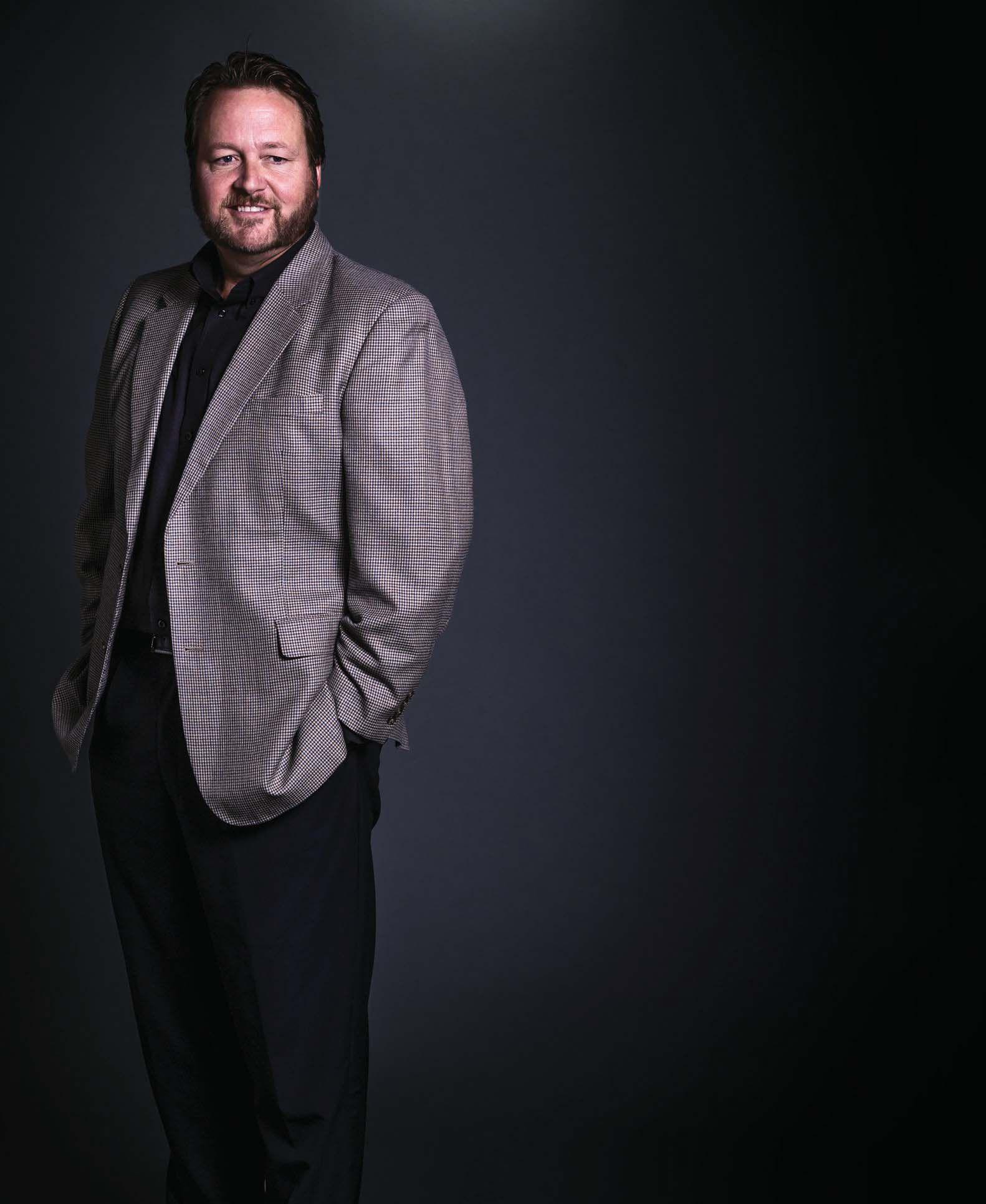
COMPANY: Therapy Heroes HQ: Fort Worth
EMPLOYEES: 10 employees and 70 contract therapists
WHAT THEY DO: Provide contract physical, occupational and speech therapy services for home health agencies around North Texas
Home health company founder Shay Smith has the company on a steady growth path, but go too big, and he fears he’d sacrifice patient care.
SHAY SMITH KNOWS HIS PATIENTS
WELL: THE ONLY THING THEY WANT IS TO GO HOME. And Smith believes that’s ideally where they should be.
“After 20 years as a physical therapist in nursing facilities, I want to meet this patient literally where she lives – in her home,” he says. “The rehabilitation center, with its parallel bars, hospital beds and fluorescent lighting, is an artificial environment. There is no antique furniture or overactive pet that will serve as a barrier to this patient’s safety. Those things are in her home. Only there can I observe these and other obstacles, then provide the therapeutic techniques and environmental modifications that will enable her to safely meet her goal of staying home.”
Smith, 49, started Therapy Heroes in 2011 and has built the company to 400-500 visits per week, working with 12-15 home health companies and 70 contract therapists. “I’d like to be about 1,200-1,500 [visits] a week, but I want to keep it to about 10 home health companies,” Smith says.
That enables Therapy Heroes to maintain service levels. “We’re not the cheapest, but we provide a lot of things other companies don’t,” says Smith, whose company remains debt-free.
Therapy Heroes does background checks on its therapists, monitors their credentials, maintains compliance with Centers for Disease Control and Occupational Safety and Health Administration regulations during home visits, and provides educational
opportunities for therapists. For the home health agencies it works for,
Therapy Heroes provides patient data; attends case conference, quality assurance and other meetings; and teaches fall prevention and fall risk classes.
Therapy Heroes also reviews all therapists’ notes to maintain compliance with Medicare rules.
In 2017, Therapy Heroes started a new program called Patient Navigation, by which it follows a patient through preparation for surgery, the procedure and recovery, and then ensures home health visits start on time and that the patient is using a home health company that’s covered by their insurance. Before surgery, for one, Therapy Heroes tries to ensure patients stop taking any medications before surgery, if they’re required to stop. “We do everything we can to make sure they don’t miss the surgery, which happens more often than you think,” Smith says. “We’re learning more and more about the value of providing relationships and the value of new product.”
Bottom line, “outcomes are the greatest issue,” Smith says. “Are people staying out of the hospital? Are they staying on their feet?”
Outside work, Smith is a big supporter of Thursday Boys, a nonprofit that teaches leadership to children, contributing more than 1,000 volunteer hours and making substantial equipment gifts. “Thursday Boys is who I am.”

COMPANY: Rodeo Dental & Orthodontics
HQ: Fort Worth
EMPLOYEES: More than 500
WHAT THEY DO: Full-service dental clinics with general and pediatric dentistry, orthodontics, oral surgery, and endodontics
Dentist Saam Zarrabi uses a bad first job as a springboard to a chain of full-service dental clinics.
SAAM ZARRABI WELL REMEMBERS HIS FIRST JOB OUT OF DENTAL SCHOOL IN 2008. The clinic on Fort Worth’s Northside had malfunctioning equipment, a leaky roof, and cockroaches. “Cockroaches everywhere,” Zarrabi, who went to dental school in California and moved to Texas for his first job during the recession, says. “The patients hated it. The employees hated it.”
A dental school buddy was opening a clinic in Forest Hill, and Zarrabi joined it. Then Zarrabi went off on his own with two like-minded young dentists, opening a clinic in 2009 in the Stockyards and naming it Rodeo Dental & Orthodontics. Today, they have 18 clinics across Texas and more than 500 employees, with plans to open more clinics. Next year: at least four more, possibly as many as six, Zarrabi says.
The clinics are kid-friendly but cater to families, with a full range of services. Staff members give new patients a facility tour that includes the surround-sound theater, live entertainment, play gyms, game consoles and flat panels. “If you come in on your birthday, you’re going to have something probably crazy happen to you,” Zarrabi says.
The company began its expansion in 2009 when its pediatric partner wanted to move to South Texas to be with his wife, who’d been transferred there. That year, Rodeo opened four locations in the Rio Grande Valley, validating its model of going into underserved urban and rural communities. “We were a need in access to care,” Zarrabi says.
Each clinic is 5,000-10,000 square feet and contains 15 dentists’ chairs.
Rodeo goes into partnership with its dentists, and it costs $800,000-$1 million to open a clinic, Zarrabi says, and takes five to seven years to recover costs and “two years to get stabilized from a cash flow perspective.”
In the community, Rodeo works with programs, schools and churches to promote healthy dental practices. In 2012, the company took on a large number of orthodontic cases when the children were left without an insurance provider.
As the company has grown, it’s added operational infrastructure, including accounting, human resources, marketing and patient loyalty. It hired a chief dental officer. And it brought in a CEO in 2014 to run the operation. “That allows me to be the entrepreneur,” Zarrabi says.
COMPANY: Qualbe Marketing Group HQ: Haltom City EMPLOYEES: 60
WHAT THEY DO: Digital marketing and technology company that builds businesses by optimizing websites, driving online traffic and closing sales online and over the phone


Tech geek Randy Meinen uses technology to market dental plans and other services through an Inc. 5000 company.








RANDY MEINEN LOVES INCORPORATING TECHNOLOGY INTO THE MARKETING AND OPERATION OF HIS BUSINESSES. He left college to start his first business, using robocalling to generate leads for his storm window business. The technology was so new – it’s now illegal for businesses – that consumers loved using it and talking to the machine, Meinen recalls. “One night, we forgot to turn it off,” he says. “It kept dialing. We got great leads.”





a dental plan,” Meinen, now 59, says. “We sold over 300 employer groups in three years.”
His big break came in the mid-1990s when Meinen signed a deal to sell Careington International dental plans. This is how Qualbe Marketing – Qualbe is an amalgam for Quality Benefits – was formed. The original business plan was to market dental plans through agents, but Meinen learned quickly he could do much better by selling direct to consumer across Qualbe’s website.
up for monthly or yearly coverage at nominal prices – $99 per year for an individual – and they receive discounts off of what Careington says are prevailing local market rates for specific services. Customers must use Careington’s dentist network.
Qualbe placed on the 2017 Inc. 5000 list of fastest-growing U.S. companies with $12.2 million in 2016 revenue and 55 percent three-year growth. The “bulk of the business is dental,” Meinen says.

That partnership fell apart, and Meinen enrolled at TCU. After graduating, he sold insurance for several years. He left that to start up another business in the late 1980s using the new facsimile machine technology: “We would call, get permission, and fax businesses about

How it works: Qualbe manages several hundreds of thousands search terms. Customers who search for “dental insurance Fort Worth,” for example, immediately find Qualbe’s 1dental.com site, which features the Careington plan. Customers can sign
The company is levering its foundation to move into marketing other businesses, such as its Talent Insight assessment that businesses can use to evaluate prospective employees before hiring them. “Anything with a recurring revenue model,” Meinen says. “That’s the beauty.”
COMPANY: Grit Productions HQ: Grapevine
EMPLOYEES: Eight fulltime WHAT THEY DO: Event production, media, communications and public relations
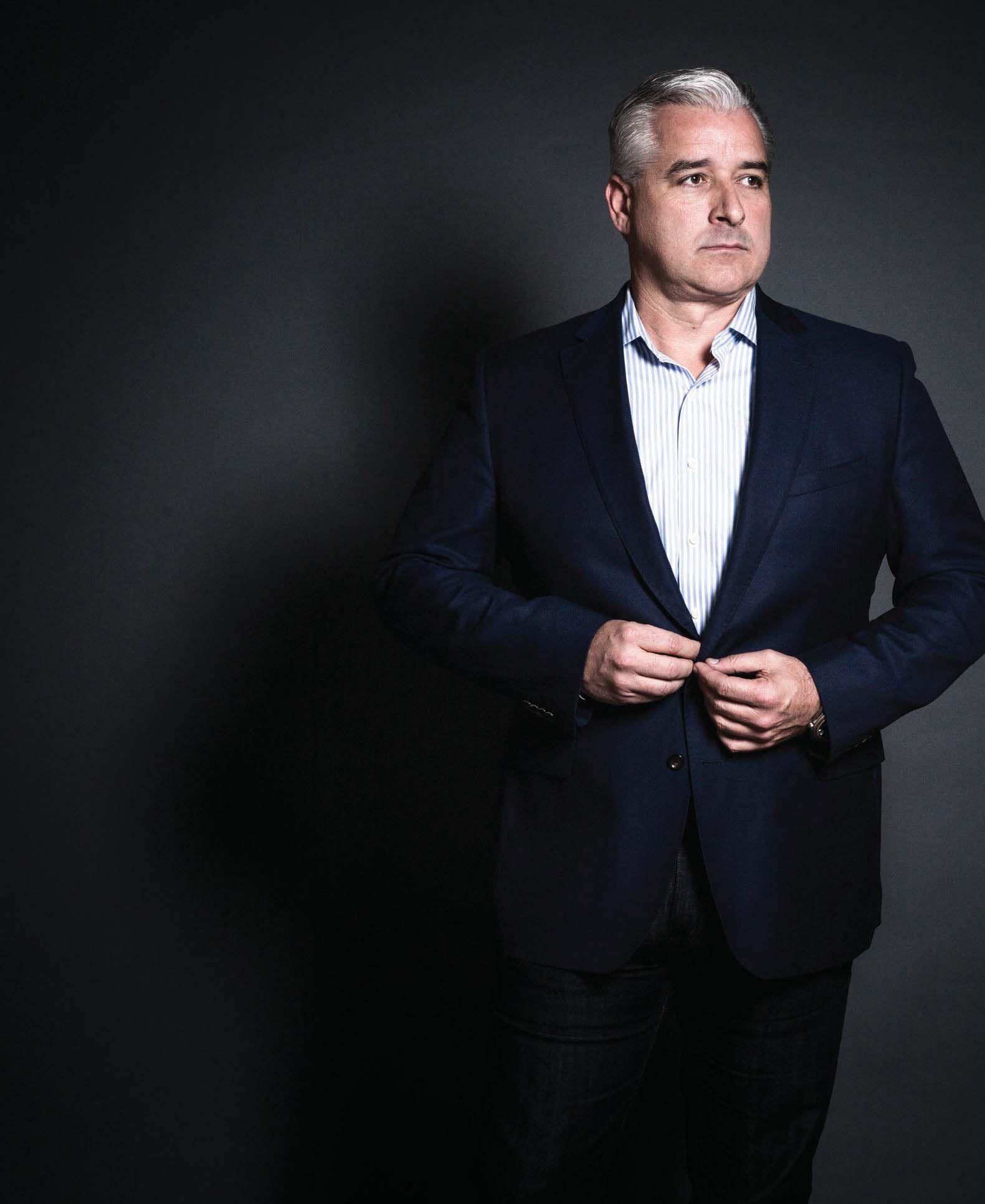
Event pro Kelly Massey leaves home after high school, makes way to North Texas and a venture in communications.
IF KELLY MASSEY HAD ANY DOUBTS HE COULD RUN HIS OWN SHIP, THEY MIGHT HAVE ENDED WHEN HE WAS INVITED TO RUN A MAJOR CORPORATE EVENT IN LAS VEGAS, AFTER ANOTHER COMPANY BACKED OUT. “We pulled that show off with a great team in only seven weeks,” he says. “That launched my entrepreneurial journey.”
He was in a partnership for another eight years, and the group broke up in 2015. Thinking through what to do next, he consulted with his wife. “Clients really want to know you’re going to produce their event on time, and on budget,” he says.
Massey launched Grit Productions at that point two and a half years ago. The firm is a group of event producers and planners who manage everything from small business meetings to large national conventions, and work in multiple formats: conferences, general sessions, trade shows and brand activations. In 2016, Grit did $1 million in revenue and in 2017, $5 million.
“My goal is $8 million in 2018,” Massey, 48, says. “I didn’t set a goal for 2017. That just happened.”
Grit has eight full-time employees and works with dozens of freelancers, assembling teams of various skills, depending on the job. Massey’s wife, Leigh, is a partner and manages the company's Grit Expositions, a trade show general contractor and decorator.
Within the last year, Grit put together a multi-day $2 million grand opening for a factory in Houston. “That client has been a great partner for several years; in order to have the opportunity to produce this show, we had to establish ourselves by running their smaller meetings that bill out at $20-$25,000 for several years.”
Massey left his hometown, Little Rock, after high school and came to Dallas, where he worked his way through a series of event production jobs that culminated in going to work for the major international trade show contractor Freeman. “That was my real education,” he says.
Within a few years, he was on his own: “I always wanted to do something on my own.”
Massey gives back by helping nonprofits produce events, contributing to five in 2017. “Events are important to the nonprofit community for fundraising, and want to help where we can.”
COMPANY: Thrive Internet Marketing Agency HQ: Arlington
EMPLOYEES: 51 WHAT THEY DO: Full-service web design and digital marketing

Digital agency turns on the afterburners, doubles revenue, workforce in 2017
MATT BOWMAN DOESN’T HAVE TO GO TOO FAR BACK TO TRACE HIS COMPANY’S EXPLOSIVE GROWTH: NEAR $4 MILLION IN 2017 REVENUE, UP DOUBLE IN ONE YEAR AND MORE THAN 10 TIMES HIS 2012 SALES. The company had 25 employees a year ago; that number hit 51 just before Christmas.
Thrive, which Bowman launched a dozen years ago as a web design service out of the spare bedroom of his Arlington home, made the Inc. 5000 list of fastest-growing U.S. companies in 2017, with 199 percent three-year growth. It’s outgrown its south Arlington headquarters and is searching for a new location to expand. “Sometimes, it feels like we’re building the airplane as we’re taking off,” Bowman, 36, says.
Where Bowman’s growth took off: the firm’s decision in 2012 to add search engine optimization and social media to its web design offerings, creating recurring revenue. “While the website was important, what [clients] really needed was more customers,” Bowman says. And then in 2016, Bowman took on a minority business partner, the Dallas investor Kurt Knapton, former CEO of the digital data collec-
tion pioneer Research Now in Plano.
“I don’t need capital,” Bowman says. “I needed his expertise and his ideas on how to help us grow. I wanted to grow, but I was getting stuck on how to do it.” Knapton analyzed whether Thrive’s sales force was adequate; the analysis found Thrive’s sales force was significantly undersized. “I had one salesperson,” Bowman says. “So it was pretty easy math.”
The company’s sales staff at the end of 2017: eight. Bowman gravitated toward high-integrity people he knew, including an insurance adjuster from his church and a pastor he grew up with.
Thrive’s 2017 milestones: Google Premium Partner status, a new service helping clients repair and maintain online reputation, optimization of clients’ sites for Amazon sales, and the hiring of a full-time video specialist. It’s also launched Thrive Gives Back, a program through the Kiva international nonprofit that aims to ease poverty. Thrive, for every client, gives a microloan to a Kiva-backed entrepreneur.
COMPANY: BoomerJack’s Grill & Bar HQ: Bedford
EMPLOYEES: 900
WHAT THEY DO: Own and operate 12 BoomerJack’s Grill & Bar restaurants and the Bedford Ice House






Brent Tipps, having built 13 restaurants, gets ready to a launch an aggressive growth plan to triple his company’s size.









BRENT TIPPS HAS WILLED HIS BOOMERJACK’S GRILL & BAR TO 12 STORES SINCE HE STARTED THE COMPANY 15 YEARS AGO. “Now, we’re going to boot it out,” he says. His growth goal for the company, now at $30 million in annual revenue: $100 million by 2025. That assumes he adds two to four restaurants per year. “We’ll see what happens then,” Tipps, 50, says.
including business expenses.
This represented the launch of BoomerJack’s Grill & Bar. “I knew a guy in Fort Worth who wanted to open a [Lone Star Wings] franchise,” Tipps says. They called on the broker for the Montgomery Plaza development on West 7th Street in Fort Worth. “The broker didn’t want a wing place. I said, ‘You thought I meant my chicken wing place. I’ve got another concept.’ He said, ‘Send me a menu.’ ”
the West 7th store. Along the way, a restaurant next to the BoomerJack’s in Bedford closed, and Tipps picked it up as “a defensive move."
Tipps put an upscale Mexican restaurant in the building. “We lost $700,000 in one year,” he says. “We were down to two waitresses. The prices were too high.” Tipps ordered up a remodel, stripping corrugated metal off an old barn to create the walls. Tipps’ Bedford Ice House is now at more than $3 million in sales.

After high school, Tipps waited tables at Steak & Ale, managed a CiCi’s Pizza and worked as a corporate fix-it man for the company before he went out on his own as a CiCi’s franchisee. Deciding he couldn’t grow with CiCi’s, Tipps opened five Lone Star Wings restaurants in North Texas in five months with a partner, going more than two years without a paycheck. “I lived on credit cards for three years,” he says. “I was $180,000 in debt,”
BRE BOO STO Y out,” now milli to fo happ Af Steak work pany fran CiCi resta with with three Bre rea trip

“I called my designer and told him to copy and paste somebody else’s menu and change the names,” Tipps says. “He said, ‘What?’ The broker says this is exactly what I want.”
Tipps and his partner launched the first BoomerJack’s at Montgomery Plaza.
Tipps later rebranded the Lone Star Wings store to BoomerJack’s. He recently bought out his partner, who remains a minority partner in
His expansion plan is taking shape. “We’ll probably go to Houston and probably West Texas,” he says. “The usual suspects.”
If anybody was watching Tipps as a youth, they might have figured out he had some chops. At 7, “I was a provider of bubble gum and candy bars smuggled into school. I’d buy a pack of gum for 25 cents and sell a stick for 25 cents.”
COMPANY: Rio Mambo HQ: Irving
WHAT THEY DO: Nine restaurants in North Texas
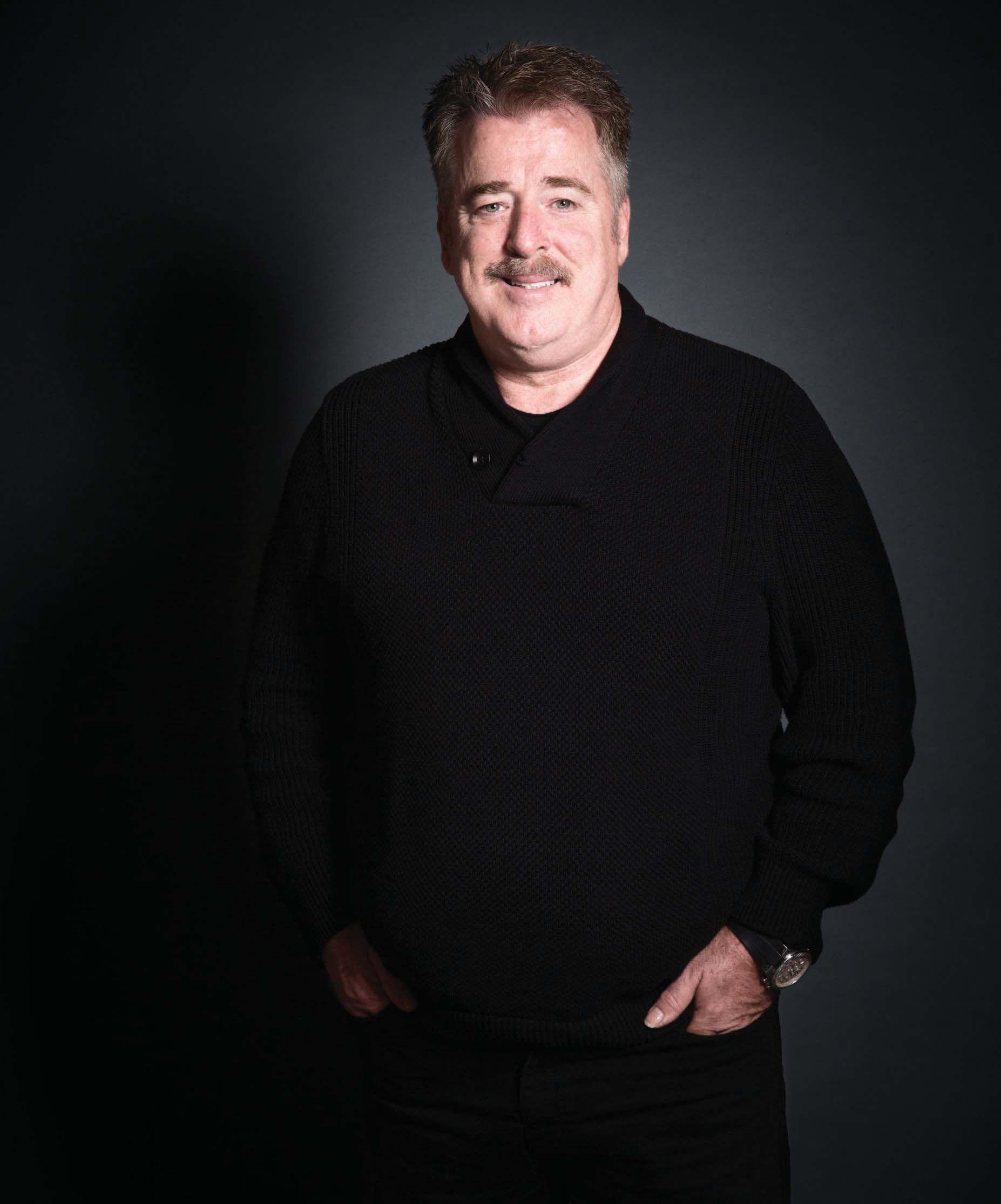
Tired of the corporate world, restaurateur Brent Johnson leaves and launches his own company.
BRENT JOHNSON KNEW HIS “EMPLOYABLE DAYS WERE DONE” THE DAY HE LEFT 20 YEARS OF WORKING IN CORPORATE RESTAURANTS. When senior executives convened to discuss how to improve results, “very seldom was it ‘we’re going to get better by making the employees’ lives better,’” he says.
That was 2001, and Johnson decided to open his own restaurant. At 42, he told his wife, “It’s now or never.” Johnson’s brother-inlaw came in as money partner, and Johnson opened his first Rio Mambo restaurant on Sept. 11, 2001 in southwest Fort Worth’s Cityview Center. With opening day food proceeds going to Cook Children’s Medical Center, Johnson was prepping to open when he turned on the TV that morning.
“Just as I turned the TV on, Carswell was shooting out, I don’t know, some kind of planes” over the restaurant, Johnson says. “It was surreal. We served 179 people that day. I still remember it.”
Two years later, “we were $524,000 in the hole, including investment, but we had such a loyal customer, and I knew were giving great service, and I knew we were giving great food,” Johnson says.
Things began to turn late that year and the next, and by spring 2005, “we were paid off, debt-free.”
Today, Johnson has nine restaurants (he ventured into downtown Fort Worth with a restaurant that he says was a “mistake” and he later exited, and one of his restaurants is licensed). In December, he opened a Rio Mambo and sister restaurant called The Rim side by side in downtown Burleson. With Burleson open, he estimates the company at $22 million in annual sales.
Johnson takes on owners of the buildings he leases in as silent partners, in exchange for discounted rent. “I find over the years a relationship with your landlord is extremely important,” he says.
Rio Mambo gives 10 percent of Sunday proceeds to the churches of its customers. It donates to schools and teachers through its Rio Mambo Rewards program. Through its White Envelope program, Johnson's family has purchased groceries for unsuspecting shoppers, adopted children from Happy Hill Farm Academy, and helped feed homeless people during Christmas. Says Johnson: “I always knew I wanted to do my own thing.”
COMPANY: CCRA International HQ: Fort Worth
EMPLOYEES: 150
WHAT THEY DO: Provider of international travel commerce products and services to travel agencies and suppliers, across North America and 15 other countries
“Tech geek” Dic Marxen tried to retire at 30, but about a dozen companies later, he’s expanding the reach of a Fort Worth travel commerce provider.
DIC MARXEN IS THE ONLY ENTREPRENEUR IN THIS YEAR’S ENTREPRENEUR OF EXCELLENCE CLASS WHO MANAGED TO RETIRE AT AGE 30. Of course, that didn’t last.
Not even with the fun Marxen, who studied computer science and industrial engineering at Texas Tech and co-founded a tech company that he and his partners sold for enough to send Marxen into retirement, was having with tennis, racing cars and motocross, and polo. After seven years of this, Marxen, a technology, marketing and distribution specialist, was recruited into a turnaround.
“I’d say, 12 companies later,” he says, he was recruited by a friend in 2005 into CCRA International, a provider of digital international travel commerce products and services to hoteliers, travel agencies, and suppliers like airlines. Marxen came in to take over operations and ended up owning the company. “I knew nothing about travel,” he says.
CCRA was an old agency with an old call center, but it had some upside. “They had some pretty good procedures for inbound traffic,” he says. “Good client base. They had software selling hotel packages to agencies.”
Early on, Marxen had to let some employees go, and he refocused the company’s broad line to the six most productive. “Eighteen months to make it profitable,” he says.

Today, CCRA has about 150 employees, up from 40 five years ago. Most of his employees work from home. Sales reps typically work from home, and programmers and the technology group work across the country and overseas. Finance and operations personnel work from the Fort Worth headquarters.
One thing Marxen, who estimates he’s done four turnarounds, says he always does: “Get in and learn every piece of the business, down to how to send out an invoice. You find out a lot.”
Marxen’s made some key acquisitions, including the largest independent call center in the United States for corporate travel, that have expanded CCRA’s technological capabilities and reach. “I’m a tech geek,” he says. “I will buy anything if you show me a good product.”
Even though large online agencies like Orbitz and Travelocity, and big travel providers selling their own inventory on their own sites, forced traditional agencies out of business years ago, the industry remains highly fragmented, with many agencies working niches.
Leisure, luxury, weddings, adventure, disability, and LGBT are the biggest niches, Marxen says. “Our travel agency base is topping out at 40,000, more than half still in the U.S.,” he says. “It’s pretty fragmented. It’s all over the place.”
COMPANY: 6th Ave Homes
HQ: Fort Worth
EMPLOYEES/AGENTS: 22
WHAT HE DOES: Buys, sells, designs, and renovates homes for clients. Co-founder and partner in Brewed restaurant. Co-founder of The 4 Eleven on South Main. Lead guitar player for the Green River Ordinance band.


Gree hom real e

Green River Ordinance guitarist Jamey Ice reimagines the homebuying process and builds on his impressive portfolio in real estate, one restaurant, and music.
IT’S TOUGH TO PINPOINT WHERE
JAMEY ICE’S ENTREPRENEURIAL
T JAME JOUR









JOURNEY BEGAN. We ask him this question, and he points us to a podcast by CEO Yvon Chouinard of Patagonia, the clothing retailer, who compares entrepreneurs to juvenile delinquents in that both like to do things their own ways. “I always asked ‘why,’” Ice says.


























Ice and Williams bought six more houses, running crews to work on the properties. Since then, Ice estimates he and Williams have bought and restored 60 single-family homes in the Near Southside’s Fairmount neighborhood, flipping most. They own 23 rental units on the South Side.
Ice, who signed his band, Green River Ordinance, to a Capitol Records deal when he was at TCU, says he likes the business and marketing side of music. “The other guys in the band are true artists.” Ice crowdfunded the band’s second album. “Better margins, actually sold more albums than our Capitol Records release.”
Ice’s wife works with chronically homeless people, and Ice met a homeless man who taught him how to remodel homes. Using the advice, Ice remodeled and sold one home at a big profit. In 2012, Ice and his wife started a nonprofit called The Net that works with homeless people, refugees and women who’ve been sexually exploited. That same year, the Ices and three other couples opened Brewed, a restaurant on West Magnolia Avenue.


In 2013, Ice and longtime friend Jimmy Williams borrowed $100,000 at 14 percent interest to buy and flip a house. “We remodeled it and sold it in 90 days,” Ice says. By that summer,
t his qu podca of Pat f who c juveni like to alway Ice, River O cords d he like e side of e a d d margi than o n h y homel to rem Ice rem a p g started that w t refuge sexual the Ice opene West M t In 2 n at 14 t p 4 a hous in 90 n d

Ice says he and Williams soon discovered a gap in the home buying and redevelopment market: millennials. “Our demographic really values individuality and originality. They are wanting a more personal experience with the ability to not just buy a house, but also make it their own.”
In 2016, they launched a real estate brokerage to serve that market, offering buy-sell-design-renovate service that’s capped with shots of whiskey all around when the deal closes.
Their 6th Ave Homes has 14 licensed real estate agents or “guides,” and did about $14 million in 2017 sales and over $6 million in renovations.
Ice, with Williams and Brewed partners Jana and Scott Clark, also recently bought and renovated a 20,000-square-foot warehouse on South Main Street called The 4 Eleven, which has five retail spaces, event space, and one space for a restaurant.
Common thread among Ice’s interests? “They’re all centered around the idea of restoration,” Ice says. “How do we make Fort Worth great?”
COMPANY: JP & Associates Realtors
HQ: Frisco
EMPLOYEES: 22 employees, 1,100 agents
WHAT THEY DO: Residential real estate brokerage

Immigrant JP Piccinini moves from engineering to real estate and launches an agency he thinks could go national.
JP PICCININI SAYS HE KNEW HE WANTED TO BE A CEO SINCE HE WAS A CHILD GROWING UP IN HIS NATIVE ITALY. “I was born in Naples; we do with what we have,” he says. “I just knew as a little kid I was going to be in business.”
Piccinini, 41, emigrated to the United States at age 13, and after graduating Midwestern State University in Wichita Falls, he first entered engineering at a job in South Carolina but hated being tied to an employer. “I didn’t know what to do,” he says. “Engineering is what I was good at. I liked sales. I was able to put deals together.” He attended a real estate career fair in South Carolina, obtained his real estate license, and entered residential real estate as an agent.
“I sold 25 homes my first year with the agency,” says Piccinini, who became a U.S. citizen in 2016. “I never took a day off.” He soon was up to 100 homes sold per year. Piccinini moved back to Texas, worked for a broker in Plano for a year, and then started his own agency, JP & Associates.
In 2017, Piccinini’s agency, which has 11 offices in the DFW area, posted $1.7 billion in sales, over 2016’s $1 billion. The agency placed on the 2017 Inc. 5000 list of fastest-growing U.S. companies, with three-year revenue growth of 773 percent. The agency is one of the top five DFW brokerages after six years. Piccinini wants to expand to other markets and is considering selling franchise offices outside Texas. He dreams of taking “JPAR” national. “We want to get into a trajectory of essentially doubling every year,” he says.
JP is a hybrid agency. It doesn’t charge desk and marketing fees, and agents get to keep 100 percent of their commission. The agency charges a transaction fee to manage each deal and provide support. Agents can take advantage of training and mentorship, and an optional lead program. Agents must sell at least six homes per year to remain with the agency.
JP also uses technology to maximize efficiency, going green and not printing anything out. “None of our offices have printers,” Piccinini says. “There’s one printer in accounting. Everything is on the cloud.”
COMPANY: Vasseur Commercial Real Estate HQ: Fort Worth
EMPLOYEES: 9
WHAT THEY DO: Commercial real estate brokerage

At 69, Gary Vasseur, a longtime Fort Worth commercial real estate broker, says his entrepreneurial journey’s just begun.
GARY VASSEUR IS UNUSUAL AMONG FW INC.’S 2018 ENTREPRENEUR OF EXCELLENCE CLASS IN THAT, WHEN OTHER PEOPLE MIGHT BE CONSIDERING RETIREMENT, VASSEUR SAYS HIS ENTREPRENEURIAL JOURNEY JUST BEGAN THREE YEARS AGO.
That’s when Vasseur launched his own agency, Vasseur Commercial Real Estate, after leaving a Coldwell Banker Commercial franchise relationship. “The way I interpret an entrepreneur is somebody who’s taking financial risk and starting something new,” Vasseur says. “Although there was financial risk in being a partner at CBC, there was significantly more risk in starting my own company.”
Vasseur grew up in Waxahachie, attended TCU on a baseball scholarship, graduated with a business degree, and decided to go into real estate. Rejected by several real estate companies, Vasseur called Byron Searcy at the Ferree & Searcy agency. “While we are not looking for anyone at this time, I’m hesitant to turn down the opportunity to improve the company,” Searcy told Vasseur in the interview 46 years ago.
That began a 27-year association. Charles Ferree died in 1999; Searcy died in 2016. Ferree & Searcy’s closing led to a merger with Kelly, Geren, Eagle & Woodson, in which Vasseur was a partner. That group became Kelly, Geren & Searcy and finally led to the Coldwell Banker franchise. That affiliation expired February 2015.
The franchise relationship and lease with Coldwell Banker expired at the same time. Vasseur found a building off of South Hulen Street and purchased it about 45 days before his old lease expired. “The timing was perfect,” he says. Vasseur Commercial Real Estate opened March 1, 2015.
“In retrospect, while the financial risk of this endeavor was of concern, the decision was ultimately an easy one,” he says. “This was based on the confidence I have in myself along with the faith and pride I have in those that work tirelessly with me to ensure our mutual success. The economy has been healthy, the real estate market is vibrant, and Fort Worth is just a location that continues to grow. If you’re in there working, you’ll continue to be successful.”
Vasseur has sole ownership in the firm. His son, Nathan, 34, also is in the firm. “I think in the near future, he’ll become a partner,” Vasseur says.
Vasseur says business is strong. “It’s natural to think you’re not getting your share of the business,” he says. “I’m more than happy with our production. I like to think we have a good reputation. We’re a good general brokerage company. We do a little bit of everything.”
COMPANY: Gus Bates Insurance and Investments
HQ: Fort Worth
EMPLOYEES: “Just south of 60” WHAT THEY DO: Insurance and investment plans for employers


Gus busi
Gus S. Bates, 26 years after joining the family business, is glad he gave up his gig at Joe T’s





GUS S. BATES REMEMBERS THE FIRST TIME HE WORKED A LIFE INSURANCE CONTRACT WITH HIS FATHER, FOUNDER OF GUS BATES INSURANCE AND INVESTMENTS. “I said, ‘Hey, Dad, how much are we going to make from that?’” Bates says. “Son, don’t ask me that ever again,” his dad replied. “Our philosophy is, if you do the right thing, the money always works out.”



now has almost 60.
“Our company has grown from mom and pop shop to successfully compete with nationwide firms,” Bates, 51, says. “We differentiate ourselves by making local decisions and operating in a debtfree environment without the presence of outside investors.”
now the company's leading salesperson.
Bates has been spending a lot of time over the past few years fine-tuning the company’s culture. “That’s been my biggest focus for the last couple of years,” he says.

Bates joined his father in the business 26 years ago, giving up working at Joe T. Garcia’s and $40,000 a year in tips.


The company has evolved from life insurance to consulting firm handling multiple lines of insurance and investments. What started with two employees

The company has developed key employees, including President Matt Morris. Bates is quick to shower credit on his employees and father.
“I met him when he was 11,” Bates says of Morris. “I coached him in youth athletics. I said, when you get out of college, come work for me. He called.” Morris brought in lifelong friend Justin Phipps,
The company recently moved within Fort Worth to significantly larger quarters. It has a large kitchen, seminar room, on-site gym, and outdoor recreation space. “We want to be that company that truly has the family culture,” Bates says.
The company makes sure it rewards its employees financially, Bates says.
“If $1 comes in, it’s divided up a lot of ways,” he says. “Our account managers double what the competitors do. It’s not even close.”
COMPANY: Forrest Performance Group HQ: Fort Worth
EMPLOYEES: 20
WHAT THEY DO: Lead and design sales, management, customer service and executive training programs, and management coaching programs

Sales trainer builds $1 million business by himself, decides to expand for greater impact
JASON FORREST LEARNED KEY LIFE LESSONS EARLY ON FROM HIS FATHER, A LONGTIME PLANO RETAILER. “I grew up in the environment, every single time I asked my dad for money, he’d say, ‘Great, what are you going to do for it?’” Forrest says.
Forrest, 39, has carried these lessons over into his personal and business life. Ayn Rand’s “Atlas Shrugged,” a fictional account of a society where burdensome regulations overcome business, is his favorite book. Forrest is all about people making it on their own. “No one owns me,” he says. “As long as you give value greater than what you’re charging, you’ll do well.”
Forrest headed into sales as a career. “I’ve sold everything,” including retail clothing, jewelry, financial services, and real estate. “As long as you are the world’s best salesperson, you will always have a job.”
He was working as head of sales training for a Fortune 500 company when he decided in 2007, as the housing peak was ending and the nation was descending into recession, to start his own sales training company. “I just took the leap, went off on my own,” he says.
Five years ago, he reached $1.2 million in annual sales, on his own.
“Ninety-five engagements a year, 900 hours of coaching calls,” he says. “I made a ton of money because I had no overhead. I decided I wanted to have a greater impact.”
The company reached $2.9 million in 2016 revenue and placed on the Inc. 5000 list of fastest-growing U.S. companies, with 59 percent three-year growth. In 2017, the company, now with 20 employees, reached $4.4 million in sales. Its 2023 goal is $20 million. “We have our work cut out for us,” Forrest says.
Forrest has seven trainers and two full-time salespeople today. “We need two more sales people and two more trainers,” he says.
Forrest has built his company culture around drivers such as accountability, trust, dialogue and excellence. The company says it maintains a 100 percent success rate of improving clients’ profitability. Companies such as homebuilders, community banks, mortgage companies, and retailers are among FPG clients. Forrest is quick to add FPG isn’t for most prospective clients.
“We charge the most of any training company out there, but we deliver the most,” Forrest says.
COMPANY: Blue Jean Networks HQ: Fort Worth
EMPLOYEES: 10
WHAT THEY DO: Outsourced computer services for companies with 10-100 users, serving Fort Worth and five-county area

Once afraid of risks, Fort Worth entrepreneur Sunny Lowe builds a fast-growing IT company.
SUNNY LOWE LIKES TO SAY HE DIDN’T BECOME AN ENTREPRENEUR UNTIL HIS 40S. “I was always afraid of everything.”
Lowe spent time searching. He was a UPS driver for 10 years, with a master’s in seminary. “I realized no one in his right mind was going to let me be their pastor, so I decided to go into business,” he says.
Lowe developed a passion for computer technology, and he caught a job beginning as an internal computer technician for a network consultant. Eight years in, he joined with other partners to form The Strickland Group, an oil and gas, IT, and software consulting firm in Fort Worth. As vice president of network engineering, Lowe and his team built what they billed as one of the first managed-service providers in Fort Worth.
Nine years ago, Lowe, now 62, went off on his own and formed Blue Jean Networks. “I didn’t want to wear a suit again,” he says of the company name. “And I wanted something high up in the alphabet.”
He grew the company to $300,000 in annual revenue and, then, with the help of a coach, to $1.5 million. “I knew I could do the stuff,” he says. The company has 10 employees and just hired two in the fall. Lowe says his coach taught him how to compartmentalize and spend a focused amount of time on each issue.
His growth goals for the future: “I’d love to be a $10 million company, but my fear is that might be too small a vision.” He sells solutions that reduce the “time your people waste.”
“They’re really running at a level they’ve never been at,” he says. “We do things at a level beyond what other people can do, at about the same price.”
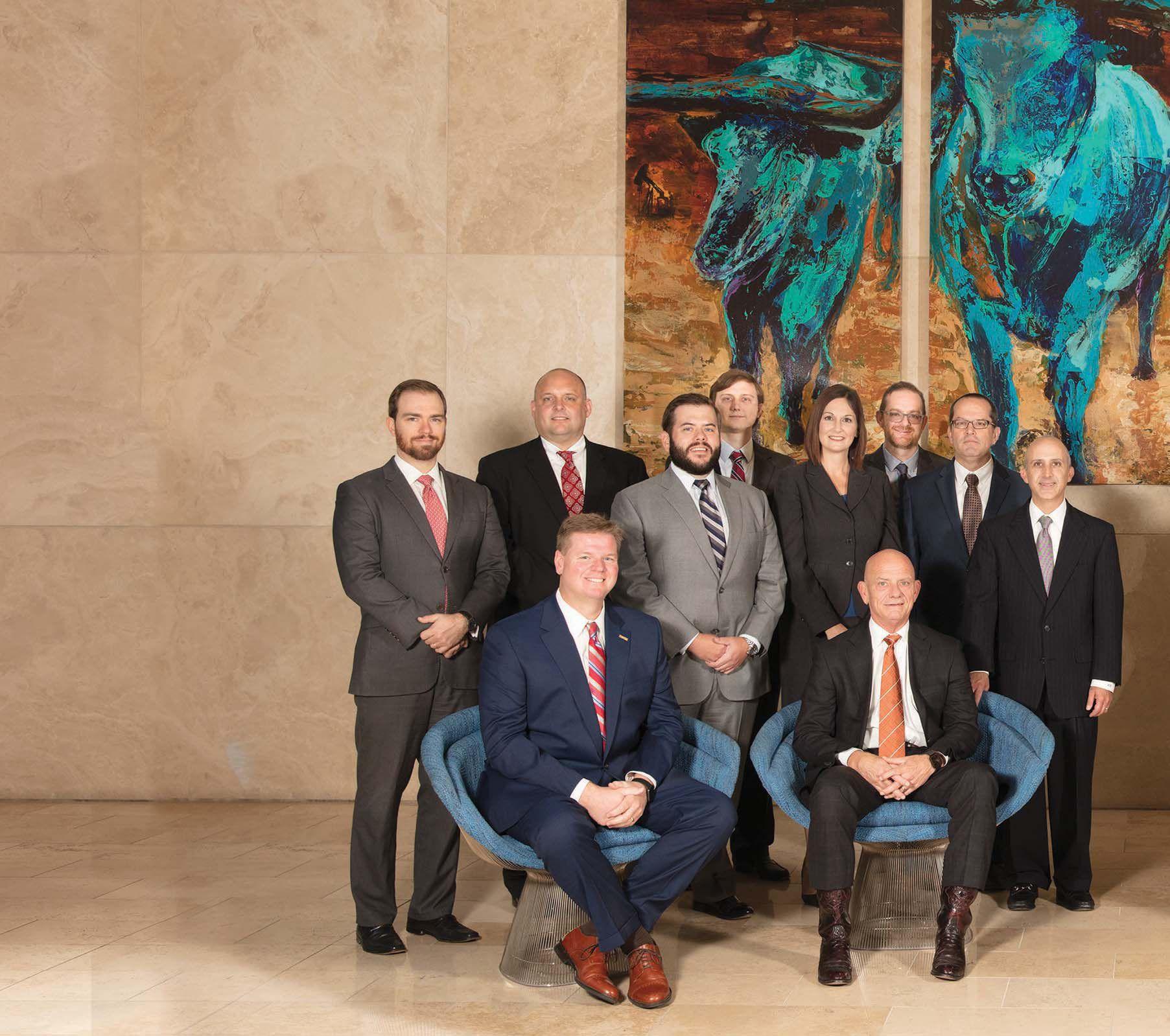
Winstead’s Fort Worth office is home to attorneys who have lived in the city for generations. Our attorneys serve on boards and committees of many Fort Worth organizations and participate in several local community activities. Winstead shares the love of the city’s heritage and supports Fort Worth’s vision for growth and prosperity.
Not pictured: Elizabeth Tiblets





BY SCOTT NISHIMURA AND SAMANTHA CALIMBAHIN
Need a lawyer? Start here with FW Inc.'s Top Attorneys, our annual listing of the best lawyers in town, as voted for by their peers.
This year’s list contains 832 lawyers, broken down by specialty and whether they’ve been in practice for more or less than five years. Lawyers voted online at fwtx.com last year. The magazine applied a minimum number of votes it took to make the list, giving bonus weight to lawyers who made the list any of the prior three years. We asked a group of 25 highly regarded lawyers in the area to review the list prior to publication and
ADMINISTRATIVE
Issues regarding the body of rules, regulations, orders and decisions
created by administrative agencies of government
Christopher Gee
Tyler Wallach
Andrew Wambsganss
ADOPTION
Issues in adoption law
Heidi Cox
Eric Freeby
Kellye Hughes
Zoe Meigs
Susan Paquet
ALTERNATIVE DISPUTE
RESOLUTION
Practice of resolving legal disputes through mediation, collaborative law, arbitration, or other nonlitigation methods
John Allen Chalk Sr.
Christian Dennie
John Dowdy
Thomas "Trey"
Gordon III
Tom Henry
Kight Higgins
Bruce James
Roland Johnson
Beth Krugler
Richard Alan Maples
Wade McMullen
Dale O'Neal
David Seidler
Len Wade
Kevin Walker
APPELLATE
Issues regarding appeals of a lower court ruling
Marianne Auld
Russell Barton
Dabney Bassel
Jerry Bullard
make recommendations on other lawyers who should be on the list, and even ones who should come off for any reason. With this input, we finalized the 2017 Top Attorneys list. By including a lawyer on these lists, the magazine does not recommend or endorse his or her service. Lawyers whose names are in bold type received 20 or more votes. Lawyers whose names are in bold italic received 10-19 votes. Lawyers licensed as of December 2012 are considered to have more than five years in practice for this list. — Research contributed by Kat Barclay and Sarah Jane Grisham
Donald Ferrill
Thomas F. Harkins
Jr.
Steve Hayes
David Keltner
Jennifer Lovelace
Thomas Michel
Chris Nickelson
Misty Pratt Schneider
Karen Precella
Fredrick Quast
Brittani Rollen
Jody Sanders
Brent Shellhorse
Joe Spence
Matt Stayton
Steve Tatum
Philip Vickers
Shelby White
ATTORNEY AD LITEM/ GUARDIAN AD
LITEM
Attorneys appointed by a court to act as an advocate for a minor, proposed ward, or unknown heirs in a legal action
Kim Catalano
Issues regarding state and federal statutes on bank regulations
Elliott Garsek
Bruce McGee
Nicholas Pappas
Trey Penny
Sierra Quinonez
Mark Petrocchi
Steve Pezanosky
Jeff Prostok
Robert Simon
Lindsay Steele
Clay Taylor
Behrooz Vida
Patrick West
BANKRUPTCY
Issues regarding the rights and responsibilities of debtors and creditors in bankruptcy proceedings
John Bonds
Josh Eppich
Letty Evans
Bobby Forshey
Katherine Hopkins
Jim Ince
H. Brandon Jones
Matthias Kleinsasser
D. Michael Lynn
Matt Maben
Michael McBride
Michael McConnell
Jim Morrison
BUSINESS/ COMMERCIAL
Issues involving the formation and financing of business enterprises
Amber Altemose
Gerald Bates
Paul Bradford
John Broude
Chad Cacciotti
Stephanie Daley
Russell Devenport
Zachary Garsek
Constance Hall
Emily Mundt
Andrew Norman
Orsen Paxton
B. Scot Pierce
Brian J. Smith
Andrew Wambsganss
Jared Wood
Sexual abuse trial attorneys representing secular and ministry organizations and victims of sexual abuse
Greg Love
Kim Norris
Litigation seeking damages or specific performance in non-criminal cases
Robert Aldrich
Geffrey Anderson
Michael Anderson
Chad Arnette
Mary Barkley
Dan Bates
Lars Berg
Grant Blaies
Bob Bodoin
Richard Bourland
Rickey Brantley
Bryan Bruner
Gina Bruner
J. Kirk Bryant
Caleb Bulls
Bill Campbell
Patrick Canon
David Childress
Lee Christie
Vincent Circelli
Chris Collins
Hugh Connor
Michael Cooke
Monika Cooper
Larry Cotten
Kelly Curnutt
Lindsay Daniel
Randal Dean
Richard DeBerry
Russell Devenport
Lydia Dews
Roger Diseker
David Drez
Mark Dugan
Preston Dugas
Ralph Duggins
Rebecca Eaton
Laura Elkind
Joey Fabela
Jacob Fain
Kimberly Fitzpatrick
Michael Forman
Larry Fowler
Walker Friedman
Toby Galloway
Terry Gardner
Brian Garrett
Jeff Gilmore
Paul Goetz
Chris Greer
Doug Hafer
Alyson Halpern
George Haratsis
Stephen D. Harrison
Albon Head
Jennifer Henry
Wes Hightower
Timothy Howell
Brandon Hurley
Bruce James
David Johnson
Roland Johnson
Michael Johnston
Dee Kelly Jr.
James Key
Koy Killen
Bryce King
Bill Kirkman
Ezra Kuenzi
Markus Kypreos
Jeff Lacy
Scott Lindsey
Grant Liser
Sandy Liser
John Lively Jr.
John Lively Sr.
Trey Loftin
Justin Malone
Brant Martin
Hunter McLean
Chase Medling
Shelly Messerli
Shayne Moses
George Muckelroy
Preston Mundt
Jennifer Munoz
Christopher Neal
Christopher
Nezworski
Shane O'Dell
Keith Ogle
David Palmer
Raymond Palmer
Jeff Parks
Michael Peck
Alex Pelley
Allen Pennington
Scott Phillips
B. Scot Pierce
Robert Piwetz
Olyn Poole
Misty Pratt Schneider
John W. "John"
Proctor
Christopher Pruitt
Joseph Regan
Guy Riddle
Jerold Rinehart
Jerry Sawyer
Roland Schafer
Bronwyn Scharar
Allison Schluckebier
Michael Schneiderman
David Schulte
Marshall Searcy
Michael Sheehan
Brent Shellhorse
Andrew Sims
Brian J. Smith
Brian Stagner
Dan Steppick
Jon Suder
Mack Ed Swindle
Stephen Taylor
Joe Tolbert
Rob Vartabedian
Paul Vitanza
Matthew Walton
Rick Ward
William Nolan "Bill"
Warren
Scott Wheatley
Jeff Whitfield
Jay Wieser
Eammon Wiles
Tom Williams
John Wolffarth
Shauna Wright
George Parker Young
Jim Zadeh
CIVIL LAW, TRANSACTIONAL
Protection of the interests of a business, individual or multiple parties working together
Ryan Damiano
David Drez
Adam Fulkerson
Amy Hochberger
Phil McCrury
Michael Moore
Ricky Torlincasi
COMMUNICATIONS
Crisis communications
Judd Pritchard
CONSTRUCTION
Construction
disputes or litigation
Toby Burke
Ed Cox
Randal Dean
Christian Ellis
Elisa Fox
Stephanie Harrison
Stephen D. Harrison
Andrew Keetch
Cara Kennemer
Hunter McLean
Luke McMahan
Matt Motes
B. Scot Pierce
Stephen Polozola
Brad Rice
Patrick Sheridan
Ross Vitek
Steve Yungblut
CONSUMER
Issues regarding regulations within the consumer marketplace, including warranties, credit cards, and e-commerce
Jerry Jarzombek
CORPORATE COUNSEL
In-house legal counsel
Eric Alexander
Hurshell Brown
Andrea Cottrell
Carolyn Hyman
Andrew Lombardi
Heather Raiden
Aimee WilliamsRamey
CORPORATE FINANCE/ MERGERS AND ACQUISITIONS
Formation and financing of business, issues involving mergers and acquisitions
Brian Barnard
Tom Boswell
Benton Cantey
Doug Clayton
David W. Cook
Sharon Cooper






26 Attorneys 25 attorneys recently awarded Top Attorney in Fort Worth Magazine’s December 2017 issue Serving clients for over 120 years 13 attorneys named 2017 Super Lawyers by ThomsonReuters 27 honors in 360 West Top Attorneys List
6 attorneys named “Power Attorneys” by Fort Worth Business Press: ChuckMilliken,Rob Kelly,RandyHall, JanetHahn, CynthiaHill andMattMotes
3 attorneys awarded “40 Under 40” from Fort Worth Business Press: Patricia Cole, Stephen Polozola and LeslieHunt

Dee Finley
Charlie Florsheim
Bill Greenhill
Justin Hoover
Cary Jennings
Rob Keffler
Kris Landrith
Robert Lydick
Evan Malloy
Charles Milliken
Jason Pierce
Vernon Rew Jr.
Patrick Rose IV
Andrew Rosell
Jacob Smith
Ken Wenzel
Dustin Willey
Jared Wood
Craig Woodcook
Crimes and their prosecution
Sherry Armstrong
Bruce Ashworth
Devin AuClair
Brandon Barnett
Bruce Beasley
Lanny Begley
John Brender
Tiffany Burks
Blake Burns
Danny Burns
Cass Callaway
Kara Carreras
Virginia Carter
Cody Cofer
Mimi Coffey
Craig Dameron
Mark Daniel
Nick Davis
Clemente De La Cruz
Tanya Dohoney
Brian Eppes
Lance Evans
Tim Evans
Abe Factor
Taylor Ferguson
Curtis Fortinberry
Brandon Fulgham
Steve Gebhardt
Steve Gordon
Brian Goza
Brock Groom
Jeff Hampton
Daniel Hernandez
Francisco Hernandez
Kyle Hogan
Jeff Hoover
Jason Howard
Robert Huseman
DeWayne Huston
Christy Jack
Steve Jumes
Jeff Kearney
Tracie Kenan
Alex Kim
Emily LaChance
Trent Loftin
Trey Loftin
James Luster
Trent Marshall
Leticia Martinez
Chelsi McLarty
Tim Moore
Thomas Murphree
Jayson Nag
Bill Ray
John Robinson
Santiago Salinas
P. Micheal Schneider
Justin Sparks
Ty Stimpson
Anna Summersett
Samuel Terry
Andrea Townsend
Benson Varghese
Brian Walker
Greg Westfall
Luke Williams
Bonnie Wolf
Jerry Wood
EDUCATION/SCHOOL LAW
Teaching or issues involving laws and regulations that
govern education
Neal Adams
Ben Barlow
Tom Myers
Rik Sehgal
Jim Whitton
ELDER LAW
Broad range of issues dealing with older or disabled people
Michele Audet
Monica Benson
Rick Weaver
Issues regarding marriage, divorce, spousal support, and child custody (See Adoptions, separate category.)
Barbara Armstrong
Genevieve Barr
Leslie Barrows
Norma Bazan
Stephanie Beamer
Robert Blankenship
Kay Lynne Boll
Deborah Boone
Catherine Borum
Sonya Carrillo
Tawanna Cesare
John A. Clark
Mark Cochran
David L. Cook
Shelley Cooper
Theresa Copeland
B.C. Cornish
Anita Cutrer
Lori Dally
Rachel Dalton
Lori DeAngelis
Ami Decker
Kelly Decker
Michele DeLotto
Kristina Denapolis
West
Stephen Farrar
Stephanie Foster
Lisa Gavia
Lauren GaydosDuffer
Nancy Gordon
Vicki Hafer
Brenda Hasenzahl
Tom E. Hill
Mary Holland
Robert Hoover
Lisa Hoppes
Greg Housewirth
Marshall Jacobini
Jessica Janicek
Jim Jay
Jill Johnston
Tracey Justice
Jeffrey Kaitcer
David Kelley
Heather King
J. Steven King
David Kulesz
Mark Lane
Stephen Lawrence
Bob Leonard
Jerry Loftin
Trey Loftin
Cade Lovelace
Jim Loveless
Sean Lynch
Dana Manry
Kenneth McAlister
Taylor McPherson
Larry Mike II
Lynne Milford
Tyler Monahan
Cassie Mullen
Michael Munoz
Kimberly Naylor
Stephen Naylor
Lyndsay Newell
Chris Nickelson
Gary Nickelson
Barbara Nunneley
Elizabeth "Betsy"
Parmer
Alison Porterfield
Richard "Dick" Price
Shannon Pritchard
Lester Reed
Elizabeth Rivera
Laurie Robinson
Stephanie Sabelhaus
Kevin Schmid
Michael Schneider
Sarah Seltzer
Justin Sisemore
Curran Skinner
Donna Smiedt
Dwayne Smith
Kate Smith
Susan Smith
Joseph Soto
Lori Spearman
Keith Spencer
Kimberly Stoner
Melissa Swan
Jamie Taylor
Chrissy Tefera
Anna Teller
Donald Teller Jr.
Michael Tresidder
Tom Vick
Diane Wanger
Wayne Ward
Kyle Whitaker
Pamela Wilder
Weir Wilson
Monroe "Mike"
Windsor
Samantha Wommack
Doug Wright
HEALTH
Federal, state and local laws, rules and regulations relating to health care
Ross Carmichael
Wayne Whitaker
IMMIGRATION
Issues related to federal rules that

Deals don’t just happen; they require expert execution, responsiveness and a partner with the right relationships to get the deal done. We’re committed to exceeding expectations, prioritizing our relationship with you, and always providing access to the highest level of expertise. With Stewart Title Commercial Services, you have a partner who cares about more than just closing the deal.
Call us today.
Stewart Title Commercial Services
5600 Clearfork Main St, Ste 120 Fort Worth, TX 76109
682.707.3444 Main stewart.com/commercial/dfw
determine who’s allowed to enter the country and for how long
Edwardo Meza
Christopher Taylor
Melissa Wilks
INTELLECTUAL PROPERTY
Issues regarding securing an idea, patent, trademark or invention
Decker Cammack
Joe Cleveland
Heath Coffman
Clark Cowley
Leslie Darby
Scott Fredricks
Dave Gunter
Charles D. Gunter Jr.
Mark Handley
Dustin Johnson
Cheryl Leb
Geoff Mantooth
Stephen Mosher
Warren Norred
Glenn Orman
Lewis Schwartz
Richard L. "Rocky"
Schwartz
David Skeels
Mack Ed Swindle
James Walton
Brian Yost
LABOR AND EMPLOYMENT, EMPLOYEE
Issues regarding rights and responsibilities of workers and their employers
Zoe Courtney
Richard Griffin
Jason C.N. Smith
Tara Tankersley
Rod Tanner
Greg Blaies
Henri Dussault
Randy Hall
Jordan Parker
David Speed
LABOR AND EMPLOYMENT, EMPLOYER
Issues regarding rights and responsibilities of workers and their employers
Tom S. Brandon Jr.
Russell Cawyer
Karen Denney
Brad Dowell
Laura Hallmon
Caroline Harrison
Cynthia Hill
Leslie Hunt
Michael Hutchens
Claudine Jackson
Lu Pham
Henry Robinson
Julie Ross
Jay Rutherford
Jennifer Sweeny
MEDICAL
MALPRACTICE, PLAINTIFF
Issues regarding representation of clients who claim injury by a health care provider
Geno Borchardt
Darrell Keith
Michael McGartland
Randall Moore
MOVING VIOLATIONS
Defense of clients who receive traffic tickets
James Mallory Sommer Walker
energy sources and disputes between landowners and energy companies
Prichard Bevis
Bill Bredthauer
Cole Bredthauer
Jamie Bryan
Eric Camp
Michael Dawson
Justin Dolan
Bob Grable
Meg Guerra
Conrad Hester
Kristi Jones
Raymond Kelly
Jeff King
Michael Malone
Timothy Malone
Mark Matula
Michael Moore
Aaron Moses
Elizabeth Murphy
Stephen O'Neal
R. Mark Oliver
Hunter Parrish
Adam Plumbley
Katey Powell Stimek
Shawna Rinehart
Clark Rucker
Bart Rue
Christina Sherwood
Charlie Mitchell
Richard "Bruce"
Moon
Brad Poulos
Jackie Robinson
Coby Smith
James L. Williams
PERSONAL INJURY, PLAINTIFF
Issues pertaining to proving a defendant is liable for a plaintiff’s injury and is responsible for damages
Mark Anderson
Seth Anderson
Brandy Austin
Wade Barrow
Bruce Beasley
George Boll
Art Brender
Gene Burkett Jr.
Rieker Carsey
John Cummings
Gil Daley
Dwain Dent
Scott Frenkel
David Frisby
LAND USE AND ENVIRONMENT
Issues regarding environmental and developmental law
Ray Oujesky
Jim Schell
MUNICIPAL
Issues involving the governance of cities
Gerald Pruitt
Brian J. Smith
Todd Spake
Jim Strawn
John Thompson III
Ricky Torlincasi
Preston Ward
NONPROFIT LAW
MEDICAL MALPRACTICE, DEFENSE
Issues regarding defense of health care providers against claims of injury to a patient
Jennifer Andrews
Counsel to nonprofit associations
Tom S. Brandon Jr.
Steven Goodspeed
OIL AND GAS
Issues regarding
PERSONAL INJURY, DEFENSE
Defense of clients against claims of injury
Bruce Campbell
Laura Docker
David Flowers
John Greene
Chad Kimble
Patrick Gallagher
Mark Haney
Andrew Hawkins
Michael J. "Mike"
Henry
Rob Henry
Greg Jackson
John Jose
Robert Kisselburgh
C. Lyndon Laird
Steven Laird
Steve Maxwell
Kent McAfee
Chris Medlenka
Alfred Pandolfi
Brad Parker
Anna Patterson
Travis Patterson
Anthony Pettitt





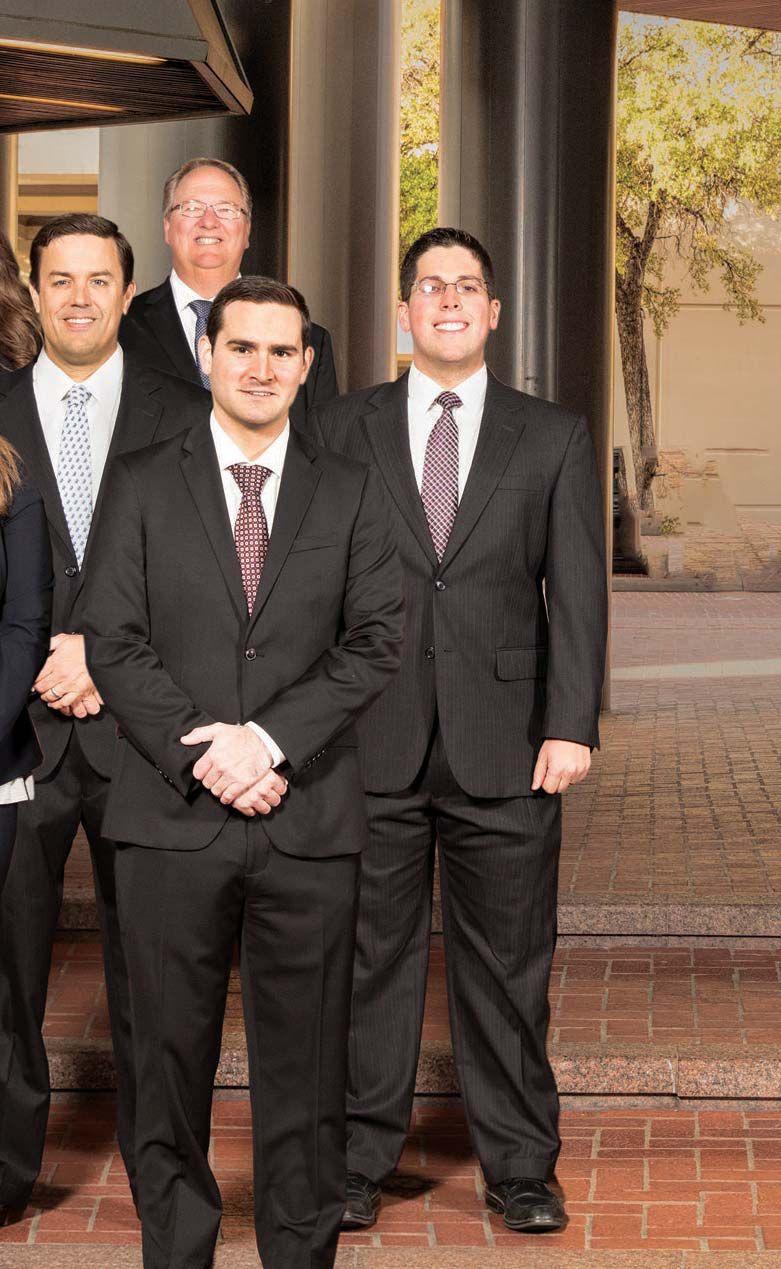

Pruitt Wambsganss Ferrill & Dean, P.C.
Attorneys and Counselors at Law




Kelly Puls
Jim Ross
John W. Shaw
Todd Smith
James Stanley
Jason Stephens
Chris Stoy
Randall Turner
Sommer Walker
Tennessee Walker
Rocky Walton
Natherral
Washington
Coby Wooten
Jim Zadeh
Issues regarding distribution or management of an estate while client is alive, or after his/her death, and determination of authenticity of last will and testament
Michael Appleman
David Bakutis
Craig Bishop
Marvin Blum
Michael Bourland
Natalie Brackett
Keith Branyon
Cole Bryan
William Campbell
Patricia Cole
Kandice Damiano
James Davidson
Matt Davidson
Kelly DeBerry
Clint Dennis
Tena Fox
Catherine Goodman
Karen Gordon
Ross Griffith
Geary Grimes
Chandler Grisham
Janet Hahn
Laura Haley
Beth Hampton
Shelli Harveson
Kelcie Hibbs
Amanda Holliday
John Hunter
Lisa Jamieson
Roger Jones
Michael Kaitcer
Steven Katten
Lynn Kelly
Kevin Kuenzli
Terry Leach
Bob Loudermilk
Dan McCarthy
Dyann McCully
Kory Nelson
Blair Norman
Amy Ott
Hank Paup
Julie Plemons
Gary Post
Rachel Saltsman
Joel Sawyer
Aaron Shutt
Jimalee Splawn
Dana Stayton
Louis Stefanos
Aimee Stone
Karen Telschow
Johnson
Leslie Thomas
Lewis Wall
Melinda Watts Smith
Michael Wiist
PRODUCT LIABILITY
Issues regarding claims that a product is defective and causes injury
Steve Howell
PROFESSIONAL MALPRACTICE, NONMEDICAL, DEFENSE
Defense of a professional against a malpractice claim
Heath Coffman
Denise Collins
Monika Cooper
Blake Cox
Donald Ferrill
PUBLIC FINANCE
Issues related to financial activities of government or public-sector organizations
Dan Settle
REAL ESTATE
Issues regarding the right to possess and use real property and the improvements on it
Ken Adair
William Babb
Chris Baker
Prichard Bevis
Mark Bishop
Veronica Chavez Law
Susan Coleman
Martin Garcia
Noelle Garsek
Bob Ginsburg
Bryon Hammer
Jared Harrell
Sadie Harrison
Fincher
Timothy Harvard
Alan Hegi
Joel Heydenburk
Brandon Hill
Justin Huston
John Charles Johnson
Chad Key
Richard Kilgore
Jared King
Bill Kuhlmann
Ryann Lamb
Kris Landrith
Lisa Leaton
Matthew Luensmann
Travis McNellie
Pati Meadows
Sharon Millians
Gary Moates
Greg Monroe
Frank Newman
Sarah Powers
Jeff Rattikin
Pollard Rogers
Jennifer Rosell
Rick Sorensen
Kenneth Stogdill
Dan Sykes
Tom Turet
Jody Walker
Ginger Webber
Bob West
Stephen Westermann
Dan White
Rafael Ylanan
SECURITIES
Issues regarding issuance and sale of securities
John Fahy
Toby Galloway
Cal Jackson
Michael King
Patrick Reardon
SPORTS AND ENTERTAINMENT
Sports law typically involves issues related to labor, antitrust, contracts and torts. Entertainment law typically involves issues related to intellectual property, first amendment and right to control the commercial use of one's identity
Jordan Woy TAX
Issues regarding regulations that authorize collection of income, gift, estate, inheritance and business taxes
Gordon Appleman
Tom Hegi
Brandon S. Jones
Rodric "Bruce"
Medley
Jessica Morrison
James Pritchard
Ryan Scharar
James Stripling
Len Woodard
SOCIAL SECURITY LAW
Issues regarding Social Security claims and related issues
Roger Allen
Daniel Gregory
TECHNOLOGY/ VIRTUAL
Issues regarding data security, intellectual property, technology and social media
Brian Kirkpatrick




Kris Brown-Burroughs was an active member of Alpha Gamma Delta sorority as a student at Tarleton State University before deciding to follow in her father’s footsteps in the automotive industry.
Today, part of a new professional sisterhood, she uses her experience and education to help lead a wave of women in successful forays into formerly male-dominated businesses, taking risks and breaking down the walls that once limited achievement.

Deciding to divorce is one of the most important decisions a person can face so it makes sense to know your options.
“One option is traditional courtroom litigation. Another option is collaborative law divorce.”
Although attorney Stephanie Foster Gilbert is prepared to be the warrior in your courtroom battle as she has been in thousands of Tarrant County divorce cases over the past 26 years, her preference is to be peacemaker in your interest–based negotiations through the dignified, private, child–protecting process known as collaborative law divorce which involves no court.
Stephanie Foster Gilbert is confident that the collaborative law process is a powerful way to generate creative solutions in family law disputes while minimizing financial and emotional damage to the couple and their children all the while promoting post–divorce psychological and financial health of the restructured family.
As a family law mediator and one of the first Tarrant County attorneys trained in collaborative law, attorney Stephanie Foster Gilbert will help you navigate through your divorce options and zealously represent you through the process of your choice.
Under Five Years in Practice
ADOPTION
Issues in adoption law
Alyssa Jacobs
APPELLATE
Issues regarding appeals of a lower court ruling
Adam Arrington
Kyle Fonville
Joe Greenhill
BUSINESS/ COMMERCIAL
Issues involving the formation and financing of business enterprises
Sean Buckley
Adam Chilton
Paul Elkins
CIVIL LAW, LITIGATION
Litigation seeking damages or specific performance in noncriminal cases
Whitney Beckworth
Grant Boston
Katie Carr Rae
DaNae Couch
Anthony Cuesta
Alix Dean
Zachary Farrar
Joshua Graham
Kathy Kassabian
Kristin Newman
Katie Owens
Andrea Palmer
Daniel Paret
Andrea Paris
Schyler Parker
Adam Simmons
Kyle Voss
Shelby White
CIVIL LAW, TRANSACTIONAL
Protection of the interests of a business, individual or multiple parties working together
Elizabeth Hatch
CONSTRUCTION
Construction disputes or litigation
Taylor Paris
CORPORATE
FINANCE/ MERGERS AND ACQUISITIONS
Formation and financing of business, issues involving mergers and acquisitions
Jarratt Watkins
Chelsea Wood
Christopher Lankford
Bria Larson
Zane Reid
Michael Schneider
Jordan Stimpson
Rajeev Sunkara
Rachel Taft
Cynthia Terry
Alex Thornton
Veronica Veyhl
Bryan Wilson
FAMILY
Issues regarding marriage, divorce, spousal support, and child custody (See Adoptions, separate category.)
Marquetta Clayton
Katie Copeland
Jennifer Dillon
Rashelle Fetty
Bodie Freeman
Aulstin Gardiner
Courtney Harbaugh
Jeff Johnson
Amy Lee
Brenna Loyd
Brent McMullen
Jerold Mitchell
Spencer Nilsson
Kathlynn Pack
Schyler Parker
Jessica Phillips
Mia Rainey
Brad Scalise
Turner Thornton
Janine Wilson
Paul Youngblood
Enrique Sanchez, Jr.
Caleb Miller
Ben Westbrook
LABOR AND EMPLOYMENT, EMPLOYEE
Issues regarding rights and responsibilities of workers and their employers
Robyn Trosper
LABOR AND EMPLOYMENT, EMPLOYER
Issues regarding rights and responsibilities of workers and their employers
Lauren McDonald
PROBATE, ESTATES, TRUST
Issues regarding distribution or management of an estate while client is alive, or after his/her death, and determination of authenticity of last will and testament
Ryan Heath
Maggie Hill
Corey Williams
REAL ESTATE
Issues regarding the right to possess and use real property and the improvements on it
OIL AND GAS
Issues regarding energy sources and disputes between landowners and energy companies
Elizabeth Babb
Seth Burt
Jeff Gilmore
Garrett Martin
Amanda Anderson
Jarrod Cone
Brett Epstein
Robby Reeb
Grant Sorenson
Hannah Watkins
PERSONAL INJURY, PLAINTIFF
CRIMINAL
Crimes and their prosecution
Deborah Bankhead
Ashley Gilmore
Phillip Hall
Reid
Kim Knapp
INTELLECTUAL PROPERTY
Issues regarding securing an idea, patent, trademark or invention
Issues pertaining to proving a defendant is liable for a plaintiff’s injury and is responsible for damages
Jesse Calderon
Matthew Meyer

FW Inc. would like to congratulate the 2017 Best Companies to Work for in Fort Worth, and thank our program sponsors for a great event!
Small to Medium Companies:
Anderson Plastic Surgery & MedSpa | Apex Capital Corp. | Comfort Experts Inc. | EST Group
Fort Capital | Forte Benefits | Forrest Performance Group | Jim Ross Law Group, P.C. | Koddi | Muckleroy & Falls
Pacheco Koch | Patterson Law Group | Qualbe Marketing Group | Satori Capital
The Center for Cancer and Blood Disorders | Trinity Valley School | Worthington National Bank
Large Companies
Bank of Texas | Burns & McDonnell | CENTURY 21 Judge Fite Company, Inc. | Freedom Powersports
Legacy Mutual Mortgage | Olympus Property | Origin Bank | Rodeo Dental & Orthodontics

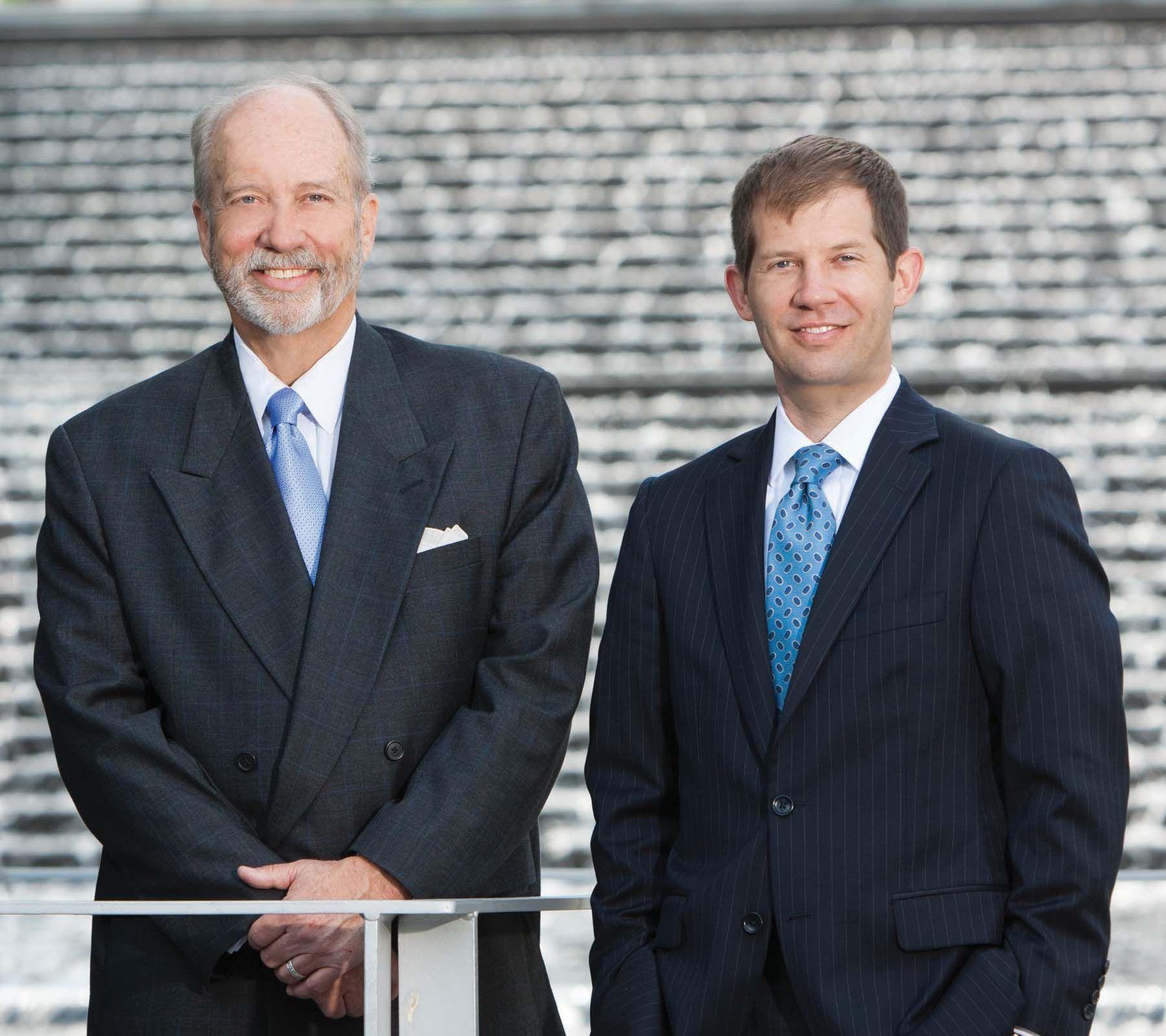


Texas’ largest group of estate planning attorneys offering intelligent solutions to save taxes and protect assets. The Blum Firm has twenty-eight attorneys devoted to estate planning, tax planning, probate, asset protection, business planning, charitable planning, tax controversy, business succession planning, family legacy planning, fiduciary litigation, guardianships, and mediation. For over thirty-five years, The Blum Firm has remained on the cutting edge of new developments and proactive planning.




•
Defender

•







They stand by us through some of life’s more memorable moments. They guide us through everything from an adoption to starting a company. They are some of Greater Fort Worth’s brightest, most-sought-after professionals, and they want to tell you how hiring them will benefit you.
The information in this section is provided by the advertisers and has not been independently verified by FW Inc.


SPECIALTY: The firm focuses on injury cases. We handle all facets of motor vehicle collisions: car wrecks, motorcycle wrecks, and catastrophic 18-wheeler crashes. In addition, we work on cases involving dangerous/ defective drugs and/or products, such as automotive defects. AWARDS/ HONORS: Scott Frenkel – Best Lawyers in Dallas, D Magazine, 2002 and 2007-2017; Texas Super Lawyer, 2011-2017; Best Lawyers in Fort Worth, 2017; Million Dollar Advocates Forum & Multi-Million Dollar Advocates Forum. Mark Frenkel – Best Lawyers in Dallas, D Magazine, 2009-2017; Texas Super Lawyer, 2014-2017; Million Dollar Advocates Forum & Multi-Million Dollar Advocates Forum. Gene Burkett – Best Lawyers in Dallas, D Magazine, 2015-2017; Best Lawyers in Fort Worth, 2017; Million

Dollar Advocates Forum & Multi-Million Dollar Advocates Forum. Readers of Addison Magazine have voted Frenkel & Frenkel their favorite law firm, 2013-2017. MEMBERSHIPS/AFFILIATIONS: State Bar of Texas; State Bar of Missouri (Mark and Scott Frenkel); Texas Trial Lawyers Association; Board of Directors Dallas Trial Lawyers Association (Mark Frenkel, vice president, 2018); Fort Worth Trial Lawyers Association, Dallas Bar Association. GREATEST PROFESSIONAL ACCOMPLISHMENT: Creating this firm, which has helped tens of thousands of individuals who could not have helped themselves. In terms of what we do daily, the deck is stacked so much against the individual that it is a blessing to be able to even the playing field and give our clients the ability to take on any adversary.


We will not be outworked or outspent. WHAT SETS THEM APART: We can fund any size case; we employ advanced techniques we have learned while continuing to hone our craft; we perform a multitude of focus groups and mock trials; and our experience on the defense side of the docket gives us insight into knowing how the opposition works. APPROACH TO LAW: Clients first; results-oriented. We hold careless and negligent companies and individuals accountable for their actions, which makes the community safer for everyone. MOTTO: Integrity. Safety. Results. FREE ADVICE: If you’ve been in a wreck, call us immediately. The other side is not there to help you. They are there to get your claim settled as inexpensively as possible. PICTURED: Scott B. Frenkel (Partner),

H. Gene Burkett (Partner), and Mark D. Frenkel (Partner). NOT PICTURED: Jason L. Boorstein (Associate), David I. Adest (Associate), Aaron C. Spahr (Associate), Joshua A. Cohen (Associate), Carlos A. Fernandez (Associate), Andrew M. Gross, MD, JD (Of Counsel).
CONTACT INFORMATION: 12700 Park Central Drive, Ste. 1900 Dallas, Texas 75251
TruckWreck.com

SPECIALTY: Brandy Austin Law Firm, PLLC is a fullservice law firm that focuses on litigation in the practice areas of business law — including general counsel services, liability issues, business and client disputes, formation and buying or selling a business, personal injury, family law, trusts and estates, probate, elder law, and criminal law. EDUCATION: Baylor Law School; East Carolina University - English, Creative Writing, Political Science - American Government Systems; Mediator. AWARDS/HONORS: Rising Star, Super Lawyers (2015-2018); Top Attorney, Fort Worth Magazine (2015-2017); AVVO 10.0 Rating; Top Attorney, 360 West Magazine (2017); Fellows of the Texas Bar Foundation. MEMBERSHIPS/AFFILIATIONS: State Bar of Texas; Tarrant County Trial Lawyers, President - Elect; Tarrant County Bar Association; Texas Trial Lawyers Association; Cemetery Board, Burleson, Texas; Arlington Bar Association; YMCA, Cooper Street, Board of Directors; Arlington Chamber of Commerce; Professionals Serving Seniors. MISSION: Our goal is to educate our clients and arm them with the knowledge each one of them needs to make independent decisions for their families and businesses. ADVICE: Learn every aspect of your business and then be proactive and take calculated risks. PICTURED: Brandy Austin.
CONTACT INFORMATION:
brandyaustinlaw.com
brandy@brandyaustinlaw.com

SPECIALTY: Representing victims of personal injury and wrongful death. EDUCATION/CERTIFICATIONS: B.A., Baylor University; J.D., University of Texas; LLM in Trial Advocacy, Temple University; Board Certified in Personal Injury Trial Law, TBLS, Civil Trial Advocacy, NBTA. AWARDS/HONORS: Multi-Million Dollar Advocates Forum; National Trial Lawyers Top 40 Under 40, 2012; Fort Worth Magazine Top Attorney, 2010-17; Super Lawyers 2013-17; Rising Stars 2008-13; PROFESSIONAL MEMBERSHIPS/AFFILIATIONS: Texas Trial Lawyers Association, Board of Directors; Tarrant County Trial Lawyers Association, President; American Board of Trial Advocates. GREATEST PROFESSIONAL ACHIEVEMENT: Trying 42 civil cases before my 42nd birthday. WHY HE CHOSE THE LEGAL FIELD: When I was a kid, I saw unfairness in the world and wanted to do something about it. APPROACH TO LAW: Treat every client like a unique person and case. FREE ADVICE: Always meet with the attorney who will actually be handling your case in person and have all of your questions answered before you sign a contract with the attorney. Make sure the attorney you hire specializes in the legal matter for which you are seeking help and is board certified in that area of the law by the Texas Board of Legal Specialization. PICTURED: Wade Barrow.
CONTACT INFORMATION:
barrow-law.com

SPECIALTY: Our areas of expertise include Bankruptcy and Debtor/ Creditor Rights, Construction Law, Business Litigation, Insurance Law, and Oil and Gas. HISTORY: The firm celebrated its first anniversary on November 1, 2017. However, its members have been practicing in Fort Worth for many years. The partners all have “big firm” experience but have chosen to practice in a smaller firm environment in which they can effectively and efficiently serve their clients. AWARDS/HONORS: “Best Law Firm,” U.S. News -Best Lawyers, 2018 Edition; Best Lawyers; Super Lawyers; Rising Stars; Forty Under Forty. D. Michael Lynn served as a Bankruptcy Judge for the Northern District of Texas in Fort Worth prior to joining the Firm. GREATEST ACCOMPLISHMENT: Breaking away from “big law” and creating a firm that is focused on providing excellent legal work for our clients, without the “big firm” bureaucracy and
inefficiencies. APPROACH TO LAW: Our law firm is founded on the simple idea that providing excellent legal work leads to success for our clients and our firm. Each attorney at the firm is dedicated to this passionate pursuit of excellence. Our law firm is made up of hardworking, talented attorneys who work to create lifelong relationships with our clients. PICTURED: “Top Attorney” honorees: Brandon Jones, Patrick Sheridan, Roland Schafer, Joshua Eppich, Christian Ellis, Clay Taylor and John Bonds.
CONTACT INFORMATION:
connect@bondsellis.com bondsellis.com

SPECIALTY: Criminal Law and Sports Law. EDUCATION: SMU Law School, 1977; Texas Board of Legal Specialization Criminal Law and Criminal Appellate Law.
AWARDS/HONORS: Tarrant County Criminal Lawyers Association, Roland Hill Award, 2014; The National Trial Lawyers Award, 2013, 2014 and 2015. GREATEST PROFESSIONAL ACHIEVEMENT: Getting client Nelson Gongora off of Death Row. WHY HE CHOSE THE LEGAL FIELD: I wanted to help people get their lives back on track, guilty or innocent, and I was impressed by Percy Foreman when I was a kid. APPROACH TO LAW: Continuously study the law and work to know the facts better than the prosecution. FREE ADVICE: Talk to a lawyer before you talk to the police or prosecutor. PICTURED: Danny D. Burns, Attorney at Law.
CONTACT INFORMATION:
115 N. Henderson Fort Worth, Texas 76102
817.870.1544

CONCENTRATION: Criminal Law (including DWI Defense) and Juvenile Law. We also provide representation regarding Personal Injury matters. EDUCATION/ CERTIFICATIONS: TCU, M. J. Neely School of Business; TWU, School of Law. AWARDS/HONORS: 2012, 2013, 2015, 2016 and 2017 Fort Worth Magazine Top Attorney; 2013 and 2016 National Trial Lawyers Top 100 Trial Lawyers; Law Review Editor, Texas Wesleyan School of Law. MEMBERSHIPS/AFFILIATIONS: Tarrant County Bar, TCCDLA, TCDLA, MABA, Saint Andrews Catholic Church, Leadership Fort Worth. MISSION: The Law Office of Clemente De La Cruz strives to provide the highest quality of service on a personal level. Born and raised in Fort Worth, Clemente, his wife and children reside in Fort Worth. He is a 34-year Fort Worth Fire Captain and proud member of the elite firefighting team, better known as The Fire Frogs. PICTURED: Clemente De La Cruz.
CONTACT INFORMATION:
delacruzlawoffice.com clementedelacruzlaw@gmail.com

SPECIALTY: Real Estate Transactions & Litigation; Liability Defense Litigation (Trucking, Premises, Product, Food Product, Construction and Hospitality); Employment (Employer); Commercial Transactions & Litigation; and Alternative Dispute Resolution (ADR). HISTORY: Dorsett Johnson & Swift, LLP was founded in 2008. PROFESSIONAL MEMBERSHIPS/AFFILIATIONS: Claims & Litigation Management Alliance (CLM); Texas Land Title Association (TLTA); National Retail & Restaurant Defense Association (NRRDA); Grocery Manufacturers Association (GMA); Risk Management Society (RIMS); Real Estate Council of Fort Worth. WHAT SETS THEM APART: Communication; Client Service Orientation; and Attitude (“We still play to win”). MOTTO: “Come and Take It.” SPECIAL INTERESTS: Fort Worth Stock Show & Rodeo and Fort Worth
Stock Show Syndicate. FIRM MEMBERS: Fort Worth: J. C. Johnson (CoFounding Equity Partner), Trey Gordon, Martha Trujillo, Andrew Etter II, and Thomas L. Brackett; Austin: Bob Dorsett, Jr. (Co-Founding Equity Partner), Jim Ballard, Doug DuBois, Allison Chandler, Kevin Leahy, Liz Brooks, Jessica Putonti, Tara Stanislans, Nicholas Knowles; Houston: Brian Swift and Doug Walla. PICTURED: Trey Gordon and J. C. Johnson.
CONTACT INFORMATION:
DorsettJohnson.com jcjohnson@dorsettjohnson.com

SPECIALTY: Personal injury (automobile accidents; workplace injuries; boating accidents; slips, trips and falls; dog bites; brain injuries; defective products; cycling/pedestrian injuries; etc.). EDUCATION/ CERTIFICATIONS: Baylor University, BBA, 1994; Baylor University School of Law, J.D., 1995; Board Certified, Personal Injury Trial Law, Texas Board of Legal Specialization, 2001-present. AWARDS/HONORS: Outstanding Young Lawyer of Tarrant County, 2006; Baylor Young Lawyer of the Year, 2005; AV Peer Review Rating, 2005-present; Texas Super Lawyer, 20092012, 2014-present. MEMBERSHIPS/AFFILIATIONS: State Bar of Texas, Tarrant County Bar Association, Texas Trial Lawyers Association, Tarrant County Trial Lawyers Association, American Bar Association, Texas Bar Foundation, Tarrant County Bar Foundation. GREATEST PROFESSIONAL ACHIEVEMENT: Board certification after only six years of practice. WHY HE
CHOSE THE LEGAL FIELD: I wanted to fight for those unable to fight for themselves. APPROACH TO LAW: Take care of clients like they are family, fight for their rights to the limit of the law, conduct myself in a professional manner so as to bring honor to the legal profession. FREE ADVICE: Go to the hospital or see your doctor as soon as possible after an injury, even if you think the injury is minor. The injury may turn out to be more serious than you thought. Not seeing a health care provider early can be used against you later in the claims process. PICTURED: Greg Jackson.
CONTACT INFORMATION:

SPECIALTY: Jared M. King, P.C. is a firm that assists clients with drafting and negotiating a variety of commercial real estate transactions — including commercial leases (retail, office, warehouse, industrial) reciprocal easement & operating agreements, sales contracts, development agreements, construction contracts, and brokerage agreements. A large part of the practice is dedicated to counseling clients in the shopping center, retail, luxury student housing, and multi-family/mixed-use real estate industries in connection with transactions, operations, and, occasionally, litigation. Jared M. King also represents commercial and residential condominium owners’ associations, as well as various homeowners’ associations.
EDUCATION/CERTIFICATIONS: B.A. in English, Brigham Young University; J.D., Gonzaga University School of Law; Managing Editor, Gonzaga Law Review. MEMBERSHIPS/AFFILIATIONS: Member of International Council of Shopping Centers. APPROACH: “I dedicate my energy to understand the industries I serve so that I may be best positioned to offer the most relevant legal counsel (given industry-specific demands) and provide custom-tailored work product (given clients’ industry-specific needs), while adding value to my clients’ respective business interests.” PICTURED: Jared M. King.
CONTACT INFORMATION:
jking@jmkinglaw.com

SPECIALTY: My firm practices family law, including complex divorce and custody litigation, property settlements, custody modification and family law trial cases through an aggressive maverick style of lawyering. EDUCATION: B.S. in Psychology, Lamar University; J.D., Texas Wesleyan University; retired Judge of Roanoke after 14 years. EXPERIENCE: Established over 20 years ago with approximately 6500 cases to date. AWARDS/ HONORS: Past board member of Tarrant County Family Law Bar Association. PROFESSIONAL MEMBERSHIPS/AFFILIATIONS: Texas Family Law Bar Section, Tarrant County Family Bar Association, State Bar of Texas, North District, U.S. District Court. GREATEST ACCOMPLISHMENT: Winning custody and property division cases that help that person continue in life with a fresh start. APPROACH TO LAW: Establishing an effective
game plan to help my clients by using wisdom, experience and litigation by providing a personal and direct contact through very difficult events. SPECIAL INTERESTS: Fellowship of the Sword, New River Fellowship Church, Vision Life Ministries and Dressing Souls. FREE ADVICE: “Hire me before your spouse does!”
CONTACT INFORMATION: marklanelaw.com hiremebeforeyourspousedoes.com mark@marklanelaw.com

SPECIALTY: McAfee has been a Texas attorney for over 33 years serving injured victims in Fort Worth and throughout Texas. CONCENTRATION: Personal injury (plaintiff), civil litigation. EDUCATION: B.S., University of Tennessee; Graduate Studies (M.P.A.), Memphis State University; J.D., Cumberland School of Law, Samford University. EXPERIENCE: McAfee began practicing law in 1984. His decision to pursue the legal field was prompted by a desire to serve the public and a chance to make a difference. “Focusing on personal injury allows me the opportunity to give a voice to individuals and to ‘level the playing field’ against powerful corporations and insurance companies.”
PROFESSIONAL MEMBERSHIPS: Licensed by the Texas Supreme Court; member of the State Bar of Texas, American Bar Association, Christian Trial Lawyers Association, and Tarrant County Bar Association; served on the State Bar of Texas District 7 Grievance Committee for six years. WHAT SETS HIM APART: “Communication is paramount ... the client must understand what we’re doing, why we’re doing it and participate in that process.” MOTTO: “Never accept ‘NO’ for an answer.” SPECIAL INTERESTS: The WARM Place, Ronald McDonald House, Lighthouse for the Blind, SafeHaven of Tarrant County, American Cancer Society, and Beat Leukemia of Texas. ADVICE: “Do not hire an attorney who won’t talk with you in the initial meeting. It won’t improve in the future.”
CONTACT INFORMATION:
One Legal Place
onelegalplace.com
Kent@onelegalplace.com

SPECIALTY: We specialize in business law, civil litigation and real estate. We have extensive experience in other realms such as probate, family and criminal law. As a result, we are a full-service firm that can fully advise our clients on the multifaceted aspects of their cases. EDUCATION: Scott Phillips – B.S., Texas A&M, 2001; MBA, Texas El Paso, 2007; JD, Texas Wesleyan, 2012. Licensed in the Eastern District of Texas. Bryce King – B.S., Texas Tech, 2006; JD, Texas Wesleyan, 2011. Licensed in the Northern, Eastern and Western Districts of Texas. AWARDS/HONORS: Phillips – Top Attorney in Fort Worth 2016 for Civil Litigation; currently has a 10 rating on AVVO. King – Top Attorney in Fort Worth 2017, Civil Litigation; voted as the December 2011 Texas Wesleyan School of Law graduation speaker. GREATEST PROFESSIONAL ACHIEVEMENT: Building this firm from the ground up
with little start-up capital and no debt to what is now a full-service law firm with multiple offices. APPROACH: Both of us worked in our own businesses prior to law school, where we learned the importance of providing value to our clients and building mutually beneficial long-term relationships. This is an approach we have carried over to the practice of law. PICTURED: Bryce King, Justin Lewis and Scott Phillips.
CONTACT INFORMATION: phillipsking.com contact@phillipsking.com

SPECIALTY: Commercial and residential real estate law, energy law, business and banking law, estate planning, probate, guardianships and civil litigation. CERTIFICATIONS: Jeffrey A. Rattikin and Thomas R. Turet are both AV-rated attorneys, Board Certified in Residential and Commercial Real Estate Law, respectively. GREATEST PROFESSIONAL ACCOMPLISHMENT: Our firm has been a recognized leader and go-to source of professional transactional legal services in Fort Worth for over 75 years, assisting generations of Fort Worth families and their businesses in their legal needs. WHAT SETS THEM APART: RattikinLaw breaks through the traditional barriers of legal representation by offering our services both online and in-person, at a flat fee rather than hourly billing, utilizing the latest in technology and social networking platforms. APPROACH TO LAW: RattikinLaw strives to deliver efficient, convenient and cost-effective legal services to
consumers and small businesses across the state of Texas, both online and in-person. MOTTO: RattikinLaw strives to put deals together, not tear them apart. FREE ADVICE: When choosing a provider of goods or services, work with someone who lives, works and plays in Fort Worth, one who shares a love of and commitment to this blessed place we are lucky enough to call home. PICTURED: (left to right) Brett L. Evans, Rachel Patman, Thomas R. Turet, Jeffrey A. Rattikin, Jake Robinson, Matt Loeffelholz and Robert L. Loudermilk.
CONTACT INFORMATION: rattikin@rattikinlaw.com
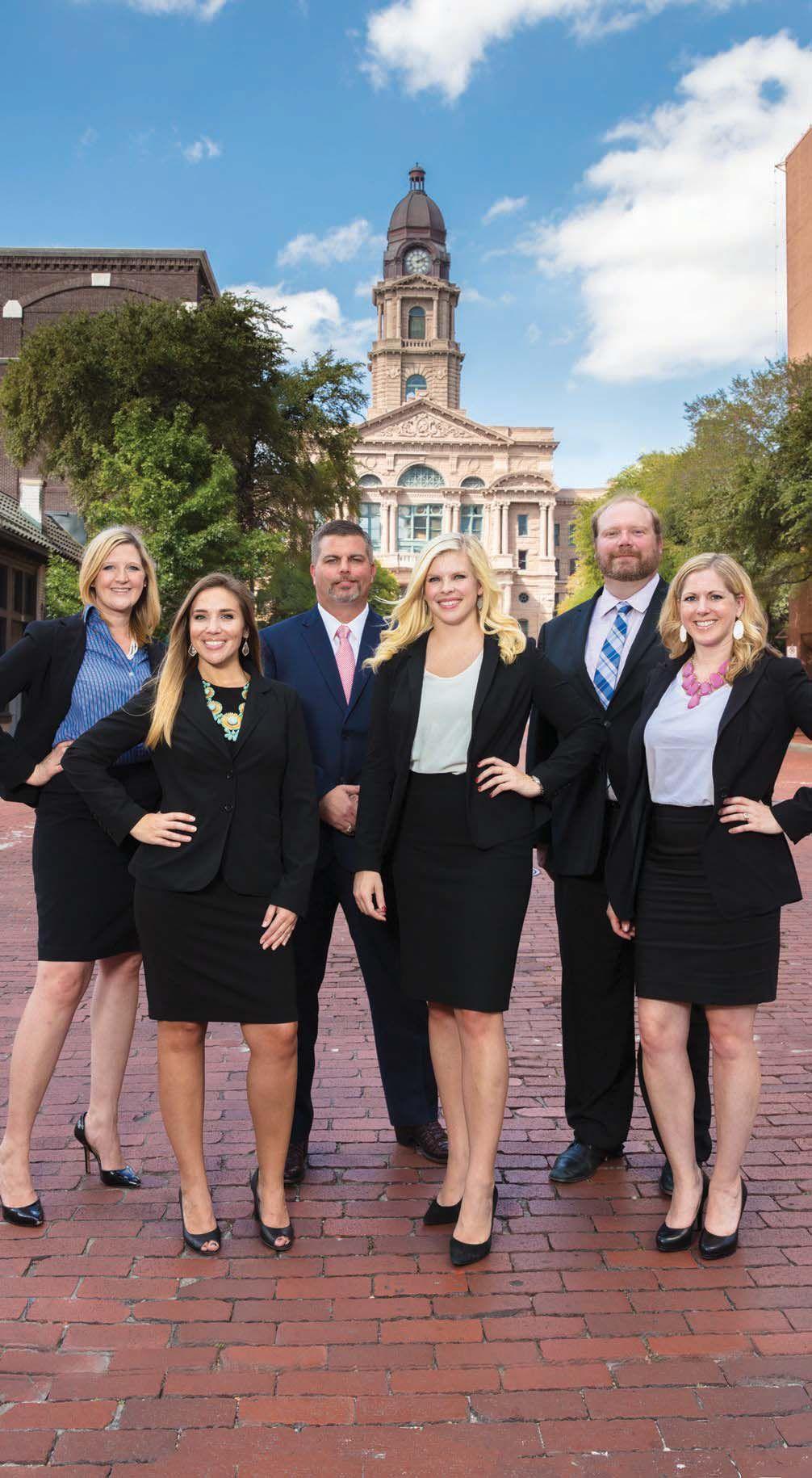
FIRM FOCUS: Family Law and Criminal Defense. PREFERRED CASES: High Conflict Divorce Litigation; Custody Fights, including Jury Trials; Family Violence Defense; Sex Crimes Defense. WHAT SETS US APART: “We have a team of attorneys with a mastery of procedure, evidence and trial dynamics. We bring experience, knowledge, resources and determination to your case from the initial client meeting through final disposition. We use these skills to even the playing field and ensure that our clients have the best opportunity to achieve a favorable result.” FIRM’S MISSION: Win every case. MOTTO: No matter what, go in court and be a tiger! PICTURED: (left to right) Melissa Swan, Alison Porterfield, P. Micheal Schneider, Jessica Phillips, Trent Marshall and Emily LaChance.
CONTACT INFORMATION: 76102
TeamSLF.com info@clientdrivenlaw.com

SPECIALTY: Board Certified Family Law Specialist, Family Law Mediator and Collaborative Attorney. EDUCATION/CERTIFICATIONS: B.A., Southern Methodist University; J.D., Southern Methodist University School of Law; Board Certified by State Bar of Texas in Family Law. HONORS/AWARDS: Texas Super Lawyer; Arlington Family Law Attorney of the Year; Top Attorney, Family Law, Fort Worth Magazine PROFESSIONAL MEMBERSHIPS: Texas Academy of Family Law Specialists; Arlington Bar Association; Tarrant County Family Law Bar Association; Tarrant County Bar Association. GREATEST PROFESIONAL ACHIEVEMENT: Being sworn in by Chief Justice Rehnquist to practice before the United States Supreme Court in 2000. APPROACH TO LAW: We strive to provide the highest level of legal expertise tempered with an empathy and understanding of the great
emotional challenges clients are fa cing in their family law cases. WHAT SETS THEM APART: Experience and expertise. MOTTO: When your family and finances matter, experience counts. SPECIAL INTERESTS: Girls Inc.; Arlington Animal Shelter. FREE ADVICE: Do not marry with the expectation you can change your spouse. The only person you can change is yourself.
PICTURED: Attorneys Donna J. Smiedt, Rashelle D. Fetty, Desaray R. Muma and Amanda N. Rodriguez.
CONTACT INFORMATION: arlingtondivorces.com

FOCUS OF PRACTICE: Collaborative Law, Family Law, Mediation, Estate Planning. EDUCATION/ CERTIFICATION: Board Certified in Family Law; J.D., Texas Wesleyan; LL.M, Pepperdine University School of Law; B.A., University of Houston. AWARDS: Nominated by peers as a Super Lawyer Rising Star, 2014 and 2015. PROFESSIONAL ACHIEVEMENTS: Past President of Northeast Tarrant County Bar Association, Chairperson of the Collaborative Law Section of the Tarrant County Bar, graduated second in law school class, magna cum laude. WHY I CHOSE THE LEGAL FIELD: I was a mediator prior to going to law school, and I mediated family law cases. In the process of going to law school to become a better mediator, I discovered collaborative law, a field I am passionate about. MISSION: I am proud to have dedicated my practice to solving disputes by utilizing alternative methods such as collaborative law, mediation and arbitration. I strive to help families navigate through tough times and empower clients to make decisions for their families without asking for court intervention, if at all possible. ADVICE: Always consider alternatives prior to litigation. Thoroughly research all your options before deciding on counsel, and make sure that whomever you choose to represent you shares your method of problem-solving and that you have a shared vision of the general direction of your case. PICTURED: Kate Smith.

EXPERTISE: The firm’s practice is focused on labor and employment law, civil trials and appeals in federal and state courts, administrative proceedings, and arbitration. EDUCATION/CERTIFICATIONS: Rod Tanner – B.A., English Literature with Honors, University of Texas at Austin, 1973; J.D., University of Texas School of Law, 1976; Board Certified in labor and employment law by the Texas Board of Legal Specialization since 1990. Charles Hairston -- B.A., Post Soviet and Eastern European Studies, University of Texas at Austin, 1994; J.D. With Distinction, Emory University School of Law, 1998; EXPERIENCE: Tanner, the founding shareholder of Tanner and Associates, PC, has 41 years of legal experience. Hairston has 20 years of legal experience. WHAT SETS THEM APART: The unique practice niche. The firm has a national union-side labor law practice and a statewide employment law practice. Tanner, a Fellow in the prestigious College of Labor
and Employment Lawyers, is widely recognized as one of the country’s preeminent labor lawyers. MISSION: Recognizing that the noble purpose of our labor laws is to establish justice in the workplace, the firm’s mission is to provide legal services in labor and employment matters of the highest quality. MOTTO: Always exhibit grace under pressure. FREE ADVICE: Employees, unions and employers must be proactive in legal matters so as to avoid being overtaken by events. PICTURED: Rod Tanner.
CONTACT INFORMATION: rodtannerlaw.com rtanner@rodtannerlaw.com
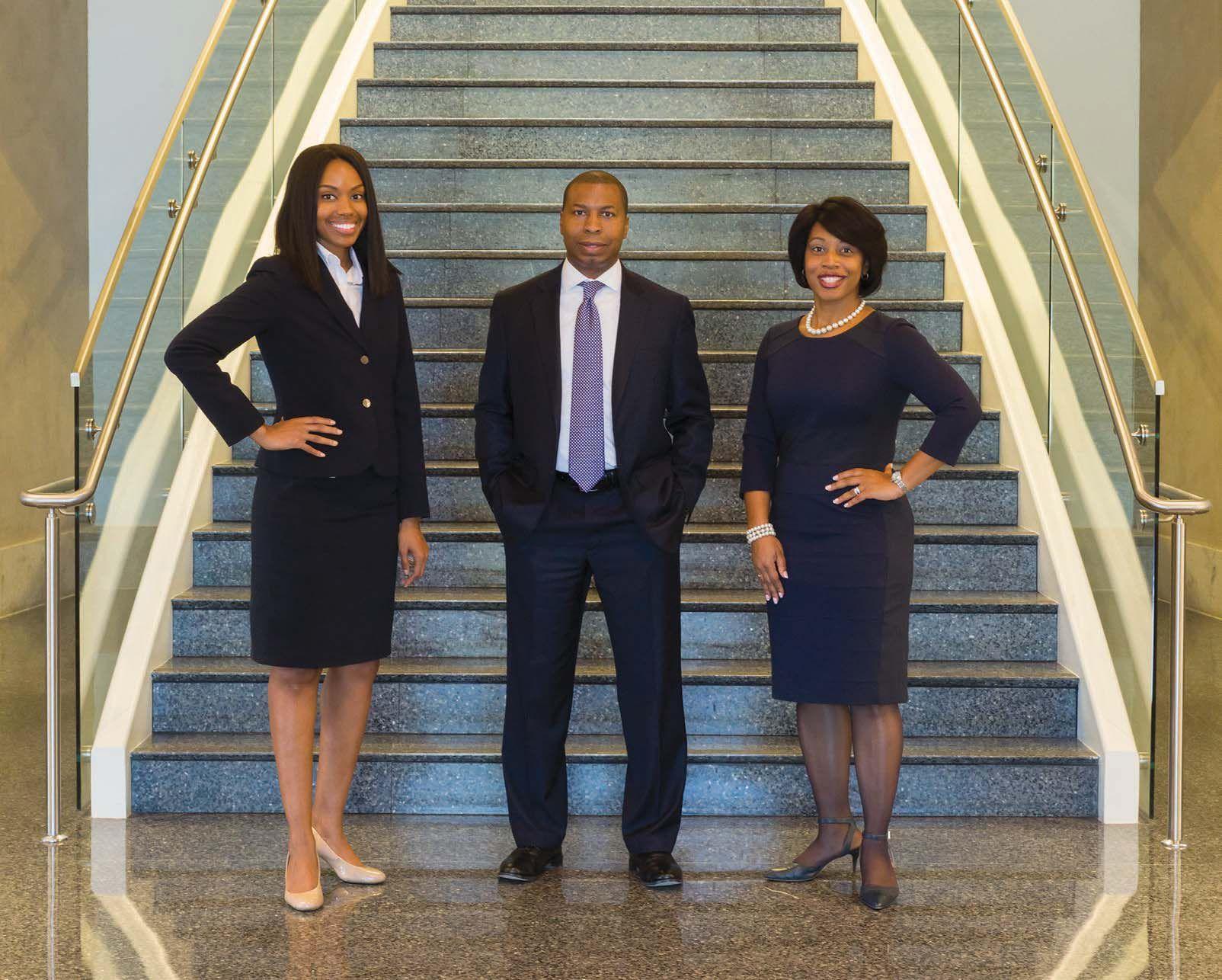
SPECIALTY: Plaintiff’s Personal Injury. EDUCATION: Nate – BBA, University of North Texas; MBA, University of North Texas; JD, South Texas College of Law. Katrina – BBA, University of Houston; JD, Texas Wesleyan University School of Law. Keshia – BBA, Southern Methodist University; JD, Southern Methodist University School of Law. AWARDS/HONORS: Life Member of the Million Dollar Forum, Life Member of the Multi-Million Dollar Forum, Lawyers of Distinction. GREATEST PROFESSIONAL ACHIEVEMENT: Obtaining a confidential seven-figure settlement for a young man with catastrophic injuries from an insurance company that denied all liability just two months earlier. WHY THEY CHOSE THE LEGAL FIELD: To be a voice for those that are unable to speak for themselves. APPROACH TO LAW: Our approach is based upon something that a great judge once told us: “If you prepare for a settlement, you get a trial. If you prepare for
a trial, you get a good settlement.” We assume from the start that we are going to have to tell our client’s story to twelve strangers at trial. FREE ADVICE: Protect the family. Our relationships with our families matter more than money or titles. When the Washington Firm tackles a serious injury or wrongful death case, our goal is to achieve an outcome that protects the family. PICTURED: Nate Washington, Esq.; Katrina Washington, Esq.; Keshia Barnes, Esq.
CONTACT INFORMATION:
theWfirm.com info@thewfirm.com

SPECIALTY: Personal Injury – car wrecks. EDUCATION: Texas A&M, B.A. in English; Texas A&M School of Law, J.D. AWARDS/HONORS: Graduated third in class at Texas A&M School of Law. PROFESSIONAL MEMBERSHIPS/AFFILIATIONS: Tarrant County Trial Lawyers Association Board of Directors; Texas Trial Lawyers Association; Tarrant County Young Lawyers Association. WHY HE CHOSE THE LEGAL FIELD: I wanted to help those that could not help themselves. APPROACH TO LAW: Our practice is based on three principles: 1) Educating our clients on the confusing legal process their case involves; 2) Keeping our clients updated and informed on their case status; 3) Fighting for justice for our clients. FREE ADVICE: Insurance companies will try to lowball you with their first offers. Speak with an attorney before accepting the first offer for settlement. PICTURED: Ben E. Westbrook.
CONTACT INFORMATION: westbrooklawfirm.com office@westbrooklawfirm.com
From selling Girl Scout cookies to launching a fastgrowing marketing agency, a Fort Worth entrepreneur finds a foothold in sneakers.
BY SCOTT NISHIMURA PHOTOGRAPHY BY CHARLES LAMBERT
Tara Wilson remembers her start as an entrepreneur. “I tell people I became an entrepreneur when I was in second grade and I was selling Girl Scout cookies,” Wilson says. “My mother wanted me to have some life skills, so she made me sell my own Girl Scout cookies.” How? By cold-calling in the family’s northwest Arkansas hometown of 1,400. Wilson, who maintained sales records and used them to upsell her old customers each new season, majored in finance at Auburn University and moved from there into 10 years as a financial adviser for Merrill Lynch in Fort Worth. She’s changed careers twice – into event planning and then into experiential marketing. Wilson expected her Tara Wilson Agency in Fort Worth to hit “right close to” $3 million in 2017 revenue, up from $2.3 million in 2016. With six employees and clients like Nike and Samsung, “my goal for the agency for 2018 is $5 million,” Wilson, 41, says. A marathon runner, Wilson in 2014 launched the Entrepreneurs’ Organization Fort Worth Chapter Accelerator program to nurture entrepreneurs who don’t have the $1 million in annual revenue necessary for full EO membership.
Persistence pays: One of my favorite [cookie] stories was there was a man in my hometown named Butch, and Butch was known for buying a case of cookies. My mother would have me call him, and he would tell me no, because he had another Girl Scout he always bought from. Finally, one year, the girl he normally bought from was not selling cookies, and he bought from me.
Career Change
1: I used events as a marketing tool at Merrill Lynch. I hosted golf outings to get prospects in the door, and I found I was really passionate about planning. At the beginning of 2007, I decided to
make the transition.
Career Change 2: I developed a reputation as a leading wedding planner. I also did corporate and nonprofit events. I found the corporate accounts did business with me year after year, and the light bulb went on. This is where EO comes in. In Accelerator, we talk a lot about scaling your business. To build a business that somebody wants to buy, that has an impact, I needed to build a business that could be scaled.
Just Do It: In January 2015, I changed our name to Tara Wilson Agency from Tara Wilson Events. We had no clients. I had one employee. We sat down
and made a list of big companies that utilized experiential marketing. Nike was the biggest one. I’m an athlete, and I’ve always been devoted to the product. They do tons of experiential marketing.
That month, Wilson reached out to a friend who once worked at Nike, who pinged a friend still there, who connected with Wilson in April and agreed to lunch in Dallas. He saw we were nice people, he gave us a tour of the Dallas office, and he agreed to introduce us to the head team person in the central territory for Nike, in Chicago. The guy responded immediately
and said, hey, great, but I’m not the person you want to talk to. You want to talk to this guy. I reached out, and I got an appointment on [that executive’s] calendar in Chicago. In that meeting, he kept saying ‘I believe in fishing where the fish are. I believe you should do work for Nike in Dallas-Fort Worth [not Chicago]; I’ll make some introductions to the Dallas-Fort Worth team.’ Two weeks go by. We went and bought a green fishing pole and lures, and we overnighted it to him. The next day, his assistant made the introductions. Finally, in August, we got a meeting. When I met her, she commented on my lipstick. Nothing happened. So we went
and bought the red lipstick that I wear, and we put it in a lacquered box with a really great note, and we couriered it to her. That same day, she set up the meeting.
Working with Nike: Nike goes on college campuses where they sponsor the athletics program. We create a workout. Students get to demo the product. At the end, we let the students know they get to keep the performance wear. And because they have to register through the Nike app, it drives engagement. Millennials like to engage with the product before they buy it. We do Campus Attack nationally. We also work with Nike at the retail level.



Congratulations to David Wesson, our Founder, for becoming a FW Inc. 2018 Entrepreneur of Excellence finalist.
David Wesson started his career in Halliburton’s Tools Research and Engineering Department upon graduation from Texas A&M University in 1982. His creativity and innovation around problem solving at such an early stage in his career did not go unnoticed, as he was quickly promoted to Engineering Manager of Halliburton’s Vann Systems TCP Division. TCP, aka Tubing Conveyed Perforating, was a revolutionary perforating technique during that time. Mr. Wesson left Halliburton to join a true pioneer, Harrold Owen, at Owen Oil Tools in 1991. Owen Oil Tools was a family-owned and operated entity prior to David’s arrival. It is noteworthy that Mr. Wesson was the sole non-family principal and executive of Owen Oil Tools. Serving as President of the company, he lead the company from a relatively small oil tool design and manufacturing company to an international distribution and service company on through their acquisition by Core Laboratories. He continued to serve as Vice-President of Core Laboratories from 1998-2001. While at Owen, David co-founded Probe Technology Services and remained active on the Probe Board until 2016. In 2003, Mr. Wesson founded GeoDynamics , Inc. with a handful of business associates and continues to lead the company as President and CEO with over 370 employees and international locations. Named as inventor or co-inventor on more than seventy (70) US Patents and patents pending, Mr. Wesson also has extensive patent licensing and technology commercialization experience. He is a registered professional engineer (TX 61016) and holds a BS degree in Engineering from Texas A&M University (1982) and an MBA degree Southern Methodist University (EMBA 2004). David founded the Aggie Angel Network in 2010 and serves as an Advisor to the Center for New Ventures and Entrepreneurship at Mays Business School, Texas A&M University.
GEODynamics creates and delivers downhole solutions that enable unsurpassed oil and gas well economics, performance, and lifespan.
GEODynamics is the industry’s leading researcher, developer, and manufacturer of engineered solutions to connect the wellbore with the formation in oil and gas well completions. GEODynamics’ solution-oriented product line spans the life of a well from advanced perforating systems (including its patented REACTIVE® and CONNEX® perforating technologies and FracIQ™ Limited Entry Perforating Systems), an innovative line of patented well completion tools (including our patented SmartStart Plus™ Test, Inject and Frac Valves and our FracTrap™ Composite FracPlug technology). To end the life of the well, we have our patented well abandonment tools including Eclipse™ Casing Removal Systems, ABC™ Annular Perforating Systems, Bridge Plugs and Cement Retainers, Setting Equipment, and Jet Cutters.
GEODynamics has its headquarters, engineering, laboratory and manufacturing facilities near Millsap, Texas and complete technical services and sales center in Aberdeen, Scotland; technical sales offices in The Woodlands, Texas; Fort Worth, Texas; Denver, Colorado; Villa Hermosa, Mexico, and Calgary, Alberta, Canada; nine U.S. distribution centers; and additional international sales and support locations through regional sales and service partnerships. GEODynamics also operates one of the most advanced engineering and testing facility in the industry (GTEC), geared towards developing and optimizing ballistic systems used in perforated completions and also complete hostile environment evaluations of completion systems. GTEC has conducted perforating tests in over 10,000 natural formation cores, the most in the industry. Our engineers have the products, lab resources, and software modeling tools to maximize productivity, reduce risk, and reduce costs of any oil and gas well.

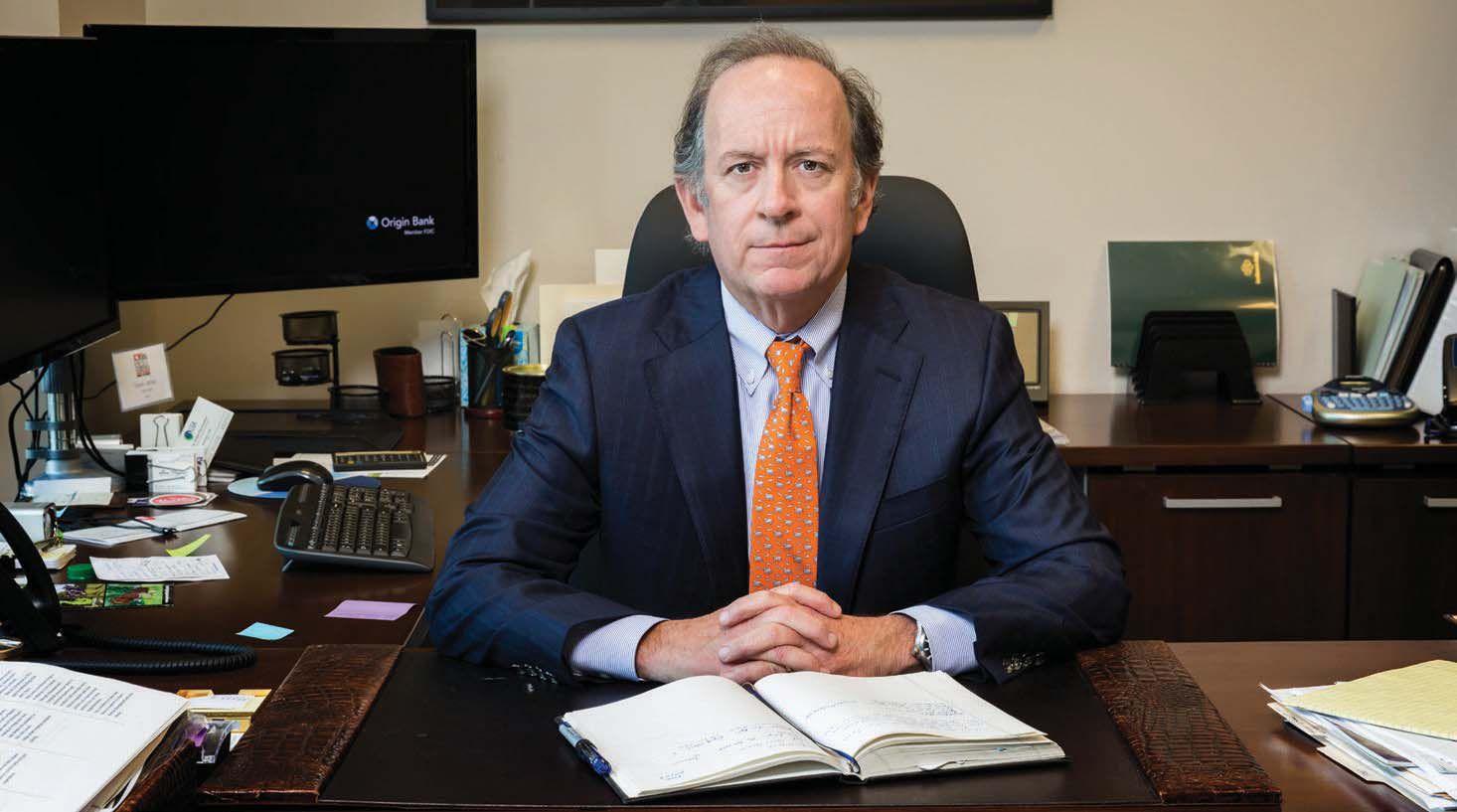
A Fort Worth bank executive gives up a comfortable post for one building a community bank’s presence in Tarrant County, and doesn’t regret it.
BY JASON FORREST Forrest Performance Group
If Grant James was one thing in the late 2000s, it was comfortable.
Over the previous 30 years, James had built up an entire career’s worth of experience in the Fort Worth banking industry. After all, it was in his blood. His family was an integral part of a major bank in Oklahoma City, and when he graduated from TCU in 1980, he immediately launched into his banking career at a local bank. Over the next 30 years, he stayed in Fort Worth and found himself with Bank of Texas in 2007 after it bought out Worth National Bank.
James was happy and comfortable at Bank of Texas. It was a big enough organization to support the things he wanted to do as well as the goals he had for the bank’s future. But when a relatively unknown bank to James named Community Trust Bank came calling in 2009, he was intrigued.
The task that lay before James was whether to take this leap of faith with a new, exciting community banking venture, or stay in his comfort zone. This was James’s run-toward-the-roar moment, and after some thought, he planned to meet it head on.
“I had enough input from people I trusted to really take a pretty big chance,” says James, Tarrant County regional president of the bank, which renamed itself Origin Bank in 2015. “I didn’t know whether I’d land on my feet or not, but I knew that I had enough support from people that, whether it was folks I worked with in the community or customers former or future, I knew I was willing to take that chance.”
Sometimes the safest place to be is the one that feels the scariest. Humans sometimes have an instinctive desire to shy away from pursuits that look and

sound scary. But often, running toward those challenges and conflicts is the best (or only) way to grow and meet our goals. In business, those who run from the deafening noise never reach their full potential, while those who turn and face the fear thrive.
This is what James did in the summer of 2009. He left an enticing offer from Bank of Texas to be regional president of Community Trust’s Fort Worth location in 2009, and he’s never looked back. Origin Bank has its headquarters in Ruston, Louisiana, and it has 20 Texas locations, three in Fort Worth. At the time, the bank had little profile in North Texas, and James was the tip of the spear in starting up the Fort Worth branch. There would be sleepless nights, growing pains and all the expected difficulties that go along with starting something new.
And yet now, looking back at the last seven years, James can’t help but marvel at what his team has been able to accomplish. They’ve met their lofty revenue goals five of seven years, and James chalks that up to good hiring and a wholehearted willingness to run toward the roar.
“No question it builds confidence
when you learn lessons about your ability, when you accomplish things that reaffirm your skill set or your style,” James says. “You have these little successes along the way; not only is it reaffirming to me that what we’re doing is right, but it’s reaffirming to other people. It’s so rewarding because it’s scary to ask somebody to leave whatever it is that might be safe to them. And you convince them that this is going to work. You’ll be glad you did this, and I won’t let you down; I’ve got your back. To be able to execute on that and actually achieve it, it just makes it all worthwhile.”
The culture James and his team built up around the bank played no small part in Origin Bank’s success in one of their newer markets. Origin Bank was named No. 3 on the FW Inc. Best Companies to Work For small business list in 2017. Employees love things like the company’s wellness programs, team outings, lucrative incentive bonuses and tuition reimbursement.
But the real joy for James has been the bank’s impact on the community. What’s he most proud of?
“I didn’t know whether I’d land on my feet or not, but I knew that I had enough support from people; I knew I was willing to take that chance.”
– Grant James, Origin Bank
Banking is in James’ blood, and it shows. Whether he’s talking about the culture he’s helped shape or the thousands of people Origin Bank helped along the way, James can’t hide his excitement around what they’ve built in Fort Worth in a short seven years. If there’s anything his career has taught him, it’s that sprinting toward the unknown reaps way more benefits than running from the roar.
“To think that I might not have done the things I’ve done when I left the comfort of some big institutional operation, or to stay some place where other people are making all the decisions, to look back and think I might not have done those things, it’s a relief that I did,” James says. “I don’t want to end this career and look back thinking, I could’ve done a lot more and had a lot more fun and had a much bigger impact. I look back and I think that I’ve done a lot, and I’ve helped a lot of people do things they never thought they would be able to do. And that’s rewarding.”



“The impact we’ve made on some individuals and companies that are customers of ours [and] that we’ve been able to save and take them off life support and get them back in the game,” James says.
Jason Forrest is CEO of Forrest Performance Group, a global leader and designer of sales, management, and corporate training programs. The company has made the Inc. 5000 list of fastest-growing U.S. companies two years in a row. Forrest grew up under the influence his father, a business owner and professional salesman, and mother, a persuasive speaking professor. Jason writes this column for each issue of FW Inc.
Presenting Sponsor
Supporting Sponsors

FW
Commercial Construction
Nolan Bradshaw Cornerstone Projects Group
Health Care & Life Sciences
Dr. Kevin James Advanced Spine & Orthopedics
Hospitality
Brent Tipps BoomerJack’s Grill & Bar
Manufacturing & Distribution
David Wesson GEODynamics
Media Communications & Public Relations
Randall Meinen Qualbe Marketing Group Professional
Bruce
Residential
Retail
Transportation & Logistics
Stanley Baker Jr., Baker Aviation LLC
Supporter of Entrepreneurship
“Special Recognition Award”
Tamara Payne and Dawn Shannon Ensemble Coworking





























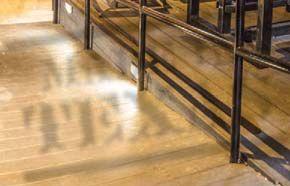

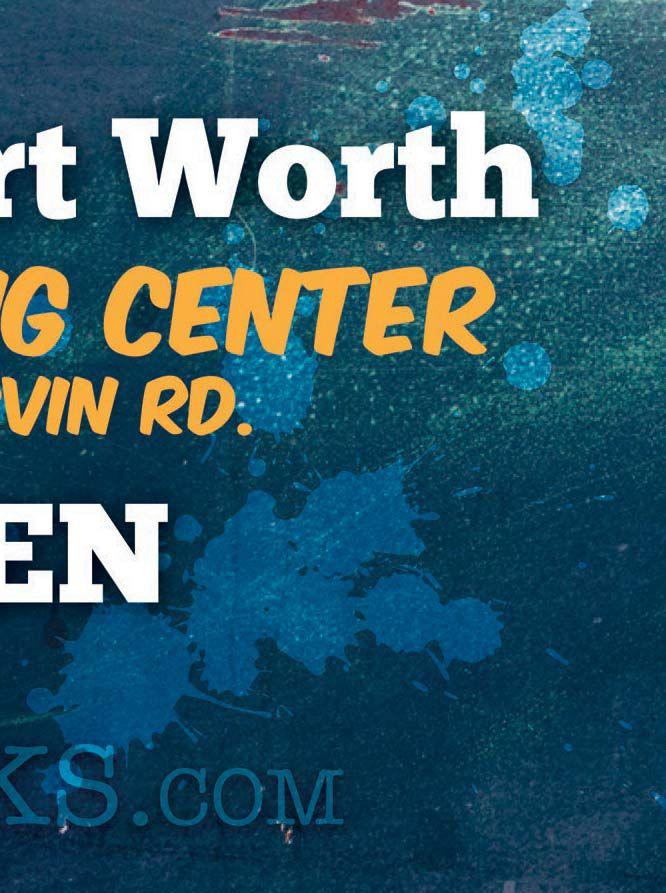
Small business/entrepreneurs stand as key pillar in Chamber’s strategic plan
BY BRANDOM GENGELBACH
President
Last month, the Fort Worth Chamber of Commerce unveiled our four-year, fourpillar strategic plan, “Fortify.”
The plan blends vision with ambitions and sound business sense, including increased levels of regional collaboration.
We’re opening new roads toward building Fort Worth into a major international business hub, a model of urban planning, and an even more robust cultural center. But the plan also focuses on strengthening the backbone of this business community: small businesses and entrepreneurs, who drive the local economy and make up more than 90 percent of the Chamber’s membership.
That’s why the Chamber’s new organizational structure devotes one of the plan’s four pillars to Small Business and Entrepreneur Support, along with Advocacy; Talent Development, Attraction and Retention; and Business Attraction, Expansion and Retention.
It’s important to note that many groups and individuals informed the Chamber’s plan development as it took shape during a year’s work – from community leaders and young professionals to Chamber members and visionaries such as Rising Tide Initiative, TECH Fort Worth, Cowtown Angels and Fort Worth’s Business Assistance Center.
What we heard from every direction was the need to keep small business and entrepreneurs top-of-mind, a Chamber
priority throughout its 135-year history. So within the Small Business and Entrepreneur Support pillar are three measurable and attainable annual goals with strategies for each.
Annual Goal 1. Develop free entrepreneur and small business support services. Strategies:
• Investigate, identify and implement resources to develop or market to start and grow a business.
• Develop a personal connections team to help problem-solving for new businesses and new contacts in the Fort Worth area.
• Celebrate and recognize the businesses and individuals that are contributing to the growth, energy and brand of Fort Worth.
• Work with local foundations and nonprofits to develop a pool of financial resources to help small businesses. Annual Goal 2. Help establish a Start-Up Fort Worth Foundation. Strategies:
• Work with local entrepreneur resources to identify what the current Fort Worth entrepreneurial ecosystem looks like.
• Develop a strategy to address what alignment, structure and service offerings are needed to grow Fort Worth as an entrepreneurial hub.
• Begin offering relevant services to develop our entrepreneurial ecosystem.
Annual Goal 3. Investigate, with the City of Fort Worth, implementing incubators and innovation labs around target and emerging industries. Strategies:
• Work with the city to identify business stakeholders, funding and location for a logistics and distribution and geotechnical engineering innovation lab.
• Bring groups together to identify a strategy.
• Investigate the development of a business incubator around health care.
By 2022, we aim to increase Fort Worth-area startups by 10 percent and achieve Top 20 status in national entrepreneur rankings in at least one category. These goals are essential steps, but the Chamber’s strategic plan includes additional plans to benefit small businesses and entrepreneurs as we seek to leverage resources ranging from institutions of higher education to expertise within the public and private sectors.
For instance, the Advocacy pillar calls for increased small-business and entrepreneur engagement in the advocacy process, including representation on all advocacy committees and the establishment of a Small Business Advocacy Council.
And, of course, small businesses and entrepreneurs inherently stand to gain from all initiatives within the strategic plan.
Wide-open opportunities await small businesses and entrepreneurs as Fort Worth’s economic development momentum fuels greater prosperity and quality of life for all.

Gengelbach is executive vice president of economic development for the Fort Worth
of Commerce. He writes this column for each issue of FW Inc.

































Supreme Court’s ruling on where patent cases can be filed means an East Texas federal court is no longer an easy venue for plaintiffs.
BY BRIAN K. YOST Shareholder Decker Jones, P.C.
In sports, the team playing on its home field often has the advantage. The same can be said with respect to litigation. Any patent infringement attorney worth his/her salt spends much time carefully considering the available options before choosing the optimal place to bring a particular piece of patent litigation. Such deliberation takes place in order to obtain the legal equivalent of a home field.
But in TC Heartland v. Kraft Foods, the U.S. Supreme Court transformed the dynamics of patent litigation. No longer can domestic companies be sued in a venue simply because of certain “minimum contacts.”
Rather, a company accused of patent infringement must be sued in the judicial district in which it is incorporated, or the district where it has a regular and established place of business, provided it’s accused of committing acts of infringement there. East Texas looks to suffer the brunt of this decision.
If statistics are an indicator, the home field for plaintiffs filing patent litigation has been in East Texas, and, in particular, the small town of Marshall.
Researchers studying patent filings found that between 2014 and mid-2016 a Marshall judge was assigned over 3,000 new patent suits.
Astoundingly, this number was more than the patent total of all district
If statistics are an indicator, the home field for plaintiffs filing patent litigation has been in East Texas, and, in particular, the small town of Marshall.
courts in the states of California, Florida and New York combined. In 2015, over 40 percent of all patent cases filed nationwide landed in the federal courts for the Eastern District of Texas.
Even within the State of Texas, that the Eastern District would be considered so popular is remarkable. Houston, San Antonio, Dallas, Austin, Fort Worth and El Paso are, by population, respectively the 4th, 7th, 9th, 11th, 16th and 20th largest cities in the United States. Further, East Texas is not home of the high-tech industry. In fact, one study concluded that less than 2 percent of the patent cases
filed there involved technology that was invented there.
Many reasons have been posited over the years as to the allure of the Eastern District to patent plaintiffs. These include such factors as the experience of the judiciary, speed with which cases can be brought to trial, sympathetic juries, and other, even less tangible explanations.
Though cases will, no doubt, continue to be filed in East Texas, it can be expected that more cases will be filed in other districts and in other states.
The new hotbed? Delaware. Delaware is home to more than half of the U.S.’ largest public corporations. In the sixmonth period following the TC Heartland decision, Delaware witnessed a sharp increase in new patent filings. Conversely, during this same period, the Eastern District of Texas’ patent filings declined dramatically. So much so, in fact, Delaware appears to be well on its way to becoming the district with the most patent cases pending.
Is it time to say “goodbye home field advantage” or, rather, is another venue and another party merely greeting the advantage at the door? Time will tell.
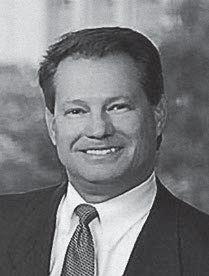



























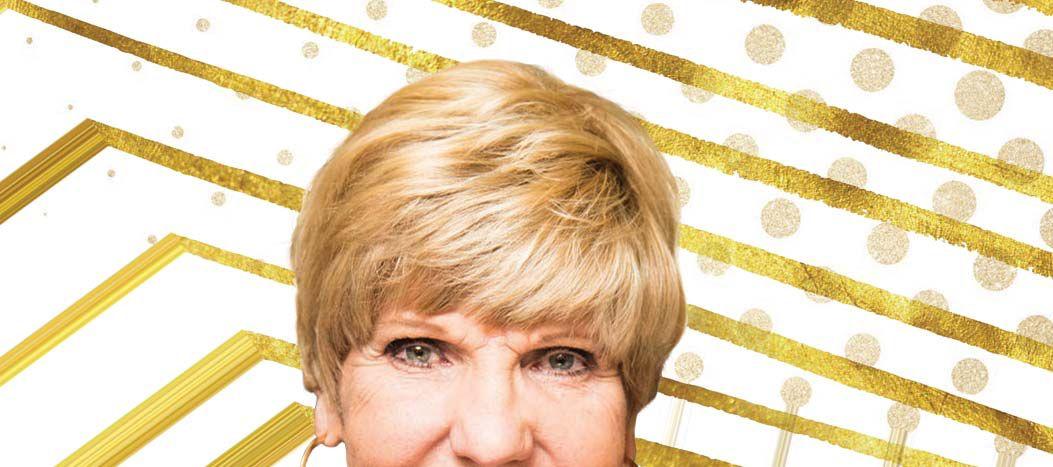







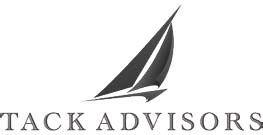






www.eofortworth.org







Fort Worth’s new economic plan looks to push the city into competition for high-profile projects, make us a creative hub, and ensure a vibrant community.
BY DEREK BUCHANAN Chairman, Economic Development Committee
If you follow commercial real estate issues at all, you know we like to hire outside consultants to study things. These studies determine lots of things — the direction for the transportation master plan; the fees developers will pay for roadways; and most currently, the new strategic plan for economic development.
In December, the City of Fort Worth unveiled its new, 500-page plan and called on several partners to be involved in its execution. The overarching vision is to compete successfully on the national and international stage for creative, high-growth businesses and the talented individuals who fuel them. There are three main goals:
Establish Fort Worth’s Competitive Edge: In the Dallas-Fort Worth metroplex, dozens of communities vie for projects large and small. Fort Worth must make a wholehearted commitment to compete for high-profile projects with high-paying jobs. This involves a new marketing strategy, a redesign of business retention and expansion, and expanding employerled partnerships to address critical workforce issues.
Become a Hub for Creative Business: Fort Worth already has many of the
Fort Worth is currently the 16th largest city in America and is well on its way to becoming the 12th largest city. The trouble is Fort Worth is viewed as the 45th largest city...
ingredients needed to become a major hub for creative businesses. Designating the Near Southside as a medical innovation district, expanding the reach of the entrepreneurs networking among the city’s startup and tech communities and further developing art festivals on a national and international level are steps needed to make Fort Worth known as a hub for creative business. In this issue of FW Inc. alone, you can recognize the talent pool we have in front of us for creative business.
Ensure Community Vitality: Quality of place is an essential component of a successful economic development strategy. The strength of neighborhoods, of connectivity among different districts of the city, and of urban amenities is what makes cities attractive to talented individuals and to dynamic businesses. Luckily, Fort Worth is filled with great places, but the creation of new incen-
tives and coordinated programs to rapidly accelerate development in the city’s urban core is needed.
The place to start is by creating a much greater density of residential development in downtown, while including new hotels, an expanded higher education presence, and new office construction. Employment growth and business investment in the downtown will generate citywide benefits, but the plan also calls for a more targeted approach to encourage economic development in Fort Worth’s neighborhoods and commercial corridors.
Lastly, a major reorganization is required in the way the City of Fort Worth provides services to support the growth of independent, locally owned small businesses, including minorityowned firms.
Fort Worth is currently the 16th largest city in America and is well on its way to becoming the 12th largest city. The trouble is Fort Worth is viewed as the 45th largest city and is also well on its way to becoming the premier bedroom community of Dallas. Never shying away from a challenge, the new plan calls on lots of partners to work together for the greater good. This is one study that cannot be shelved, unfunded or ignored. Our very well-being depends on it.



Numbers don’t lie. Fort Worth Magazine reaches more social media users than any other publication in the city. Our dedicated digital staff works diligently to bring an added value to advertisers by delivering your message directly to our readers. We bring Fort Worth to your fingertips.
Fort Worth Magazine. Where Digital Begins. Where the Best Begins.
800.856.2032 FWTX.COM
Fort Worth investor Hal Lambert’s GOP-leaning fund’s up 11.48 percent since its September launch.
BY SCOTT NISHIMURA
The idea was simple: Create an exchange-traded fund from the stocks of the largest U.S. companies with the greatest Republican campaign contributors.
The Point Bridge GOP Stock Tracker ETF, launched Sept. 7 by Fort Worth investor Hal Lambert’s Point Bridge Capital, was up 11.48 percent through December. The ETF, which trades under the stock symbol MAGA, or Make America Great Again, the slogan promoted by President Donald Trump, contains the stocks of 150 companies, all from the S&P 500 index of large companies.
“If you believe in free markets and you want less government and you want lower taxes, shouldn’t your investments support companies that have that view?” Lambert, who has invested for years through Point Bridge Capital and has about $300 million in assets under management, says.
While social investing has been on the scene for some time, with mixed results, “nobody’s ever done a political ETF,” Lambert says.
To put the fund together, Lambert drew records of major political contributions from people who work for companies represented in the S&P 500 major market index, as well as contributions from those companies’ political action committees.
Lambert looked at data from the 2016 and 2012 presidential races and 2014 and 2012 congressional races. He identified the top 150 Republican-supported companies. “You start with very quality companies,” he says.
Companies among the initial 150 –
the index will be rebalanced quarterly – include AT&T, Boeing, Lockheed Martin and Berkshire Hathaway. Berkshire’s CEO Warren Buffett is a noted Democrat, but substantial Republican support from Berkshire’s Fort Worthbased Burlington Northern unit threw Berkshire into the ETF, Lambert said.
The fund’s market value is currently $32.8 million.
The fund’s 10 largest holdings are Victoria’s Secret parent L Brands, W.W. Grainger, PulteGroup, Deere & Co., AutoZone, Marathon Oil, Helmerich & Payne, Valero Energy, Fluor Corp., and Charles Schwab.
Its largest industry weights as of Nov. 30 are industrials, 21.2 percent; financials, 20.8; energy, 16.8; consumer discretionary, 10; health care, 8.5; utilities, 6.8; basic materials, 6.6; consumer staples, 5; real estate, 3.2; information technology, 0.6; and telecom, 0.6.
Financials, industrials and energy are significantly heavy-weighted compared to the S&P 500 (14.5 percent, 10 percent, and 6 percent). Technology is significantly underweighted, logical, given the tech sector’s big Democrat contributors, Lambert says.
The etf.com site points out that MAGA’s 0.72 percent expense ratio is “pricey” compared to the ETF average at 0.5 percent. “The fund is pricey for narrow U.S. large-cap exposure but may be worth it to investors who want to express a political view,” the site says.
Lambert says, “ETF fees are lower than mutual fund fees on average, and [ETFs] have the benefit of being able to trade during the market like a stock.”
Fidelity Investments develops paydown benefit for employees, offers program to client employers as a workplace benefit.
BY FW INC. STAFF
Kirsten Diehl, a financial associate for Fidelity Investments in Westlake, knows a little about student debt. She racked up a total $96,000 in debt from undergraduate and graduate studies.
“I couldn’t afford to live on my own, so I lived with my parents until I started a job” with Fidelity in Westlake, she says.
Diehl is one of 44 million Americans with outstanding student loans of more than a total $1.4 trillion. Her employer has launched a program to help associates pay down their student debt. More than 6,000 Fidelity associates are taking part in the program, started last year, and are receiving $167 monthly contributions against their student loans, up to the maximum $10,000 per employee.
Fidelity also now offers the program to client employers as a workplace benefit. “Seventy percent of college graduates will start their careers with an average student loan balance of $37,000,” Diehl says. “Debt levels at that scale have many people looking for jobs with employers who offer benefits to help address those loans. Research shows that 86 percent of young workers would commit to an employer for five years if they helped pay off their student loans.”
Information: 877-241-4414




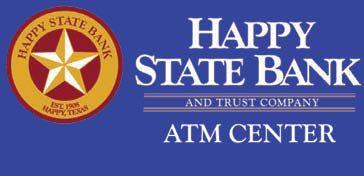


Young CPAs exchange views on work-life balance and getting ahead, and, not surprisingly, their concerns reflect those experienced by many other professionals.
BY NORMAN B. ROBBINS III, CPA Partner
M. Jones & Associates, P.C.
Times are good for licensed accounting professionals — CPAs — in North Texas. There’s plenty of work and opportunity, but a tight market for our skills is a doubleedged sword. Some of my colleagues struggle to balance the demands of work, home and community.
In mid-November, a group of CPAs younger than 40 organized a forum to discuss some of these issues and develop ideas for ourselves — and those up the chain of command — with the goal of helping us be stronger, better-balanced contributors. About 100 area CPAs got together to explore how to be more successful. Here are some of the questions we discussed.
Q: I’ve gotten a promotion and now have responsibility for several employees, but I don’t think I’ve got much authority to evaluate their work.
Increased responsibility without authority is a common issue in all kinds of organizations, especially fast-growing ones. One of our panelists, Andy Hall, CPA, advised fellow young professionals to ask for goals verifiable with data. If the new manager asks for success criteria, it can help both sides see what authority he or she will need to get the job done. Another CPA in the discussion advised colleagues to consider carefully before accepting new management roles.
Q: Although I’m really good at my current job, I think my management role is going to require some new skills. Asking for coaching or training can be
hard, because the ask implies you’re not ready for the role. It’s still OK to ask. Pointing out the new demands of your role is one way of clarifying expectations. Training offered through your professional or trade association might be a good start. As I moved into a senior role with my firm, I took an intensive leadership course offered by my association with peers from around the state, and it was an ideal segue into management responsibilities. I learned leadership skills that I can apply in business and at home.
Q: Now I’m the head of a team. Is it better to just give them a detailed task list or a vision for what we’re supposed to accomplish as a group, or what?
Amanda Lockhart, CPA, discussed this problem in terms of her work as a health care practice leader at her firm, saying it’s essential to share the “big picture” with the team. “If you just correct errors for people instead of providing feedback, their technical skills won’t improve, and they never will reach a point to see the overall goals and strategy,” she said. “Feedback is often difficult to both hear and provide. Communicate that the team’s success is at the core, and, hopefully, this will result in continuous improvement and buy-in from all team members.”
Q: When I first started my job, all the tasks I was performing were pretty easy to measure by time. Now, as a first-time manager, I’ve got more flexibility, but there’s a lot more competition for my attention.
Learning and changing time manage-
ment skills is a lifetime project. “I recommend setting aside a regular time for your team to ask questions and get clarification,” said Stephanie Shaner, CPA, a panelist. “That way, they know you always have time for them, and yet you can stay focused on your own performance and responsibilities.” Also, another CPA said to block out times in your day for you to accomplish specific tasks.
With new management roles come new communication paths. For example, a person moved into management in public accounting is going to have more client responsibility and contact. It’s very important to have a good grasp on the time required to handle that effectively.
Q: Work-life balance means different things at different times in life. How can you shift gears?
Jacob Briggs, CPA, argues that the key is to know one’s own strengths and tolerances. In his career, he’s been in positions where there is months-long work compression, followed by relatively light periods. He has also been in positions where there is a monthly period of work compression — for example, a month-end financial reporting close at a company. “The rhythm of a work cycle can actually enhance work-life balance,” he said. “If the pace of work is predictable — whether by season of the year or close of an accounting cycle — you can figure out whether you like that sort of pace and adjust your family time accordingly.”








Get it, use it, share it.
BY TONY FORD Success Fort Worth
For the past two years, I have had the privilege of serving as program director for the FW Inc. Entrepreneur of Excellence awards program. As I have worked side by side with Hal Brown, Brian Ritenour, Scott Nishimura, Natasha Freimark and all of the other terrific leaders at the magazine, a strong theme has emerged from our collective efforts: entrepreneurial passion.
It has been a terrific experience for another reason as well – it turns out that the folks at FW Inc. truly think, believe and act like the entrepreneurs they write about. They are not only committed to getting the facts right in every story, but also to conveying the drive and passion each entrepreneur feels for their ideas, employees and customers. I believe it is this commitment to revealing the heart of every entrepreneur that makes their stories compelling, practical and applicable to leading our companies.
The 2018 EOE finalists and winners profiled in this edition sat down with me and Scott to share their entrepreneurial passion and how it informed the decisions they made while growing their industry-leading companies. Many common themes kept bubbling to the surface as they shared their heartfelt stories of loss, gain and ultimate success.
Here are seven lessons we learned about entrepreneurial passion that may help you reach your goals in 2018:
“Entrepreneurial passion is attractive”: It takes our focus off of ourselves and places it on the dreams and abilities of others as we work together
toward a common goal. In this way, it is an unseen force that pulls like-minded, talented people into our orbit and unites us to seek answers and overcome obstacles as a team.
“Entrepreneurial passion is encouraging”: It refocuses our will on the tasks at hand by reminding us that we can do most anything we put our mind to. Remember, long-term gains often require short-term sacrifices. In those situations, it is our passion that encourages us to push through the hard times as we work toward success.
“Entrepreneurial passion is optimistic”: It provides a strong defense against the overwhelming negativity that exists in the world today. As so much bad news, political unrest and general confusion increase in our society, it lifts our eyes and spirits to what’s possible within our areas of influence instead of what’s wrong in the world around us.
“Entrepreneurial passion is satisfying”: It reinforces our belief that the skills and abilities we bring to our business are valuable, applicable and sufficient to accomplish our goals. Each time we overcome a big obstacle or uncover a potential opportunity, we gain the satisfaction necessary to try even harder the next time.
“Entrepreneurial passion is sustaining”: It fills the gaps when our brains and bodies tell us it’s time to give in and give up. Every entrepreneur faces burnout in some form during their long,
“Entrepreneurial passion is infectious; it filters throughout our entire company and results in new ideas and problem-solving solutions that keep us ahead of our competition.”
hard climb to success. Passion is the “eternal flame” that may flicker when adversity comes, but somehow manages to not be snuffed out.
“Entrepreneurial passion is required”: It is not too hard to pump up our passion when good things are happening in our business. However, to become a truly excellent entrepreneur requires a high level of commitment to consistently exhibit passion for our employees, customers, vendors and mission regardless of the circumstances.
“Entrepreneurial passion is infectious”: It filters throughout our entire company and results in new ideas and problem-solving solutions that keep us ahead of our competition. It also forms the foundation of our culture by giving every member of our team a voice in how we serve our customers. It is a simple formula for success: Passionate leaders + passionate employees = repeat customers.
As a leader, I am sure that you can identify with many of the ways our
Entrepreneur of Excellence award finalists and winners leverage their entrepreneurial passion to meet the challenges in their businesses. So here is a question:
“How will you use your entrepreneurial passion in the coming year to reignite the flame in your own heart for even greater success?“
If you are clear about what you intend to do and how you intend to do it, go for it with everything you’ve got!
If not, then I invite you to contact me. For over 30 years, I have worked to connect great entrepreneurs and executive leaders with the people and resources they need to succeed. It’s my way of “paying it forward,” and it is the way we do things here in Cowtown. It is the reason I started the Fort Worth Business Assistance Center, co-created the EOE awards program and coach owners and leaders in our area. You can reach me at 817-832-5696.
Fort Worth is a truly unique and wonderful place to put down roots and grow a business. I invite you to contribute your entrepreneurial passion to helping us all make 2018 the best year ever in our wonderful city.
I will be praying and cheering for your success!




HealthWave has helped men - of all ages - rediscover the passion of their youth through a revolutionary ED treatment that utilizes acoustic pulse technology. With clinical studies showing results lasting up to 2 years after only 6 treatments*, they can help you. No surgery. No pills. No
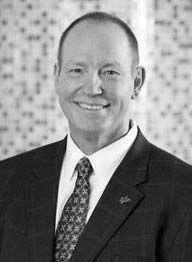
Tony Ford is an awardwinning entrepreneur with a history of starting and growing industry-leading companies. He now helps other businesses grow and sell their companies. He is program director for the 2018 Entrepreneur of Excellence awards program. Tony writes this column for each issue of FW Inc. tony.ford@fwtx.com


Texas Wesleyan students and the university’s entrepreneurship club collaborate with a fledgling healthy treats company called TruLee and help it go national.
BY SCOTT NISHIMURA
Sherry Lee White had a healthy confection, Bliss Bites, that she was producing manually in a rented commercial kitchen, selling in venues like farmers markets, and had just gotten into Central Market on a limited basis when she connected with a student entrepreneurship club at Texas Wesleyan University in 2016. A group of faculty and students took White’s case on over the last year, looking at target market, production, packaging and distribution.
“There was revenue,” Megan Wright, one of the faculty members directing the students, remembers. With the help, White and her company, TruLee, have reframed the target market to focus on millennials, automated Bliss Bites production at the company’s own facility in an office strip in Colleyville, revamped packaging to allow shipping of the refrigerated product across
the U.S., taken it online and into more stores, and created a sophisticated social media strategy with influencers, video and Ted Talk on healthy eating. TruLee, run a year ago by White, her husband and their two adult daughters, now has 12 employees. One student continues to work with White on logistics and fulfillment.
“They were really at the startup phase,” Tommy Lee, a Wesleyan student whom TruLee has hired full time as a project manager, says. “They were almost like a blank canvas.”
White, 47, had created the bite-sized, gluten-free Bliss Bites in response to an autoimmune disease. She changed diets, and the disease cleared up, she says. “I’m fine now.” Looking for a way to give her business a bump, she was connected with a business advisory board at Texas Wesleyan, and then with the university’s entrepre-
neurs club, Enactus, and a special topics undergraduate course on social entrepreneurship. Enactus’ faculty representatives, including Gokcen Ogruk, an assistant economics professor, first met with White a year ago, and 10 students took on the case beginning in January.
White had five roles in the company she needed to fill, from assistant to CFO, and students took on those roles. TruLee was targeting baby boomer women, but the students found the healthy food had another potentially strong following. “It was particularly attractive to millennials,” Lee says.
Bliss Bites, which retail between $4.49 and $4.99 for a package of four bites, is now in Central Market and Main Street stores, and has started a test in HEB stores. It’s developed a bulk pack for stores like Costco and believes it’s on the verge of an order from Costco.
For direct-to-consumer sales, Bliss Bites’ packaging contained a lot of waste, was difficult to assemble, and couldn’t preserve the refrigerated product for shipping, so the students revamped the container and now ship it in an insulated branded bag that customers can continue to use. “It’s a value-add,” Lee says.
TruLee moved from a rented kitchen to its own quarters in an office strip. White bumped up the number of flavors and went on the hunt for seasonal ideas.
The students got the product into the hands of food bloggers who built Bliss Bites’ following with reviews and helped White develop a Ted Talk. They reached 250,000 people through Instagram and 200,000 through Facebook, Lee says.
me
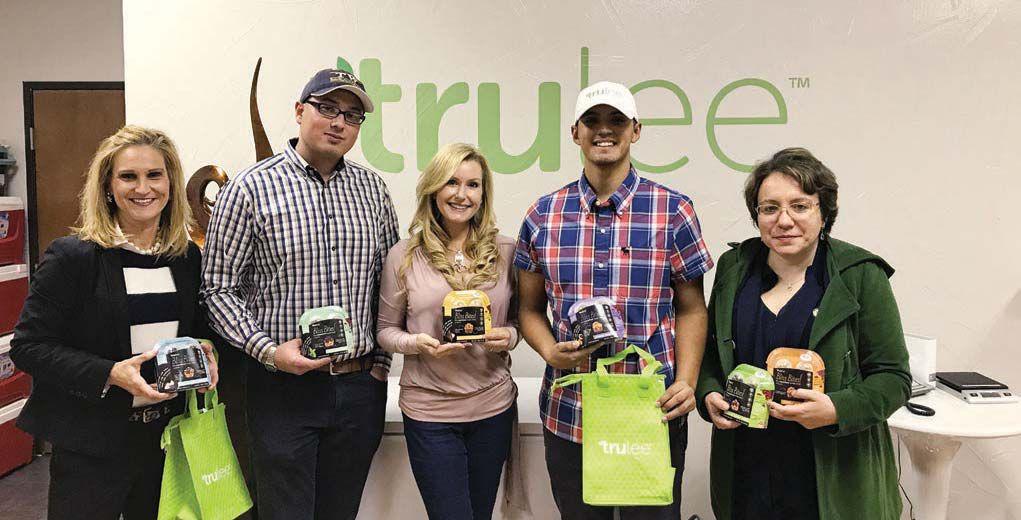


Wright, whose research focuses on women entrepreneurs, says White isn’t unusual. Many women “start these businesses and don’t have the business acumen that men have,” she says. “They don’t have the financial literacy.” White says the company has “a lot of room to grow. We’ll probably double our sales every three months for the foreseeable future.”







We’re officially at the tail end of 2017 — that means it’s time for your company to start planning the upcoming year. If you’re planning a corporate retreat, there’s no need to head too far away from the Fort. Here are three reasons to do it at Lucky Spur Ranch.
Lucky Spur Ranch & Retreat is set on a beautiful piece of land in Justin, Texas — that’s only 25 miles from the heart of Fort Worth. Though it’s just a short drive from the bustling city, Lucky Spur has the feel of a relaxing country setting, making it ideal for a getaway with your team to plan for the year ahead or kick up your heels and celebrate your hard work.
Lucky Spur boasts a beautiful conference room with high speed internet and visual and audio equipment, making it easy to hunker down with your employees. There is also a large banquet hall with seating for up to 400 for holiday & year end parties! Lucky Spur’s catering team is more than happy to provide morning and afternoon drinks and snacks, as well as lunch and dinner service (if needed). These aren’t your average catered meals or brown bag specials, either — they are thoughtfully prepared and made from scratch with local and whole ingredients. You also have the ability to customize the menu to your tastes and specifications. Lucky Spur also offers several team building activities that you can add to your package, including fishing, and skeet shooting, just to name a couple.
You don’t have to drive home if you don’t want to — there are several cabins available to book, and they can sleep around 25 people. Each cabin and shared space is decorated with care and quality with the guest’s comfort in mind.

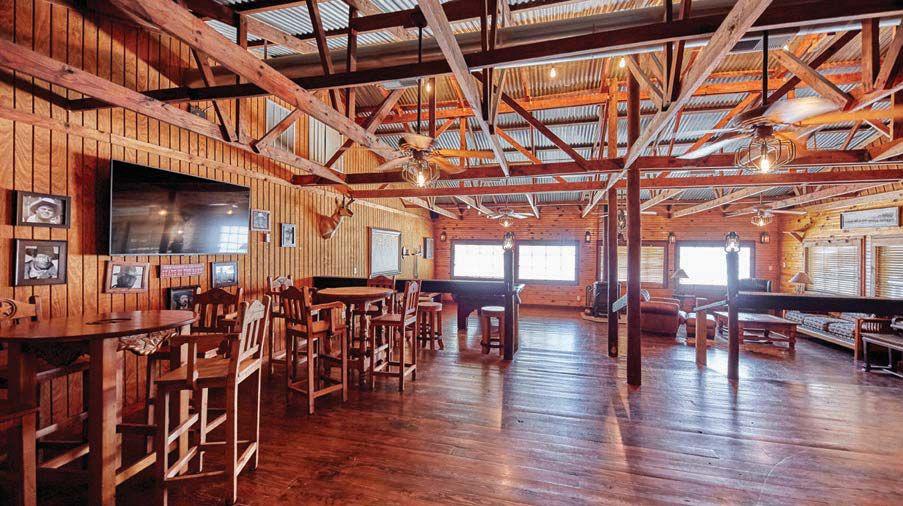
The overnight retreat and meeting package includes breakfast, lunch and dinner; midmorning and afternoon refreshments; and a full-service bar between 5-9 p.m. You can set up the conference however you’d like, and Lucky Spur also offers basic audio and visual equipment. Your employees can take part in any of the onsite activities mentioned above, and no gratuities are added. Let us help you plan the corporate event that your entire company will be talking about for years to come.




From walking the park to greeting guests and checking in with operations and maintenance directors, Steve Martindale, Six Flags Over Texas president, never has the same day.
I have special instructions for, or questions.
10 a.m. Walk the park. I start at the front gate to determine if we will be ready to “Open at Excellence.” Check with our operations and maintenance directors to learn if we have any foreseeable issues that might affect what are scheduled to offer our guests for the day.

7:30 a.m. Wake up and check my phone for messages from the midnight shift. When people ask me why I’ve spent the last 44 years working for Six Flags, my answer is easy: No two days have ever been the same, and every day is eventful. Imagine you are the mayor, city manager, and dog catcher for a medium-sized city that rotates its residents every day. On a daily basis, challenges and opportunities present
themselves at a steady stream, or sometimes in avalanches. Still, the juice is always worth the squeeze when the primary objective of our team is to make sure all of our guests have the time of their lives and make priceless memories with a thrilling and safe experience.
8:30 a.m. Skip breakfast. Make my routine stop at Starbucks for the only cup of coffee I will drink today.
9 a.m. When approaching my office at Six Flags, I have to remember what day it is to determine the best route to get to my office, due to all the highway construction that’s going on.
9:15 a.m. Check emails and daily operational reports from the previous day. Review today’s list of operating department’s plans and managers’ onduty assignments. Call the ones that
4 p.m. I make my way back into my office to continue working on the fiveyear, long-range plan for the theme park and water park. These are fluid plans that are always changing as new programs and opportunities present themselves.
11:30 a.m. Drive to downtown Arlington for a Chamber of Commerce executive committee lunch meeting with Michael Jacobson and an allstar group of Arlington business leaders. Not a selfish one of them in the bunch.
1 p.m. Make a pit stop, on my way back to the office at the theme park, to Hurricane Harbor. There, I do a quick circle tour of the park, talking to park guests and team members. Some days, I am secretly wishing someone would push me into the wave pool to cool me off.
2 p.m. Back at the theme park, I take another walk around the park. It’s during this time that I look for any irregularities in operation, concentrating on service delays and gauging the general mood of our guests and the energy level in the park.
4:30 p.m. I hop back into my truck and head to the River Legacy Park Science Center for a River Legacy Foundation Board meeting with yet another group of topquality volunteers.
6 p.m. I make it to my house in south Arlington with enough time to change clothes and eat a banana, then head back out to Momentum Fitness for my evening workout.
8:30 p.m. I arrive back to my house for dinner. I enjoy a plate of ground bison, spinach and rice and share the day's happenings with my wife, Paula. Afterwards, I play with my two dogs, who are always happy to see me.
10:30 p.m. I check emails to see how the remainder of the day has shaped up at the park since I left. Then I watch some TV shows that I have recorded so I can skip the ads.
1 a.m. Check emails again and for the last time today. Dead tired, but I know I will sleep through the night — like a rock.


